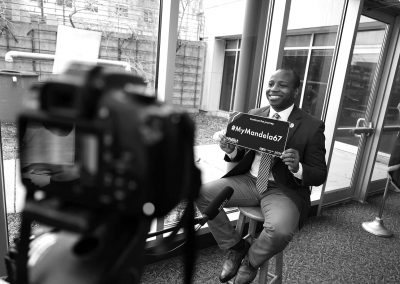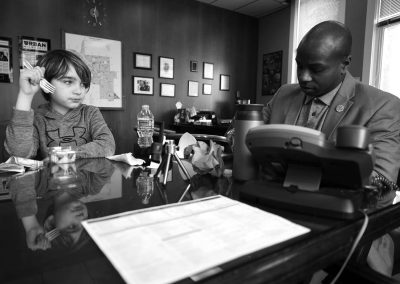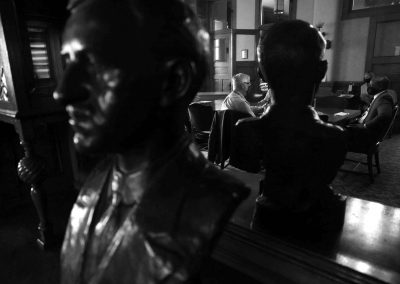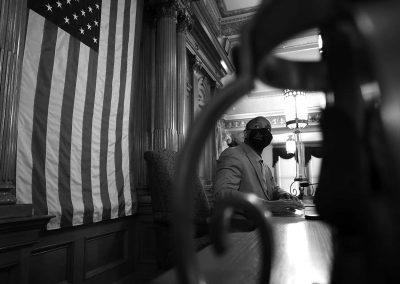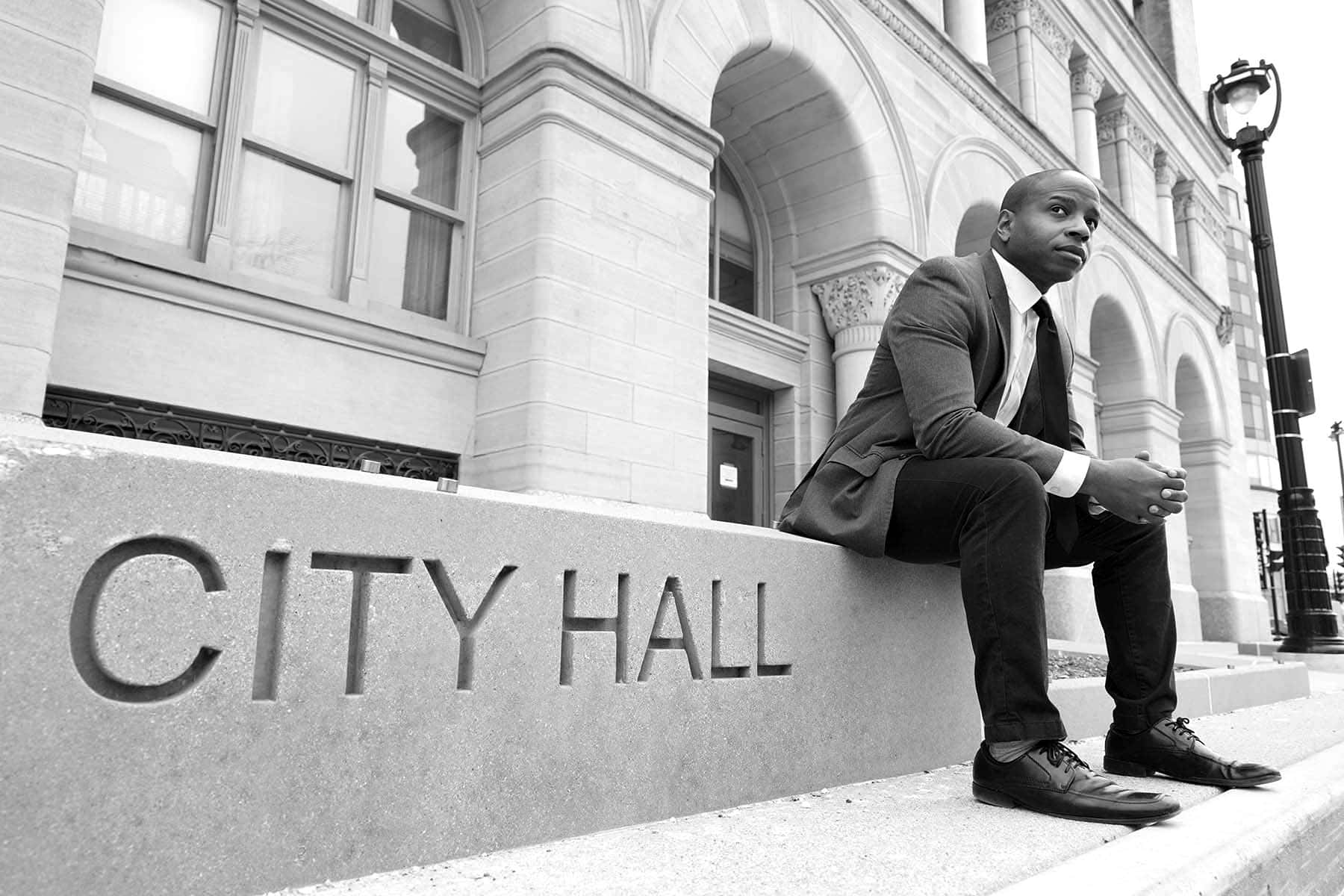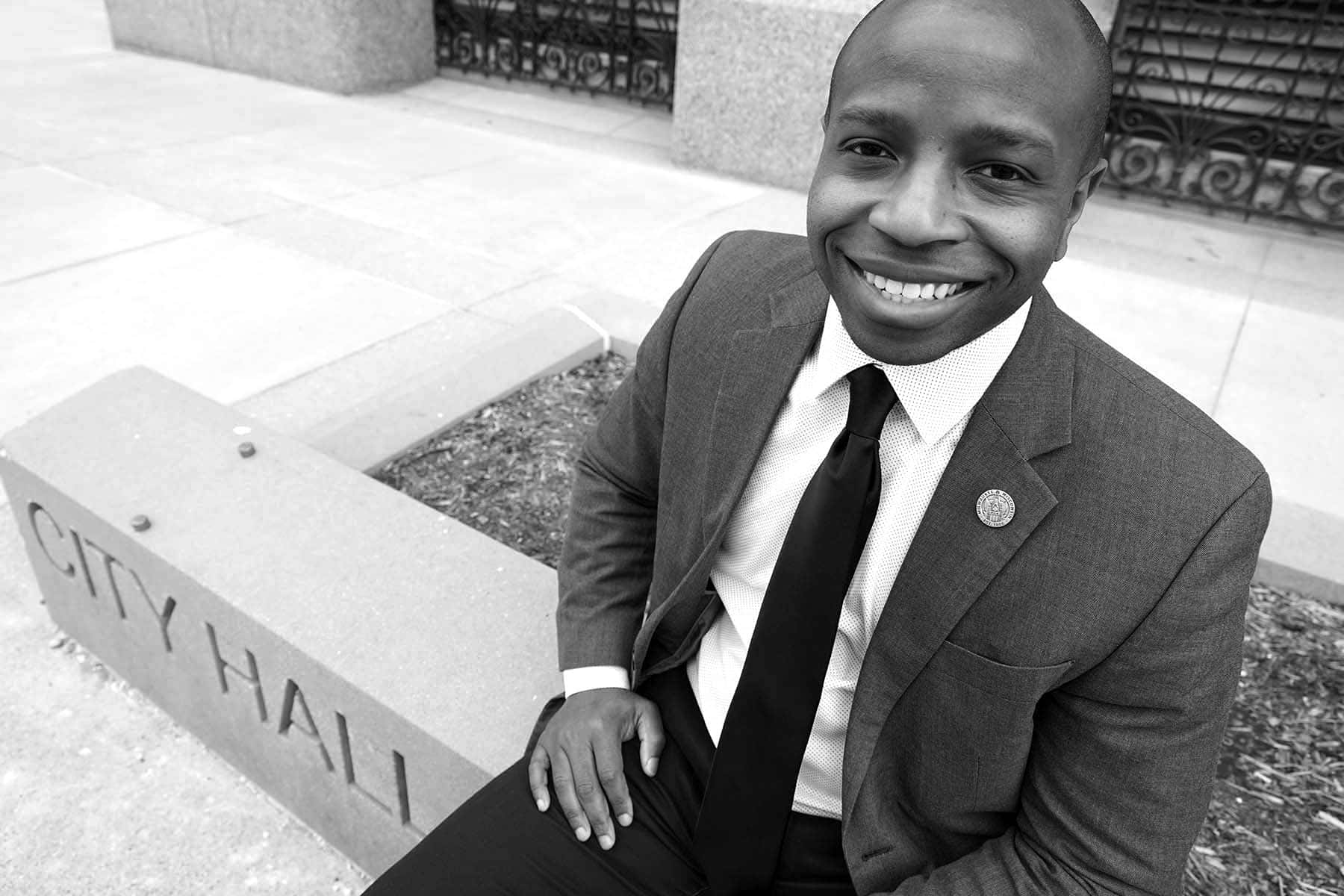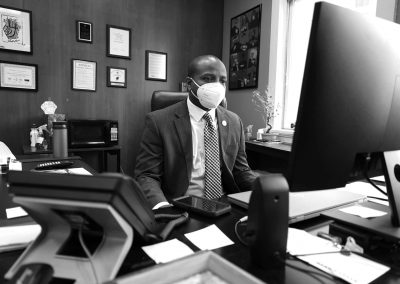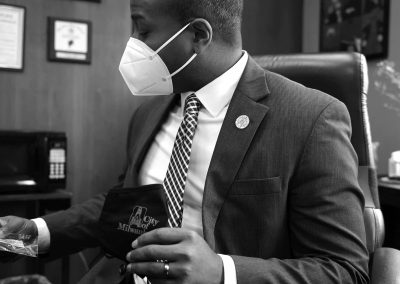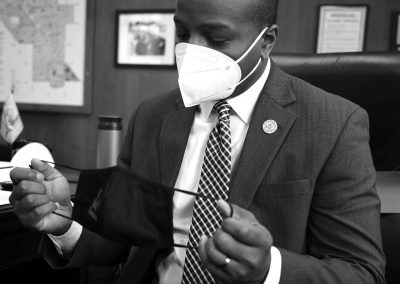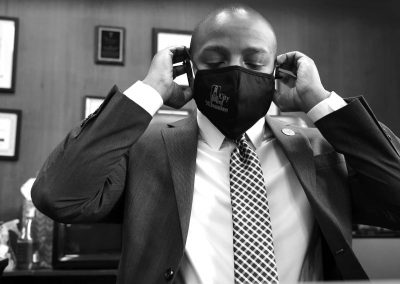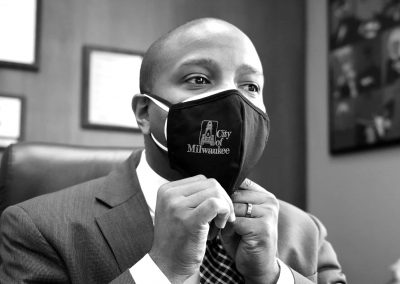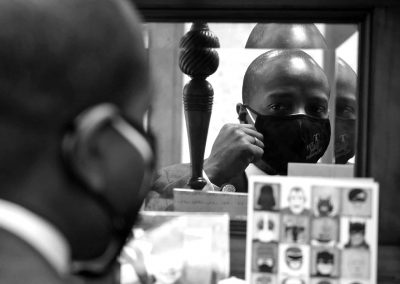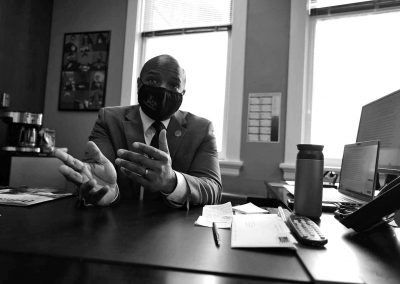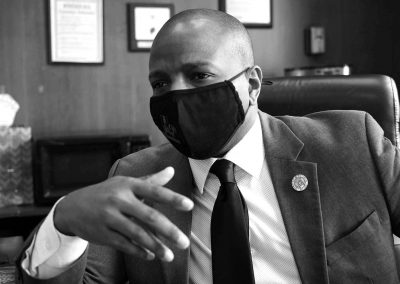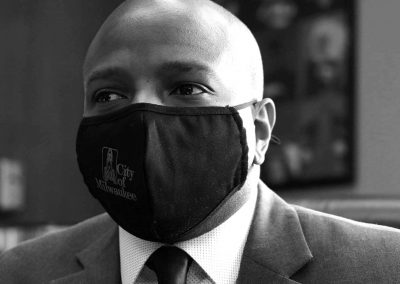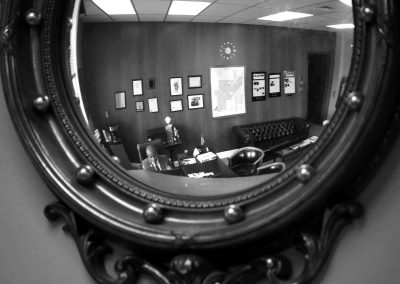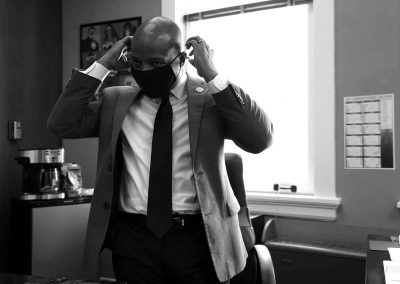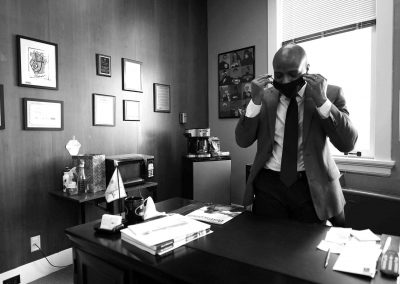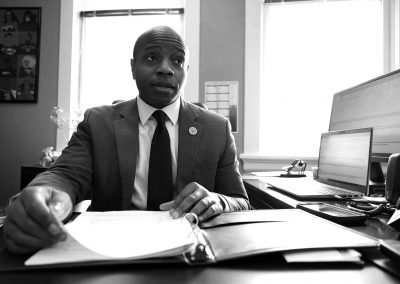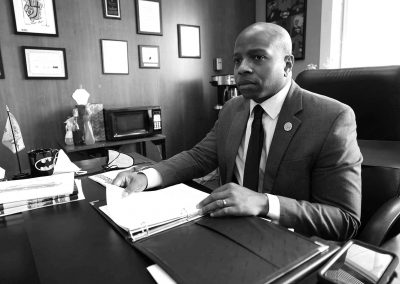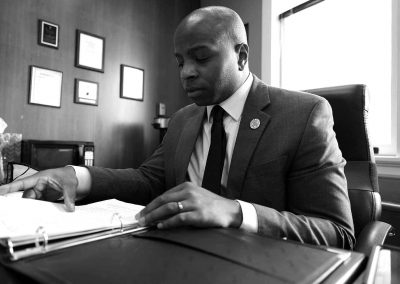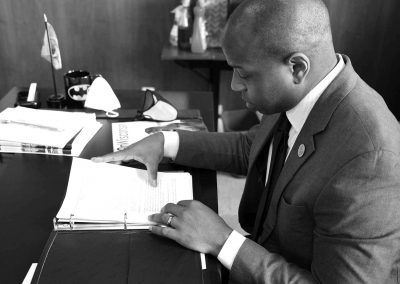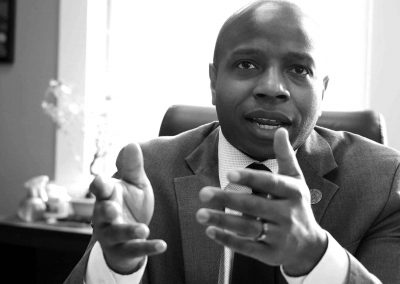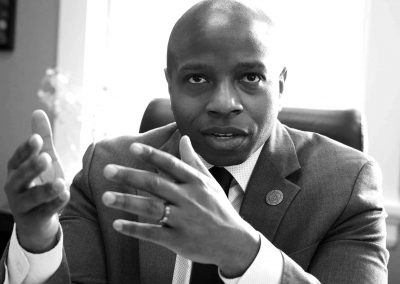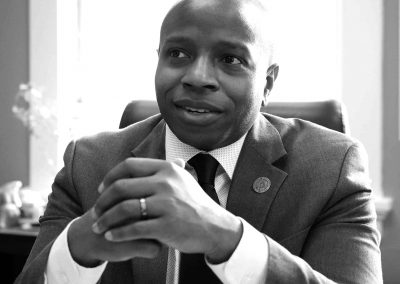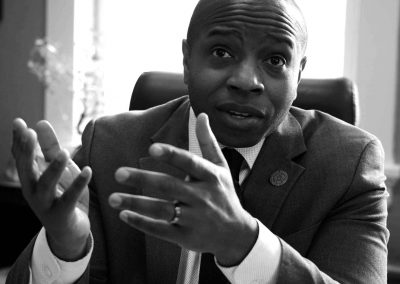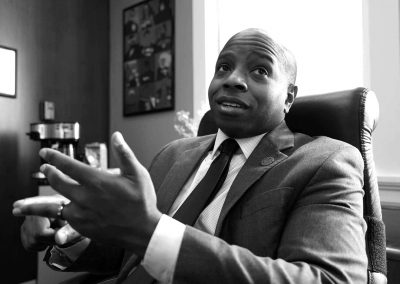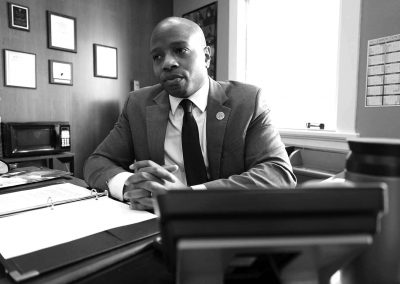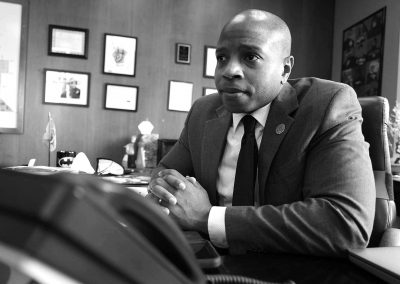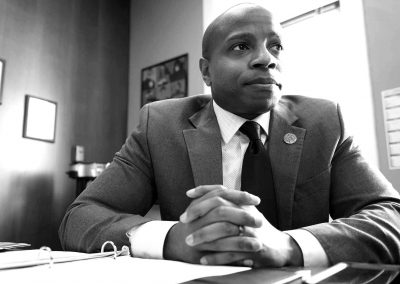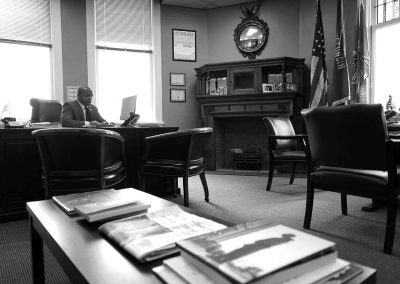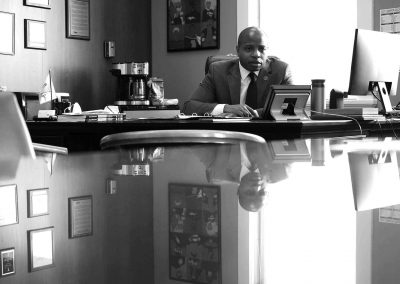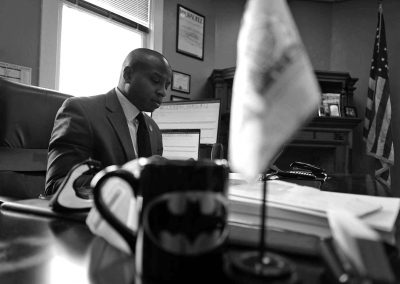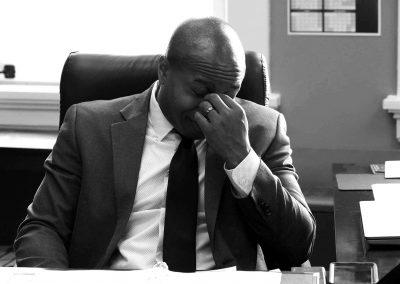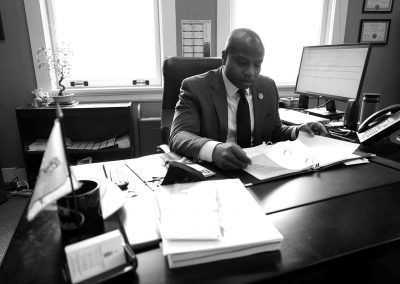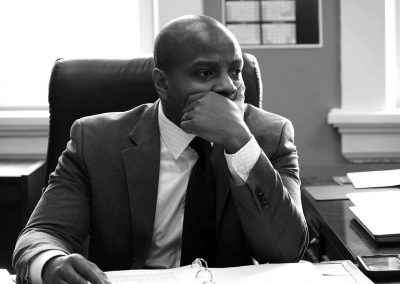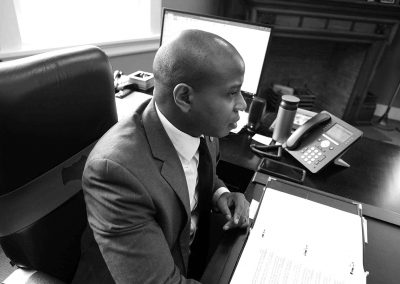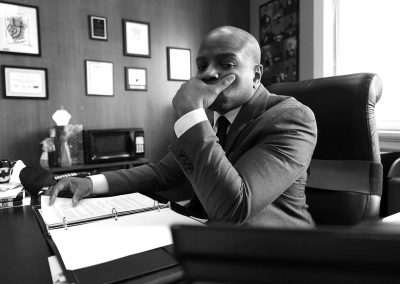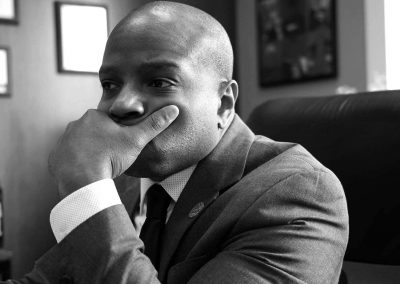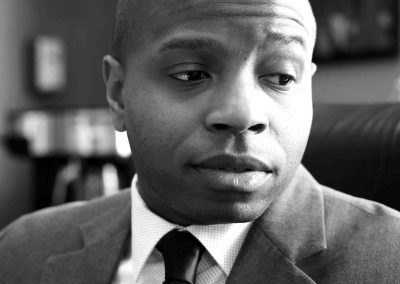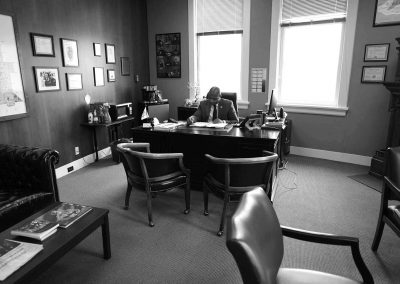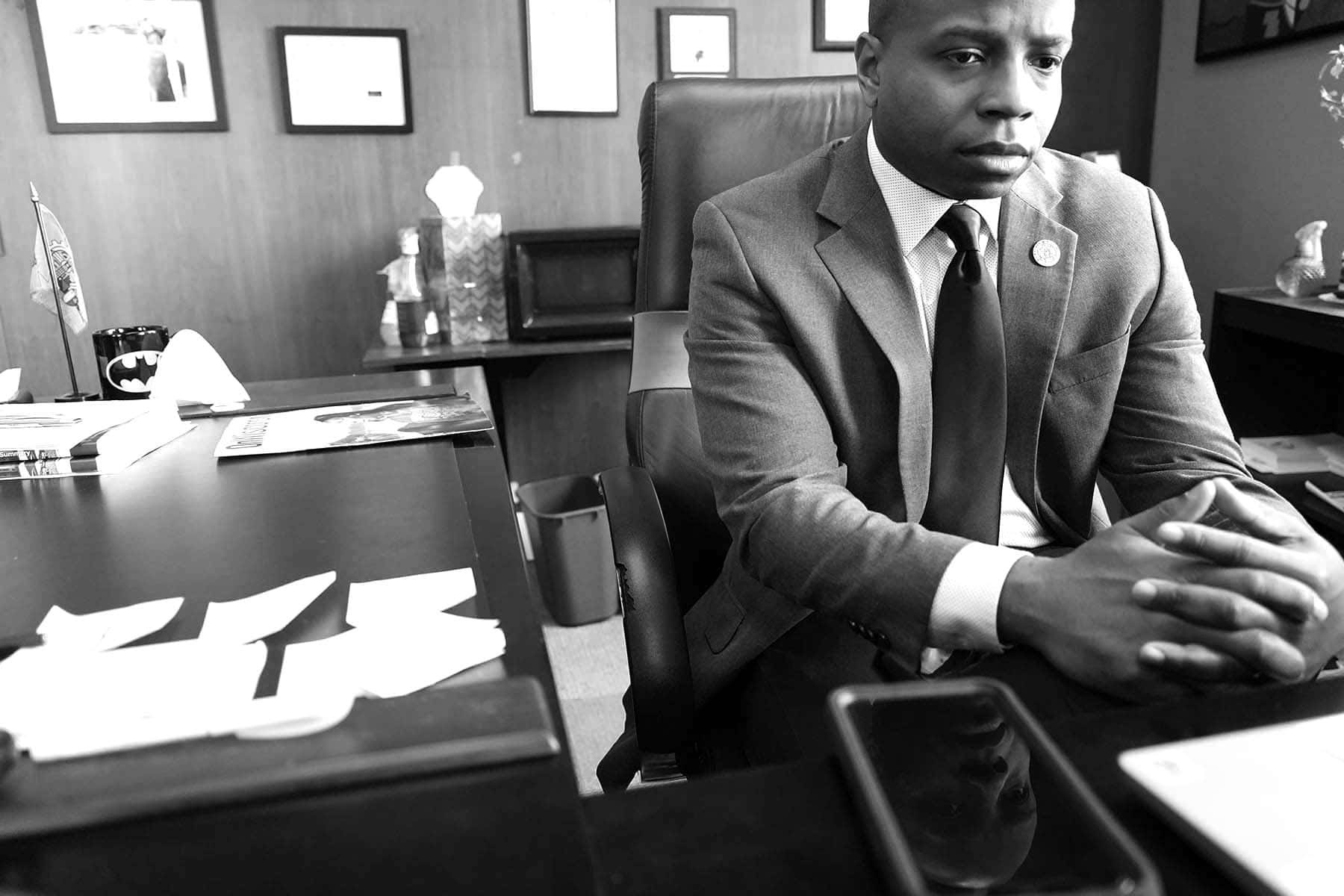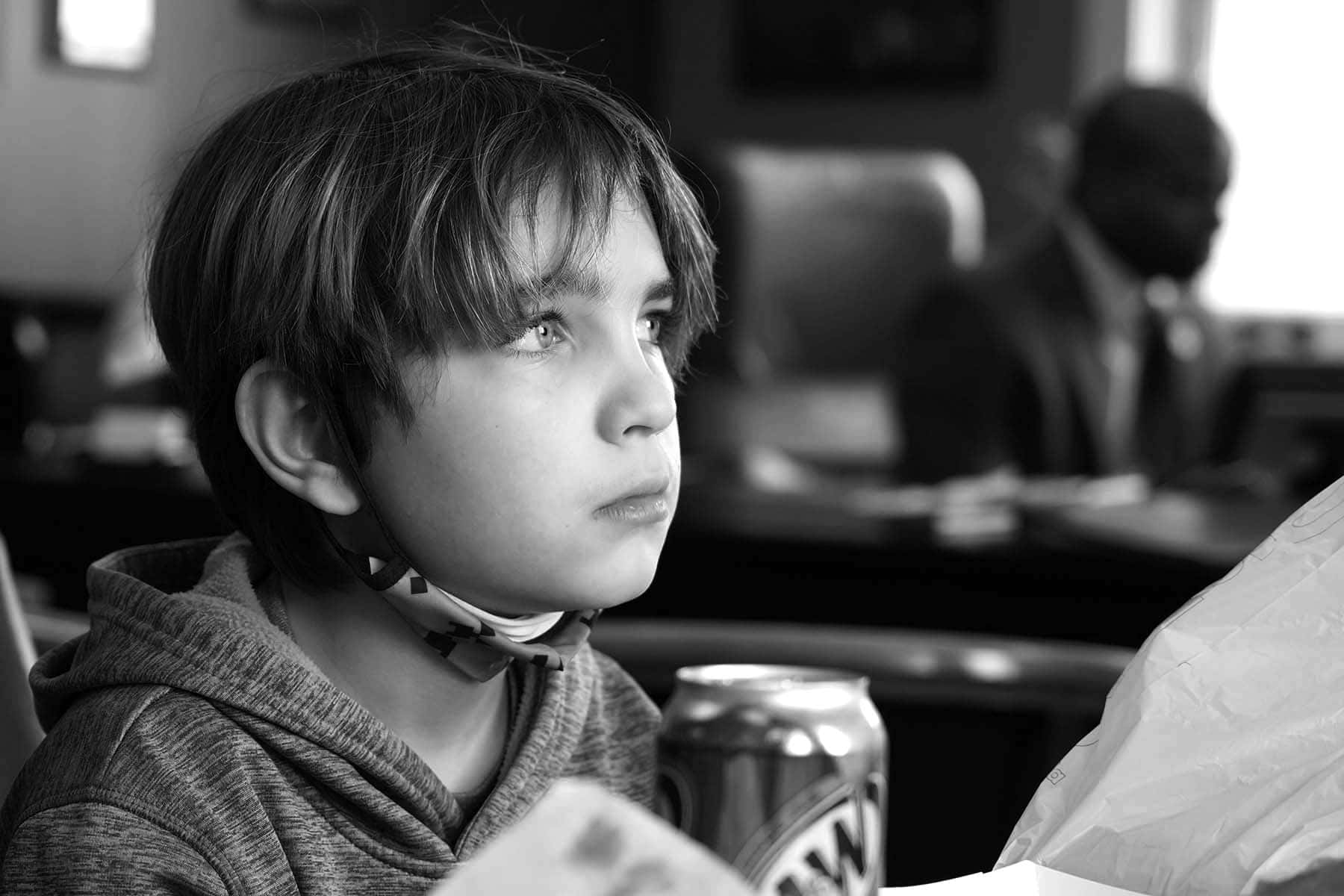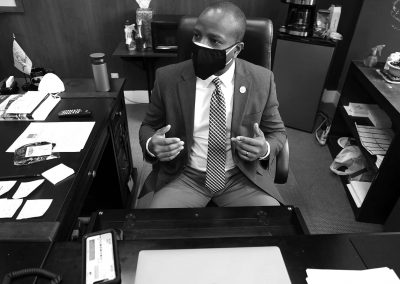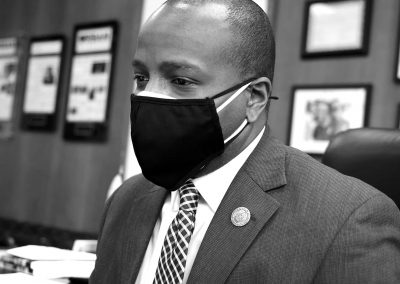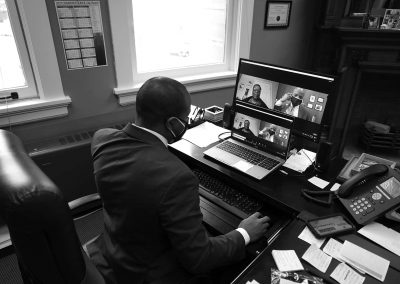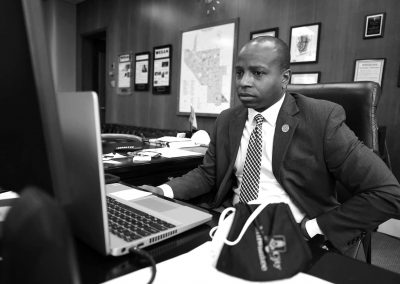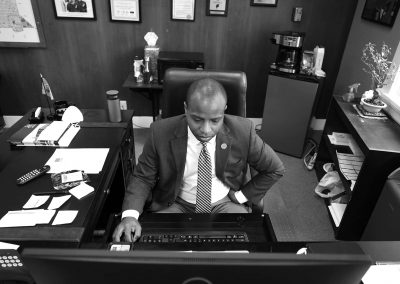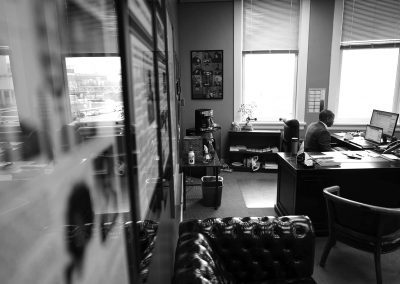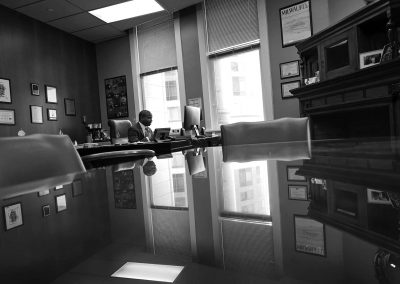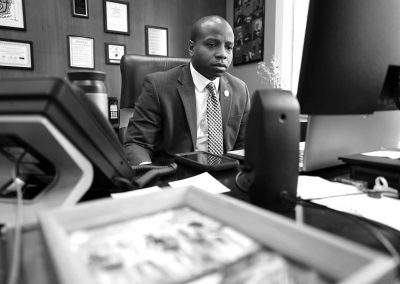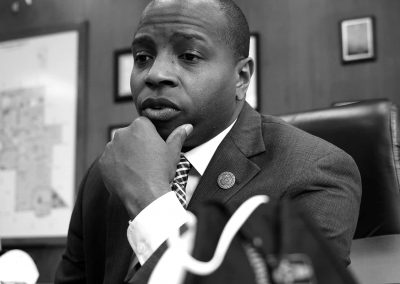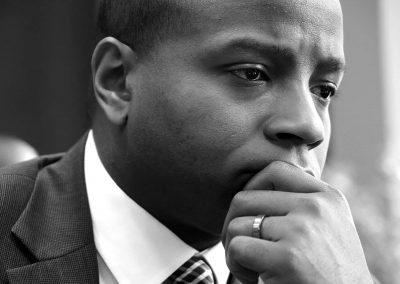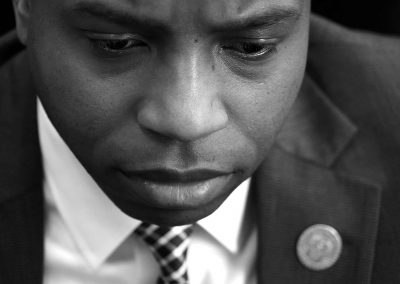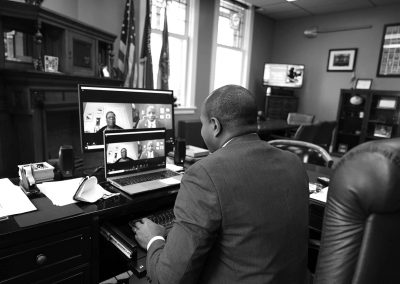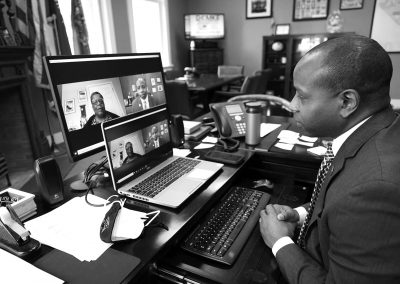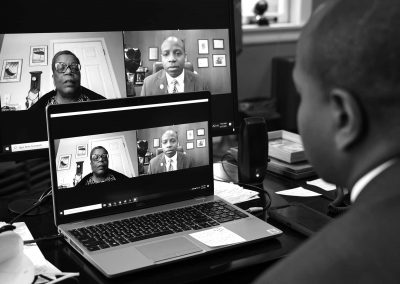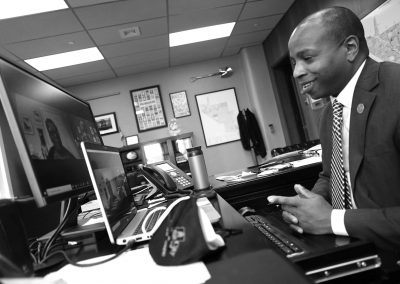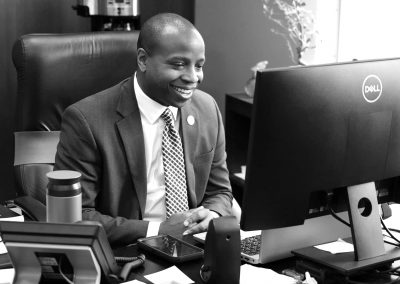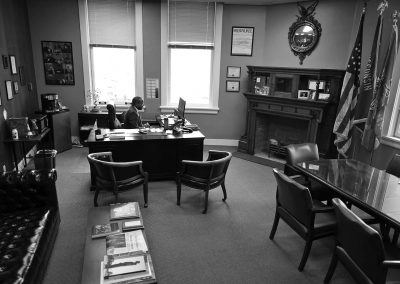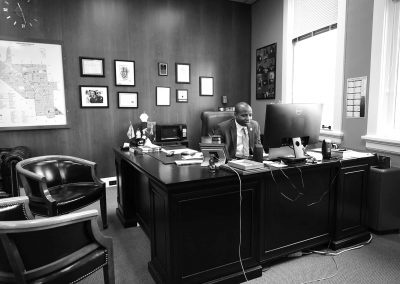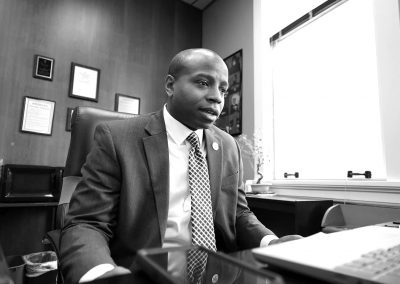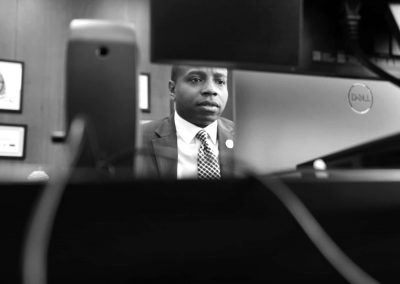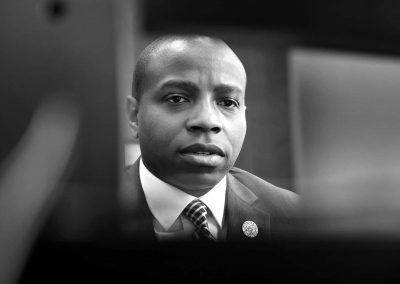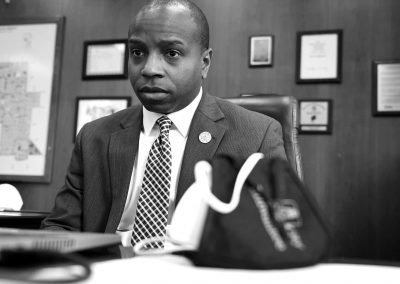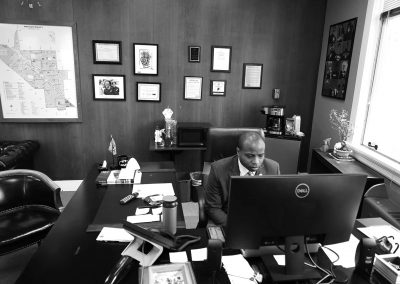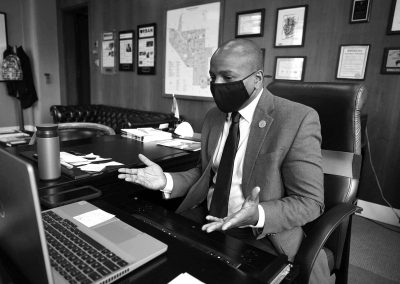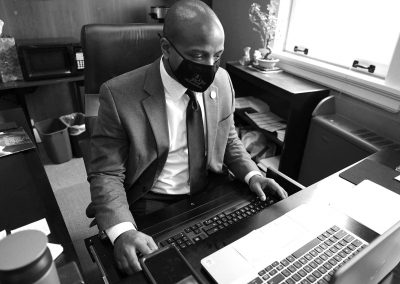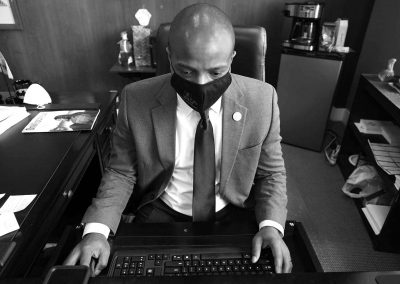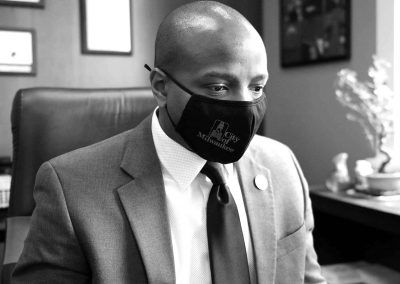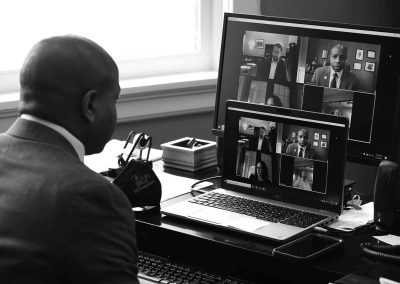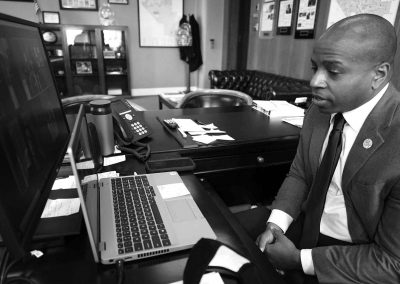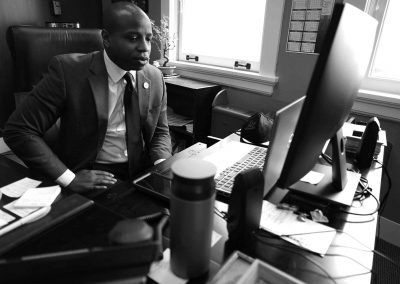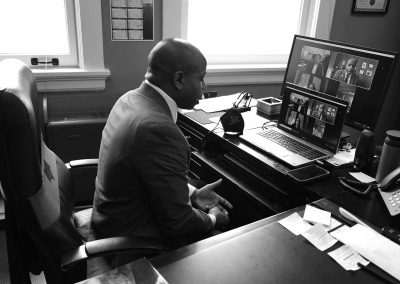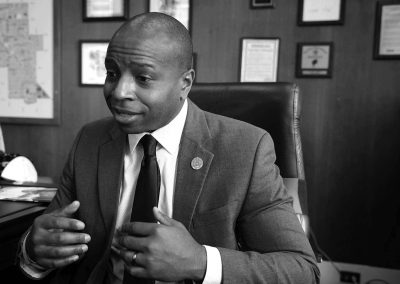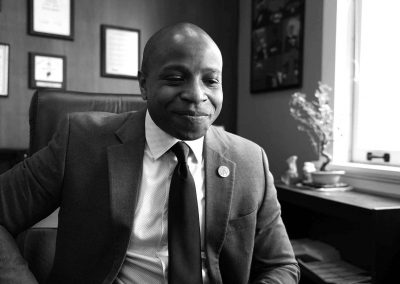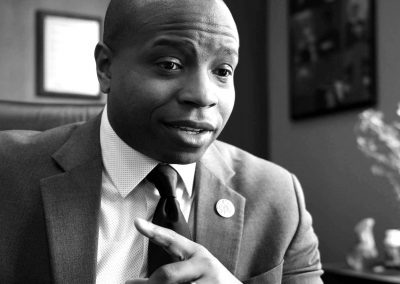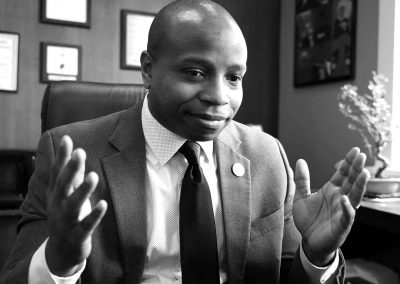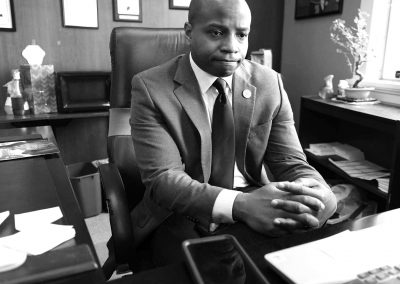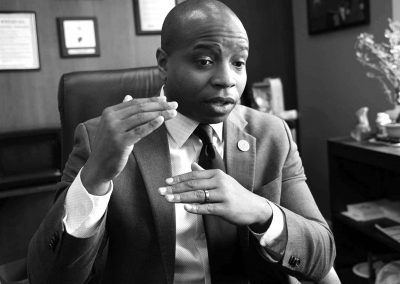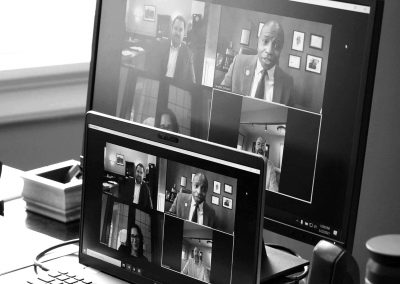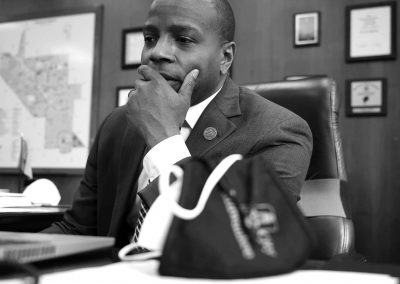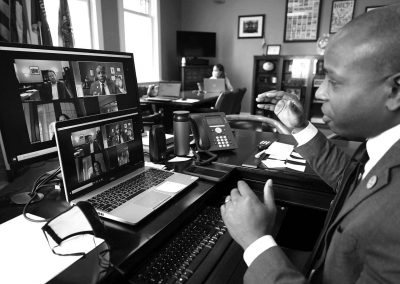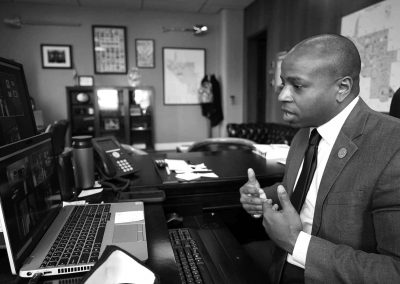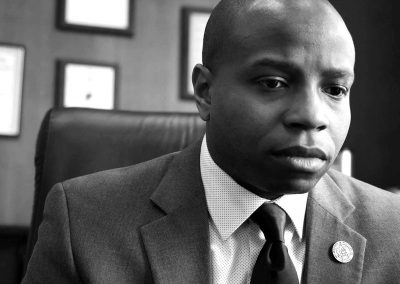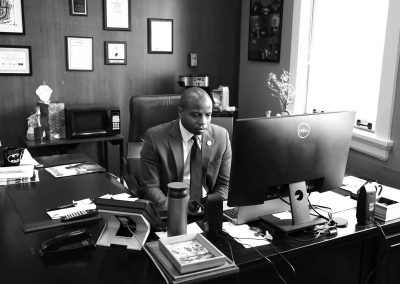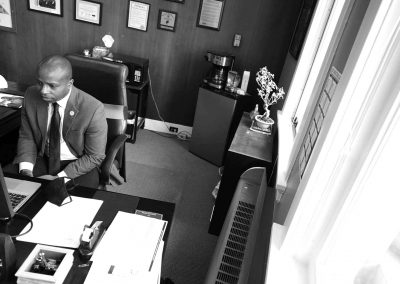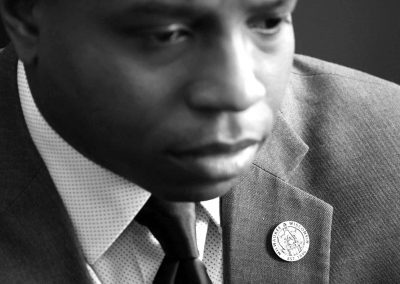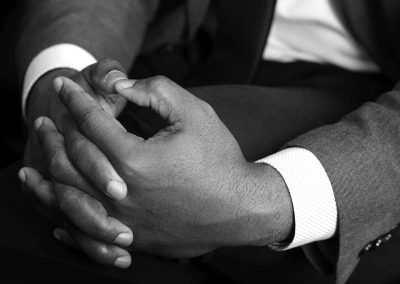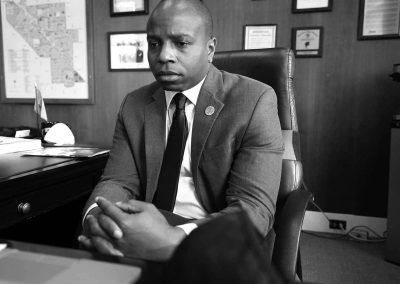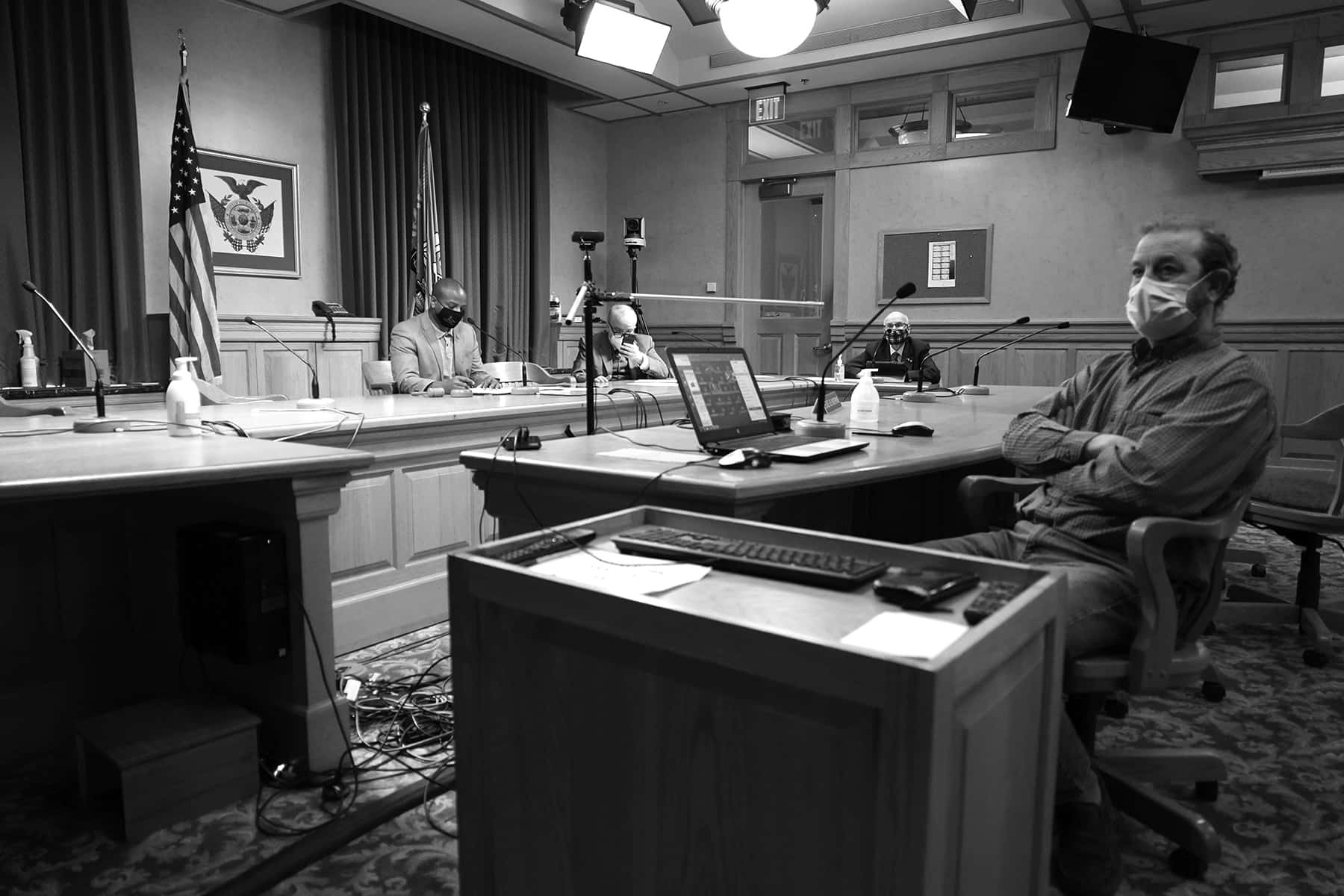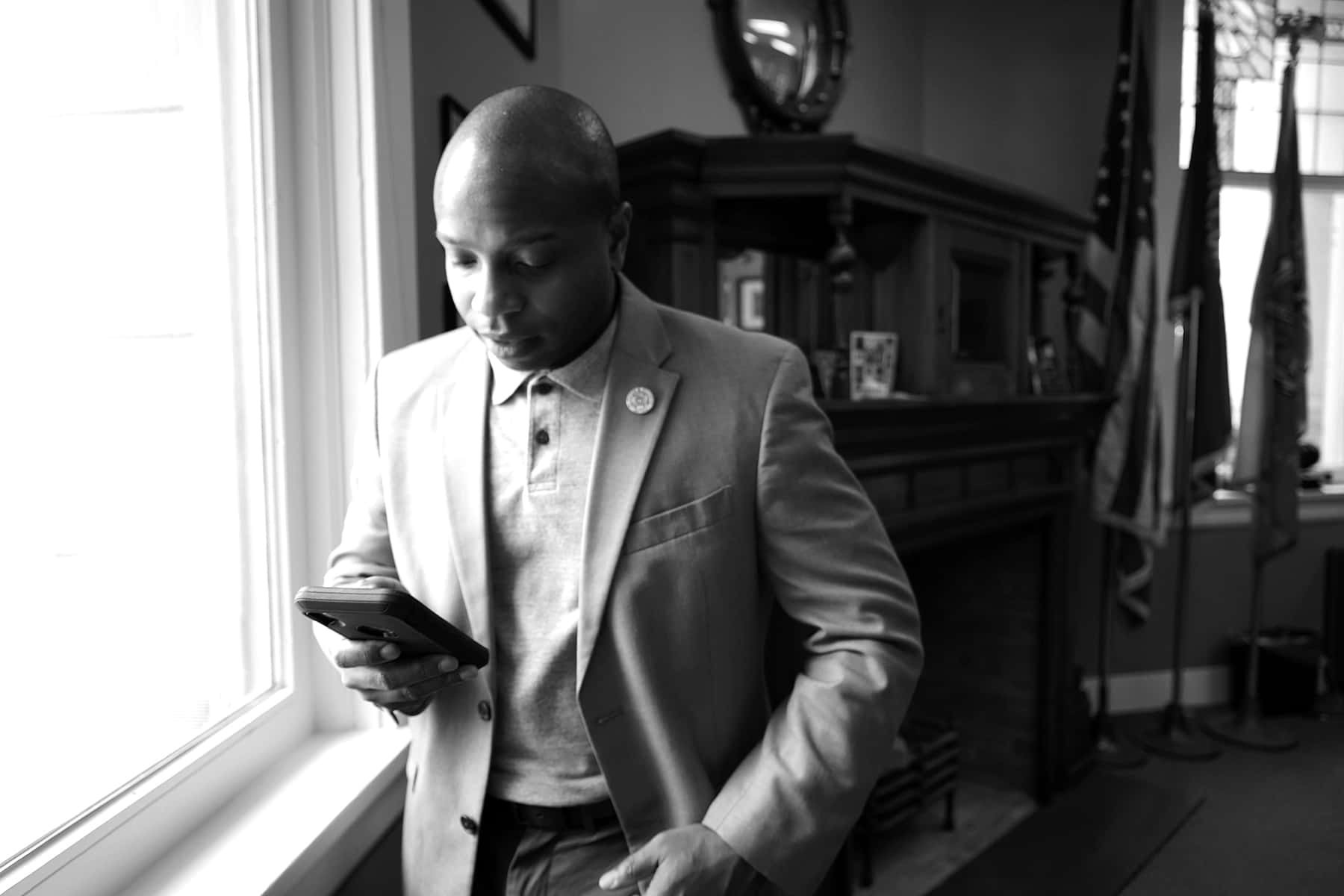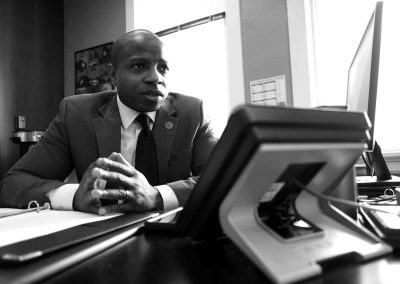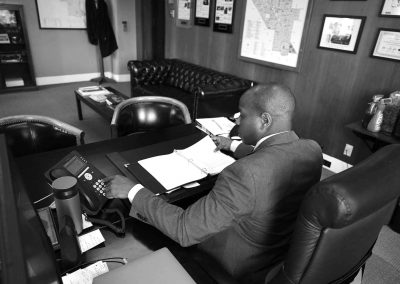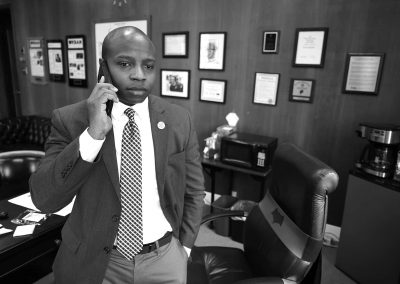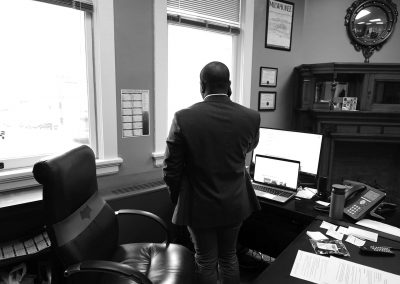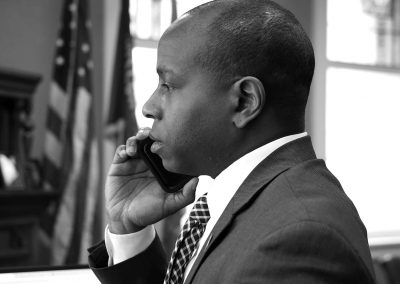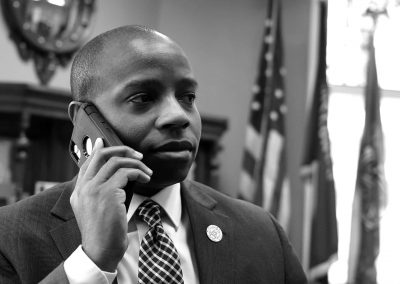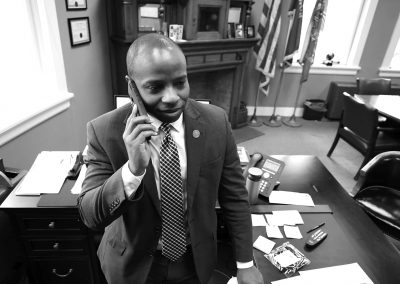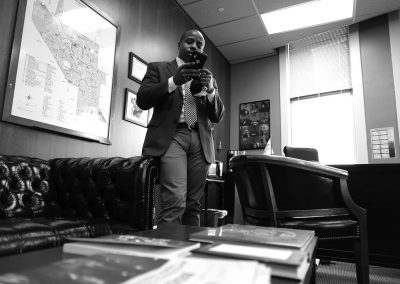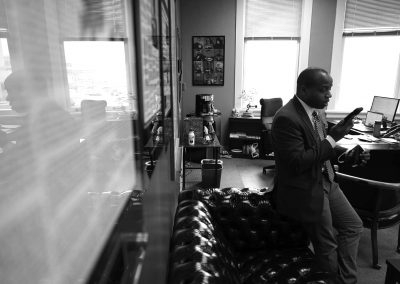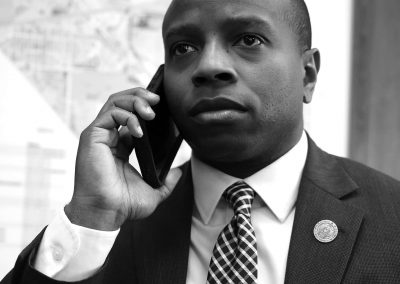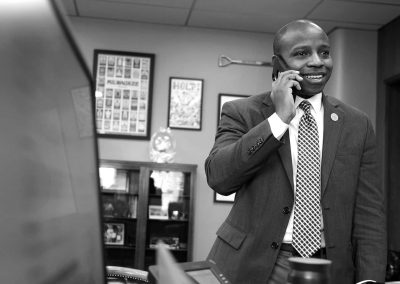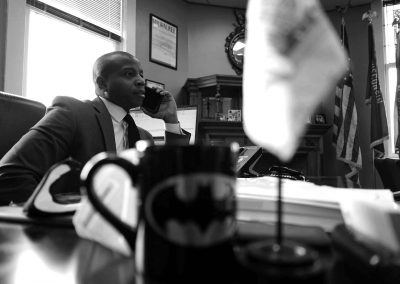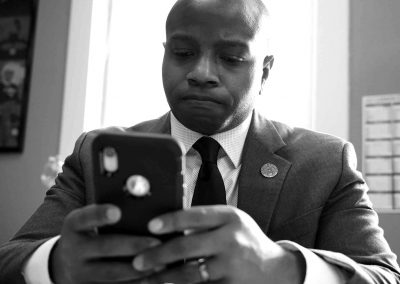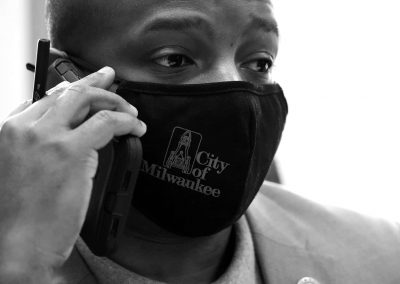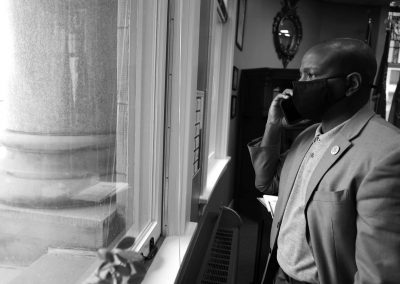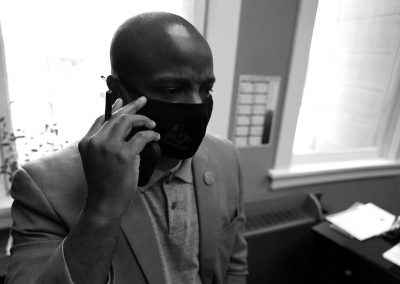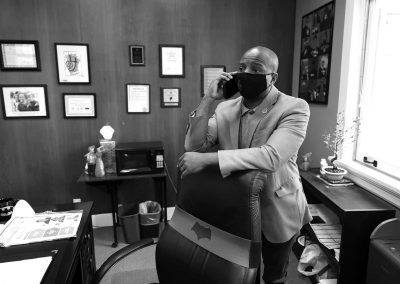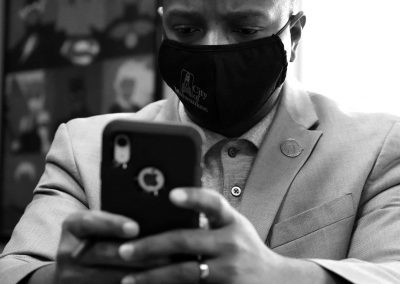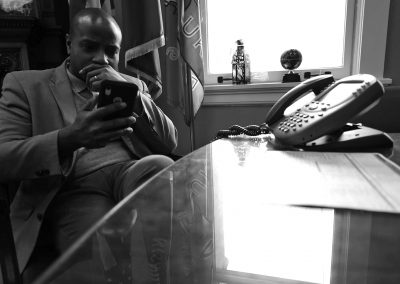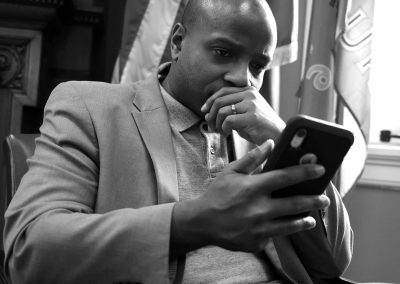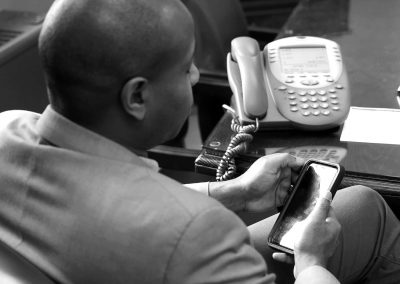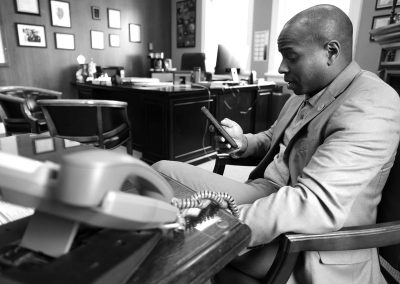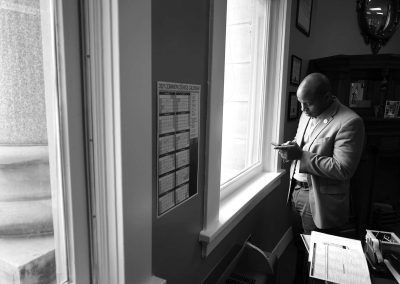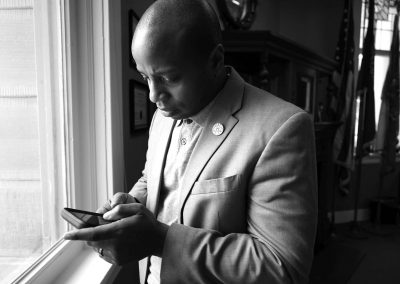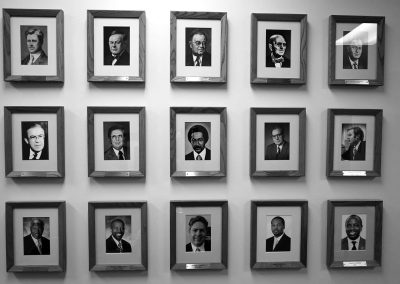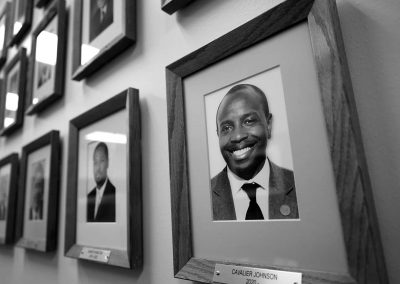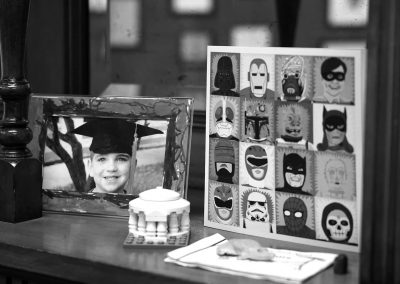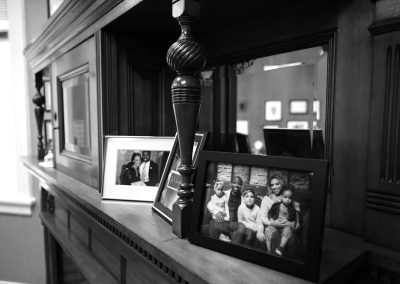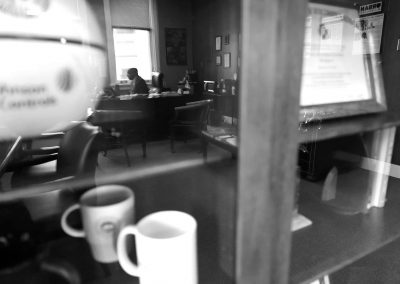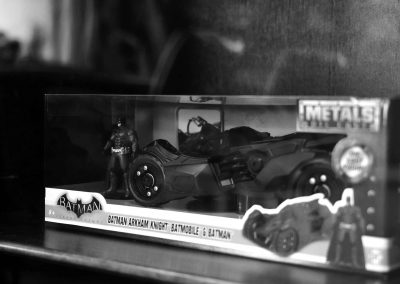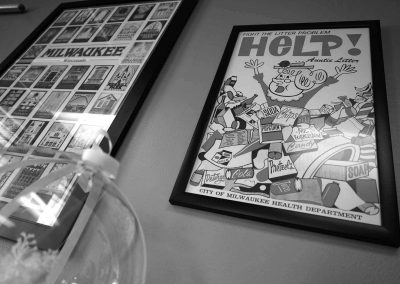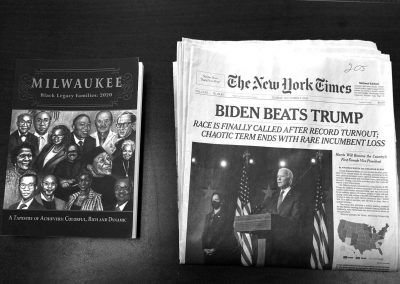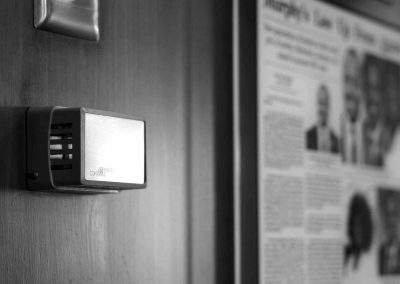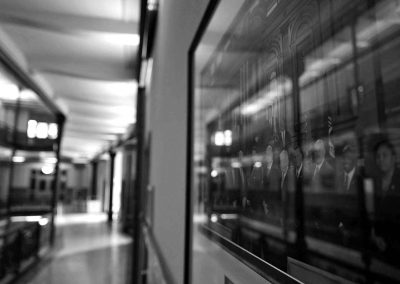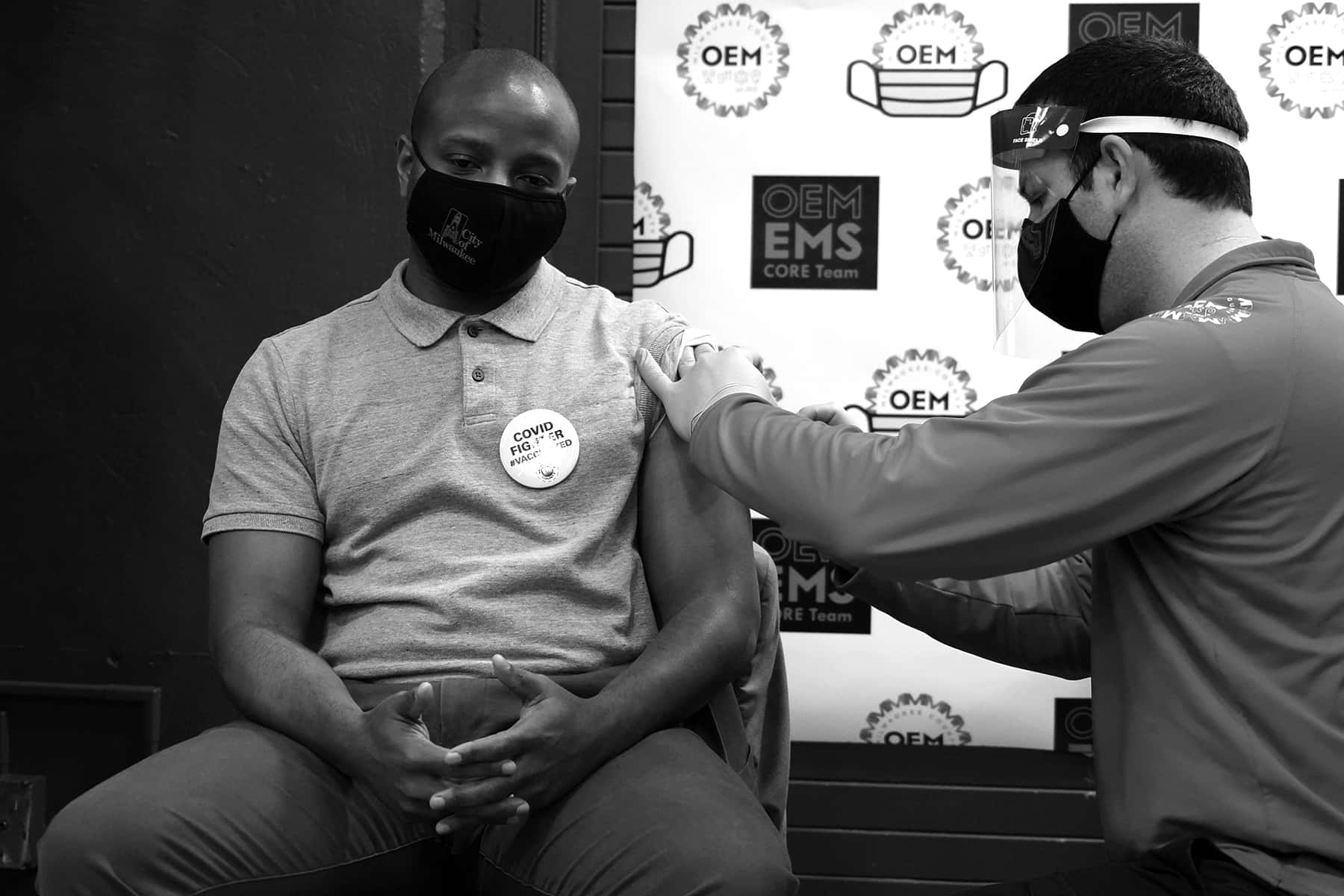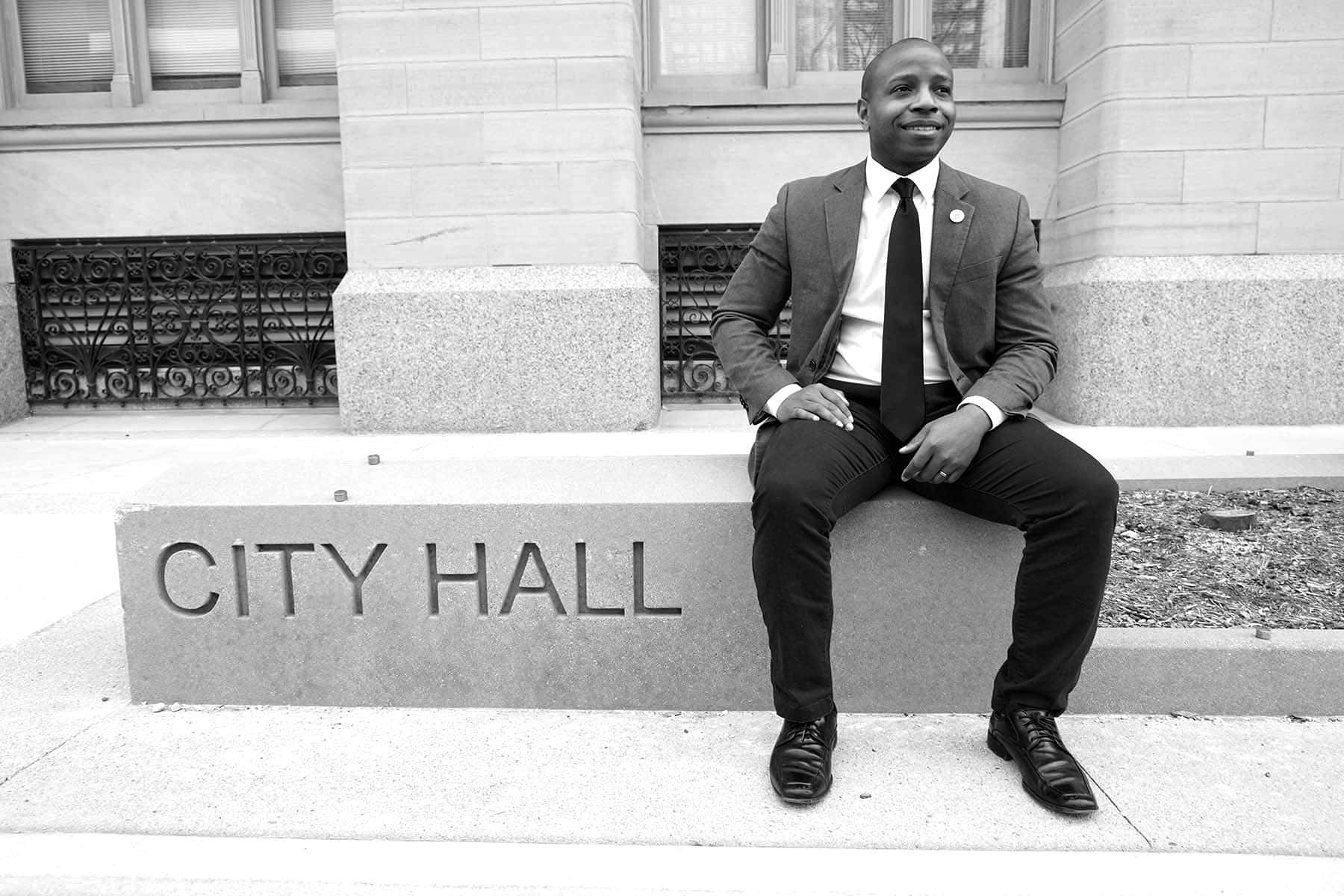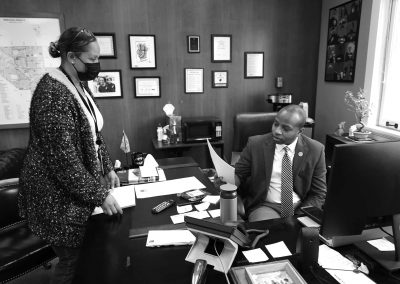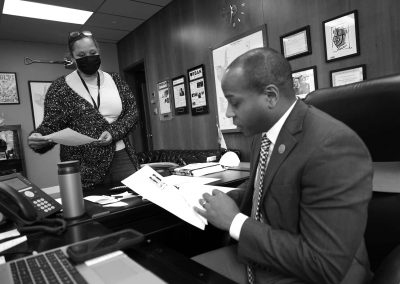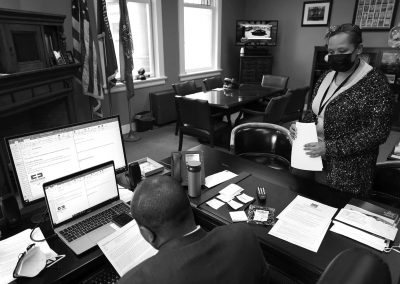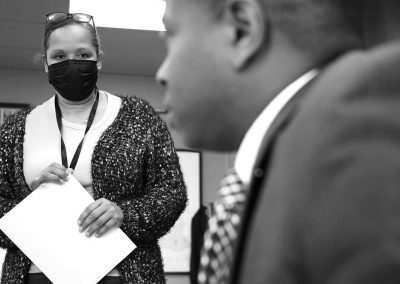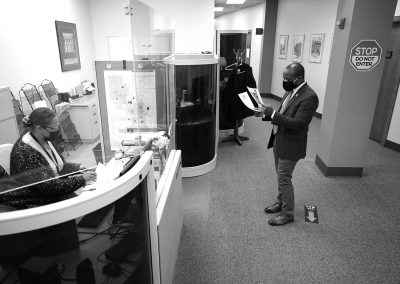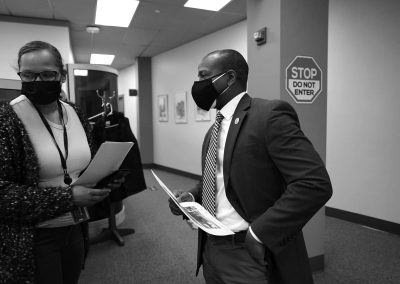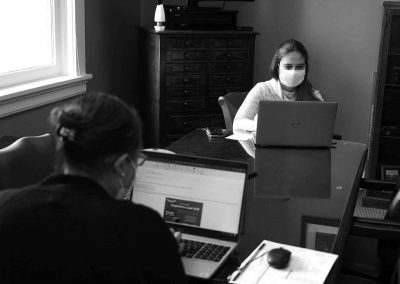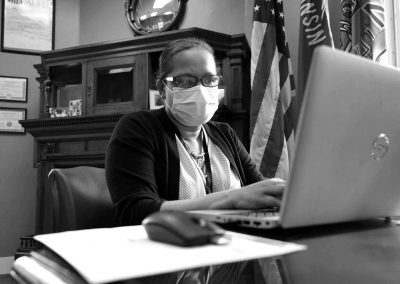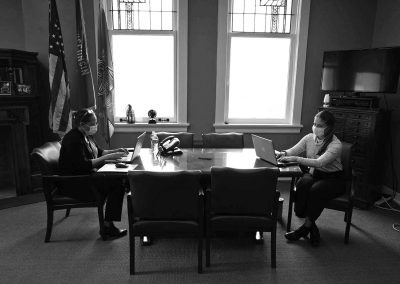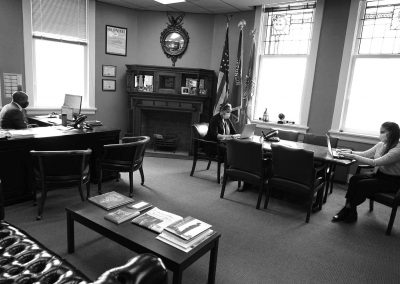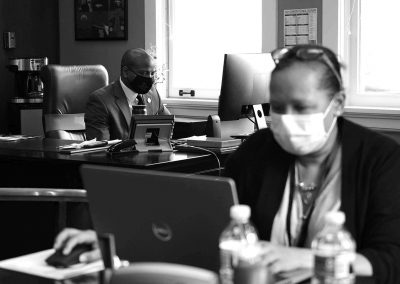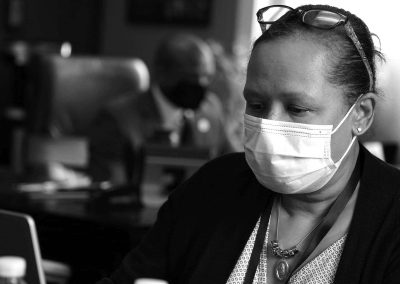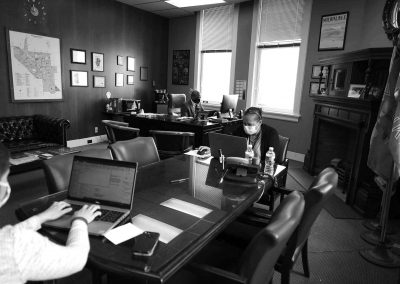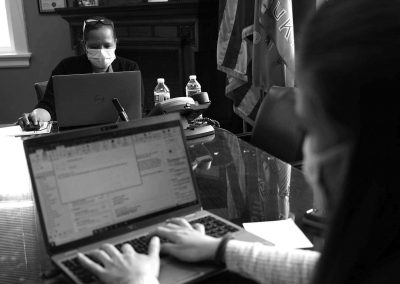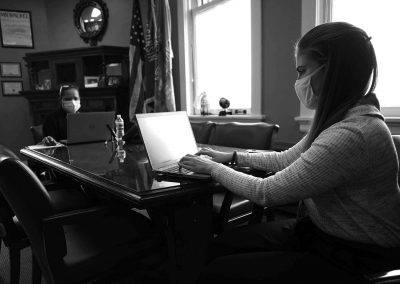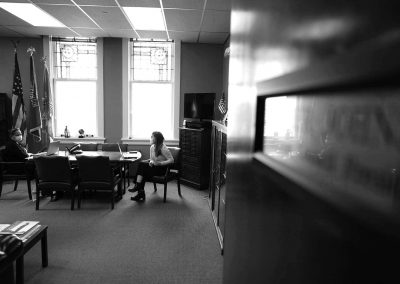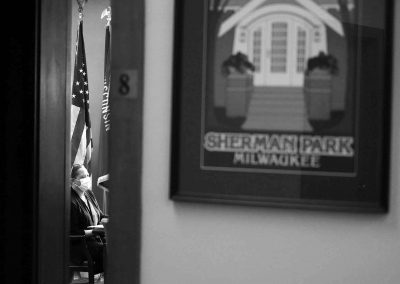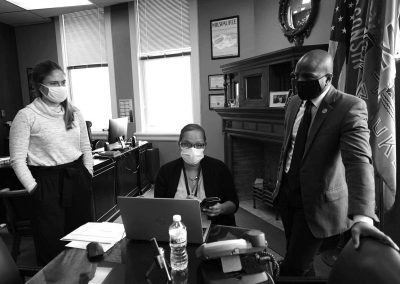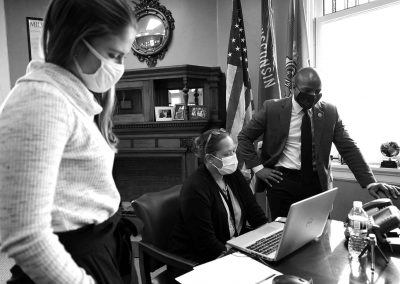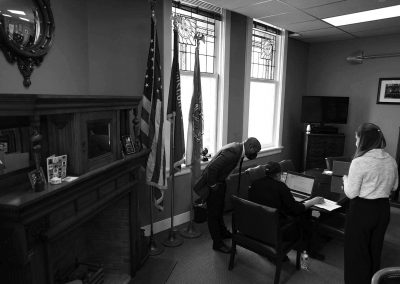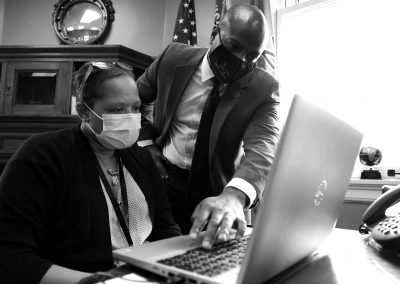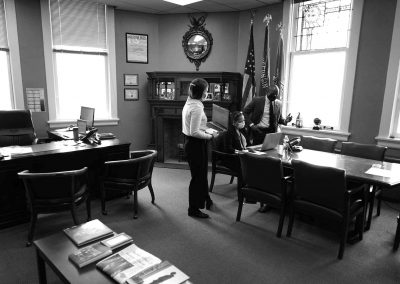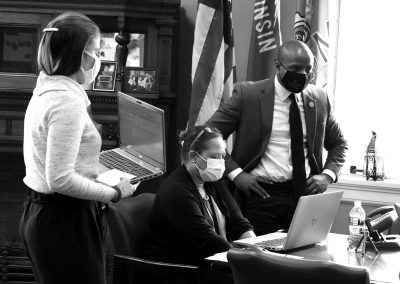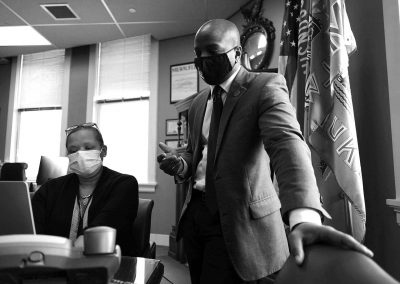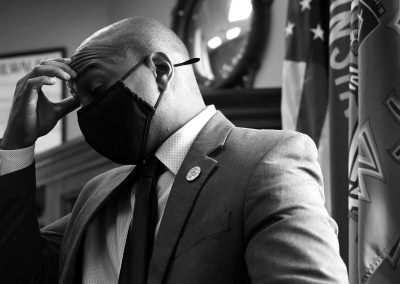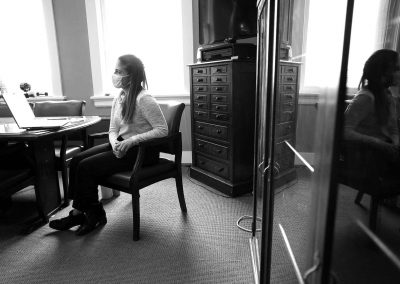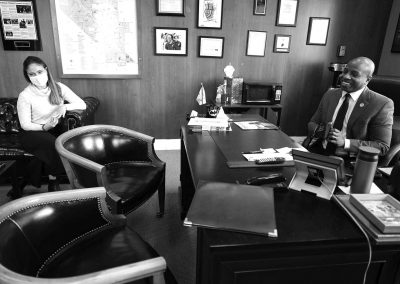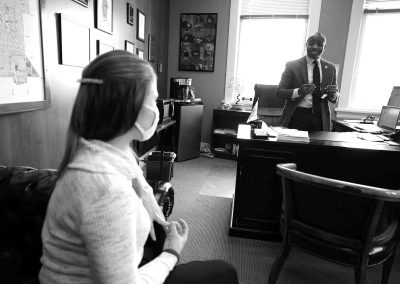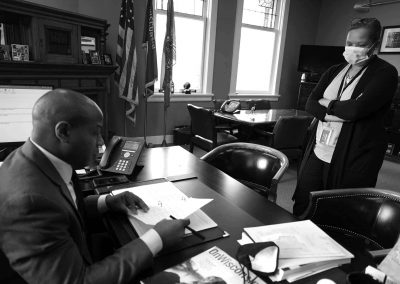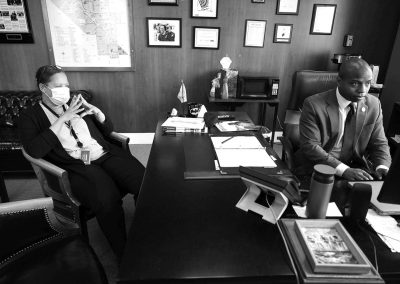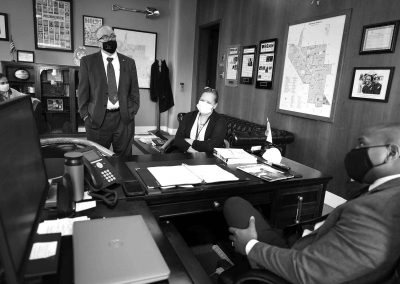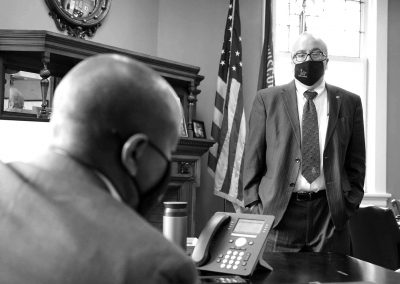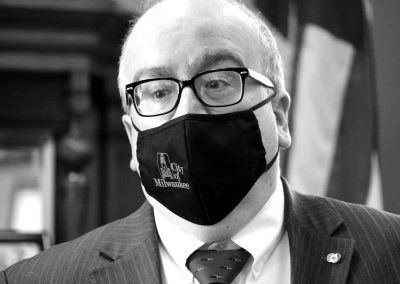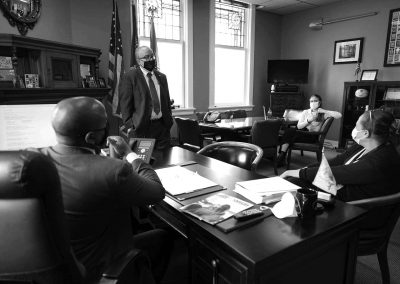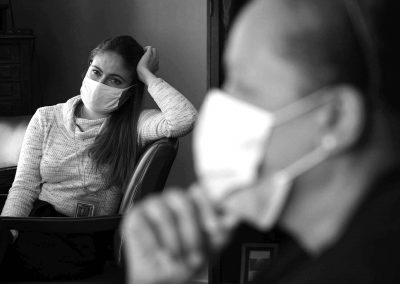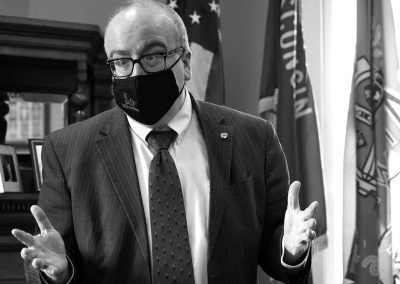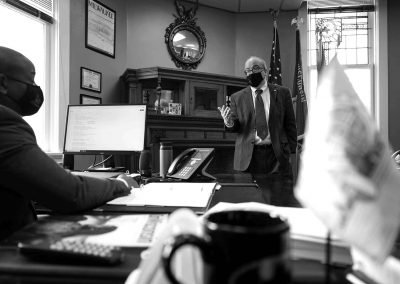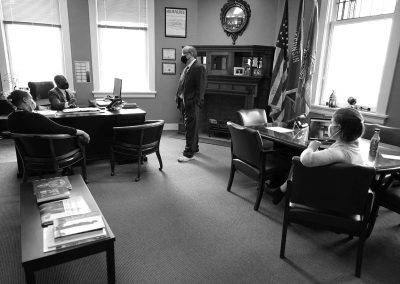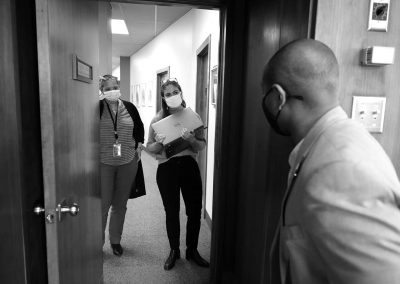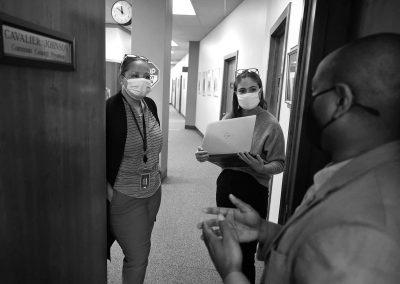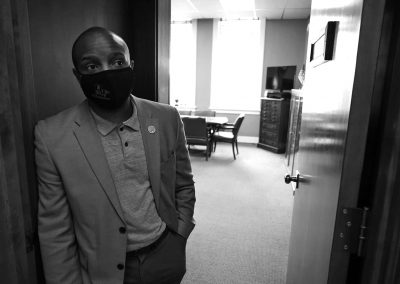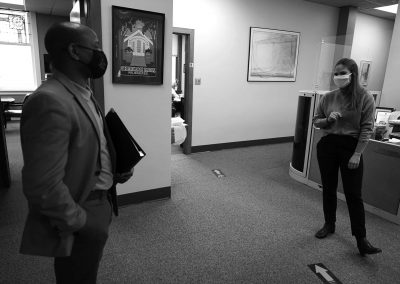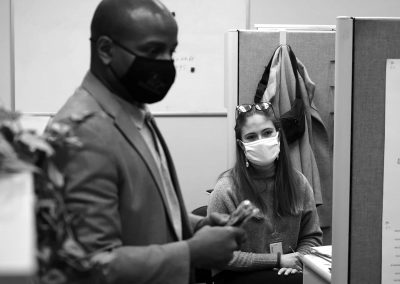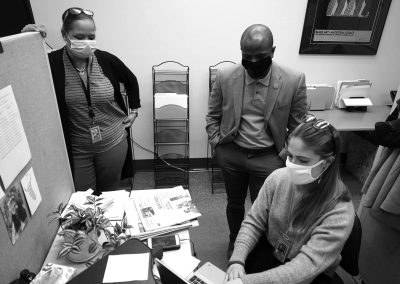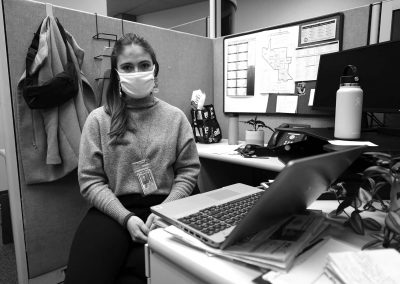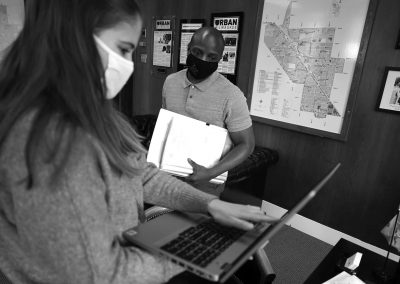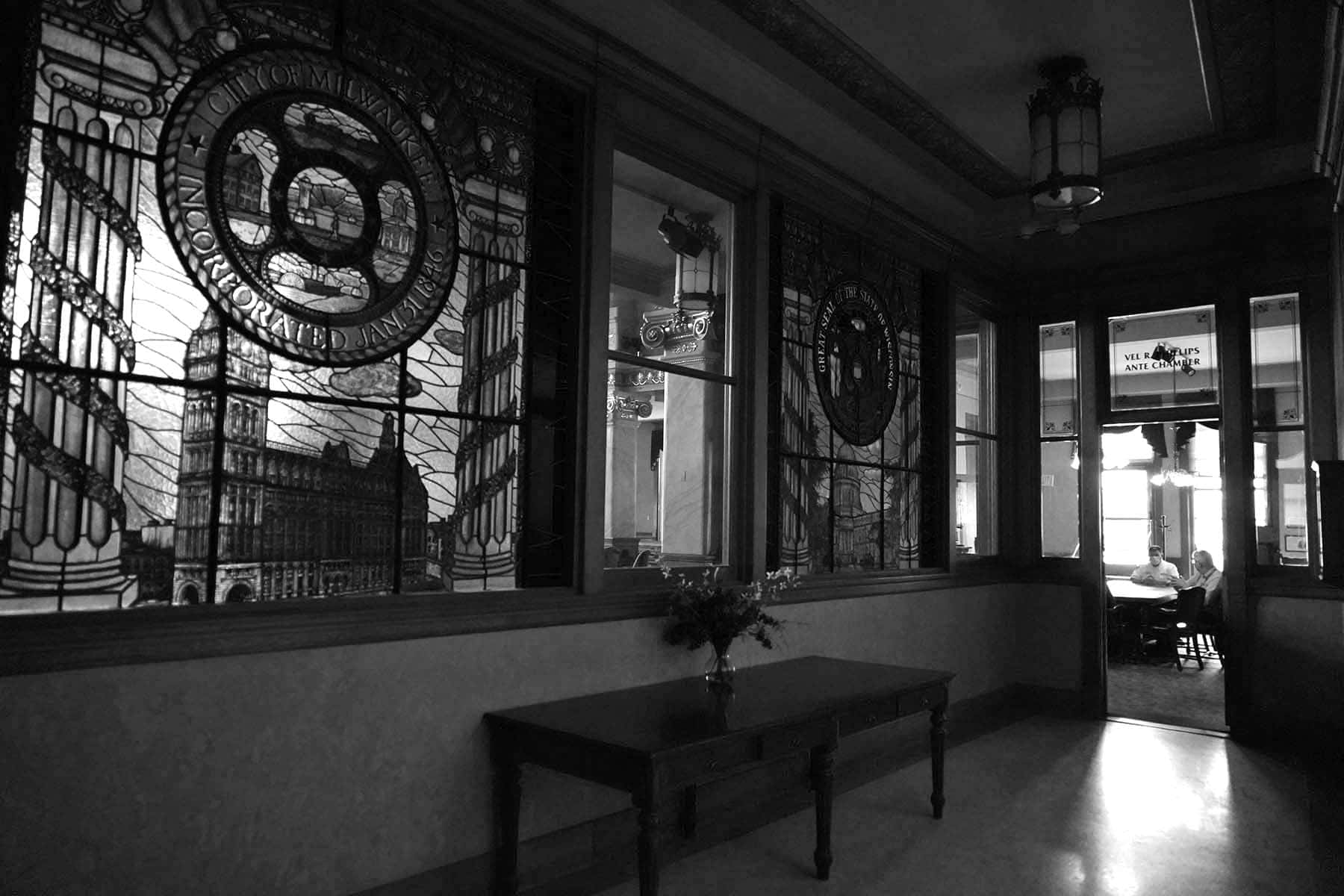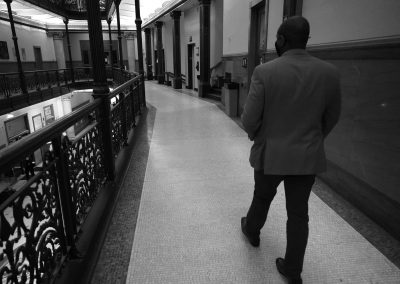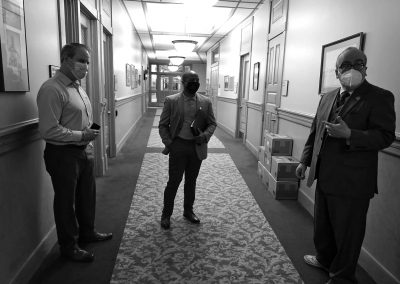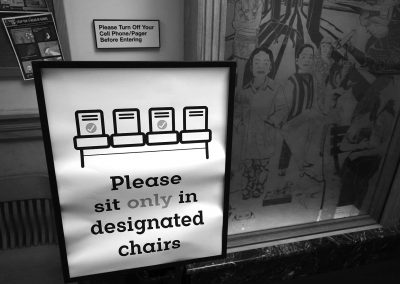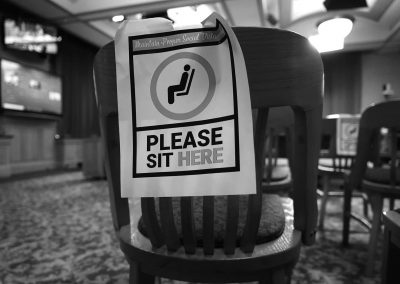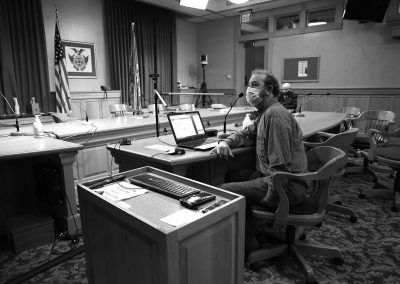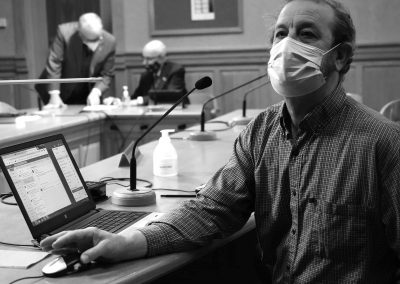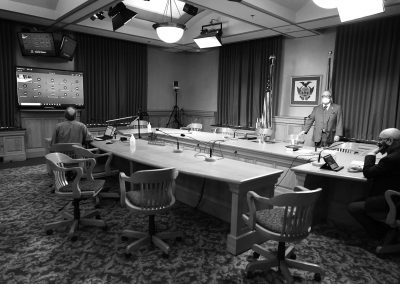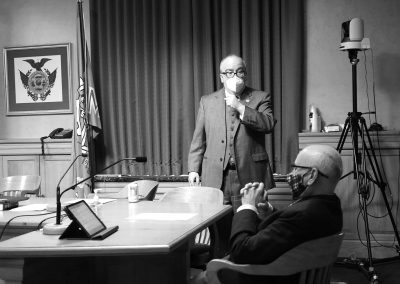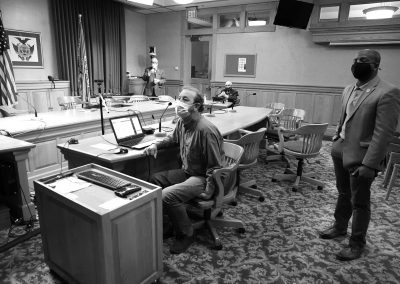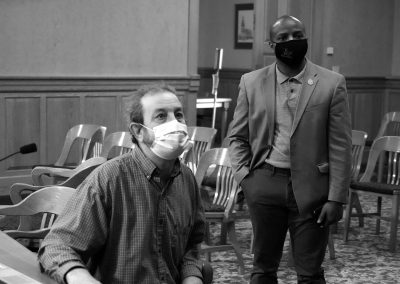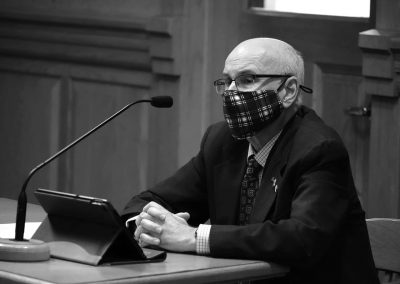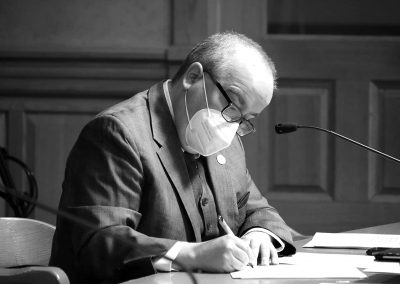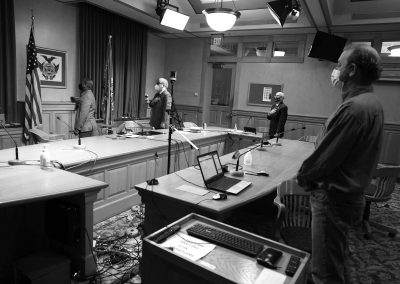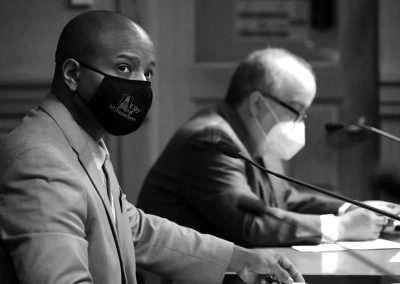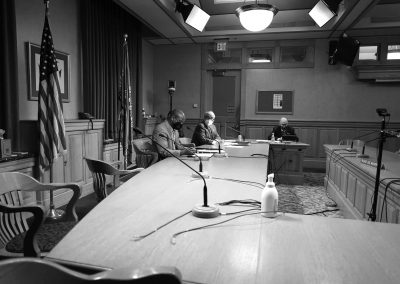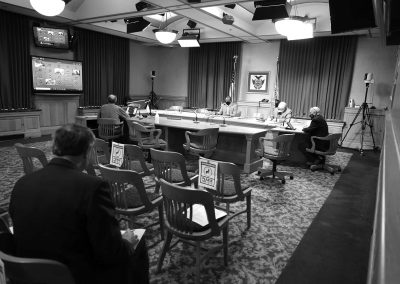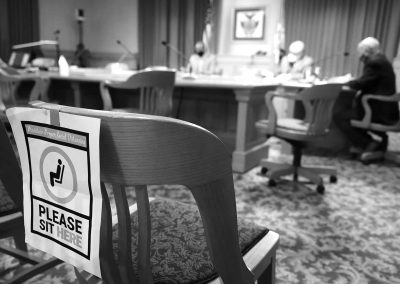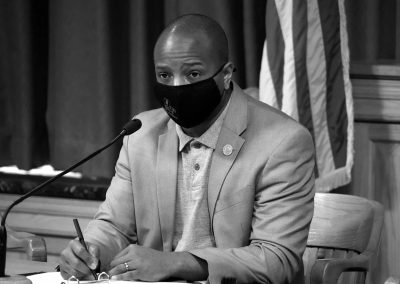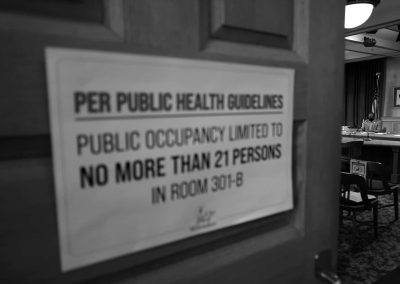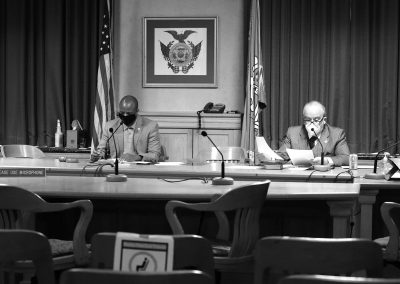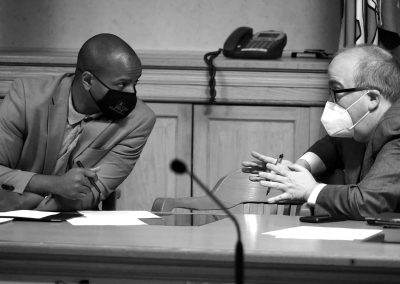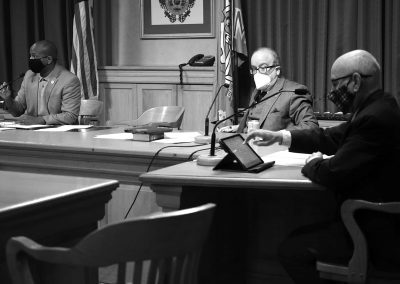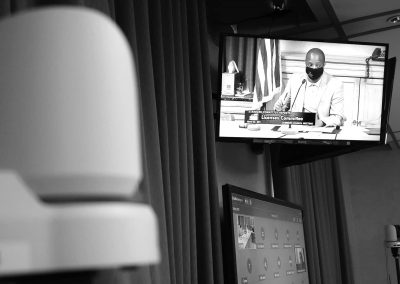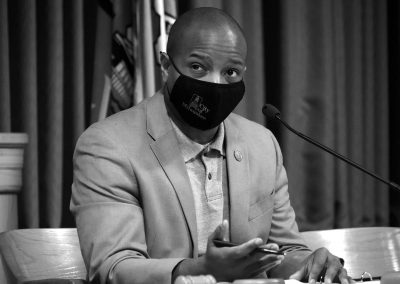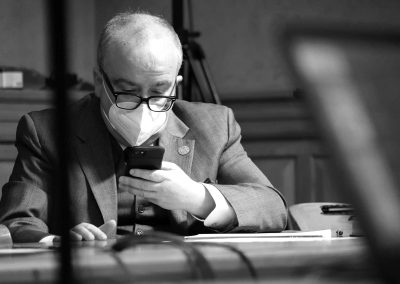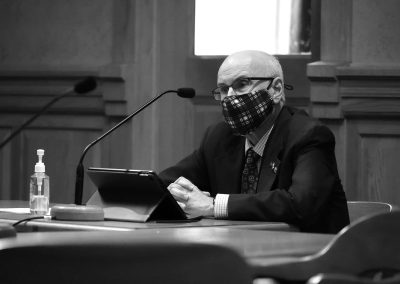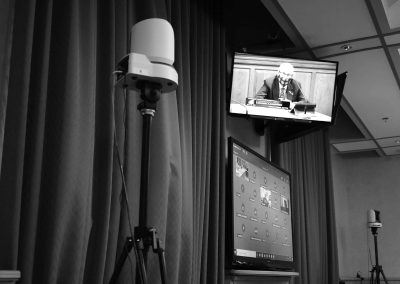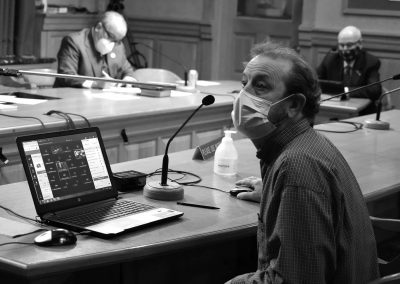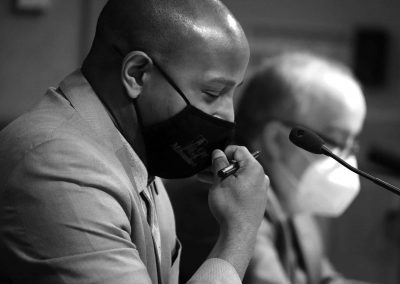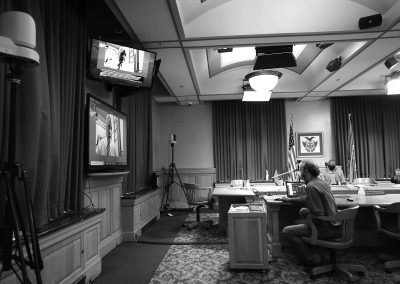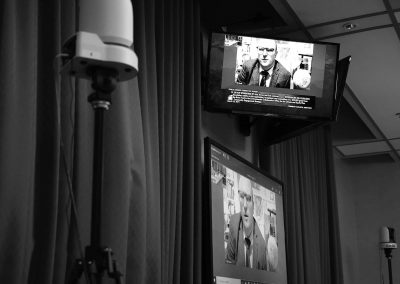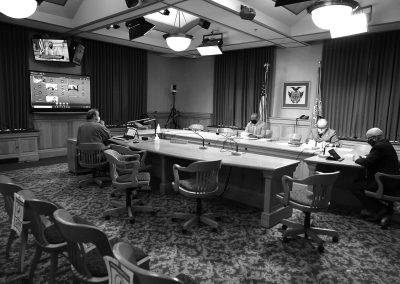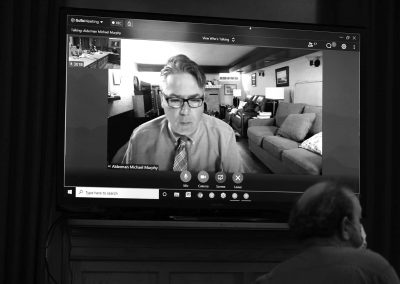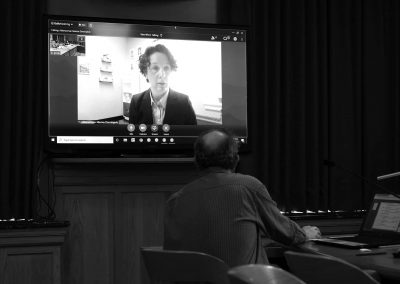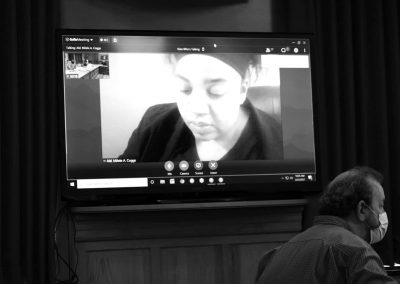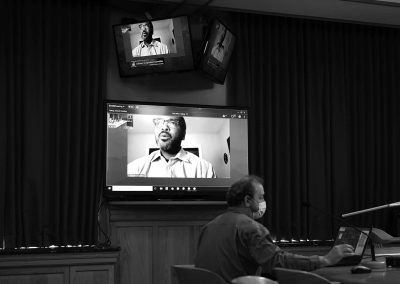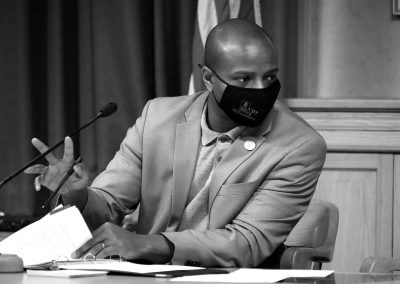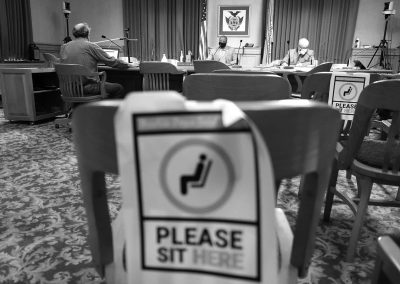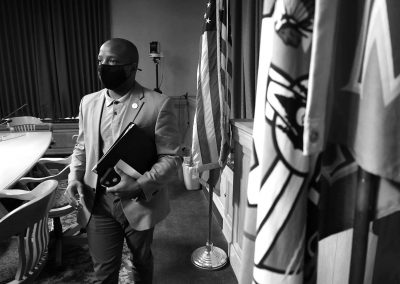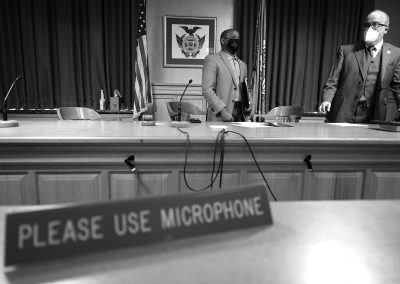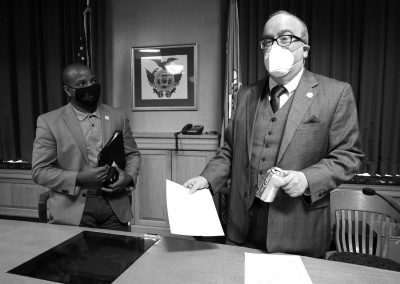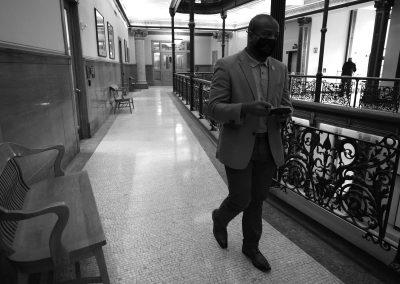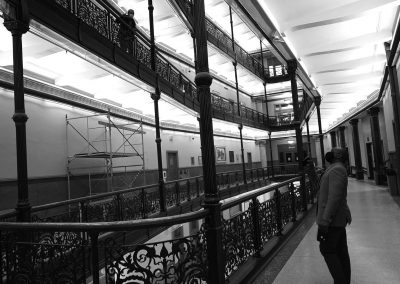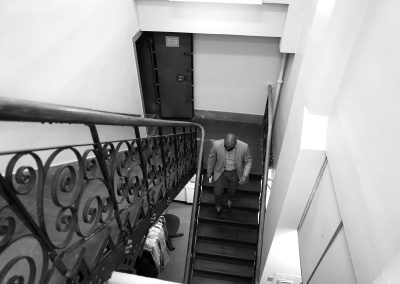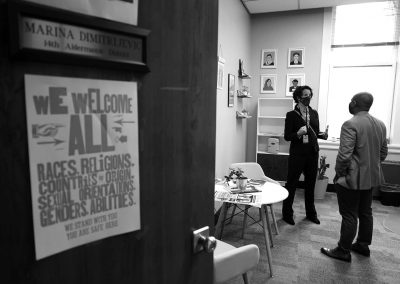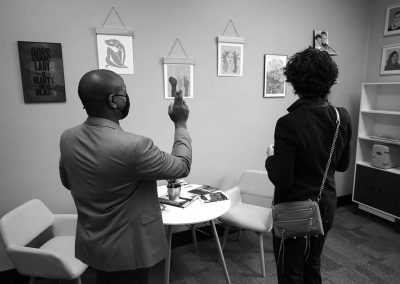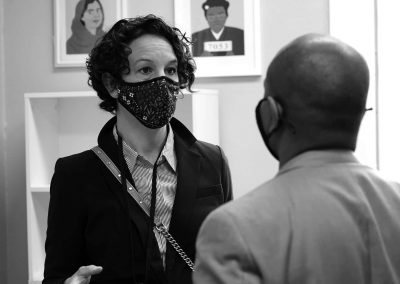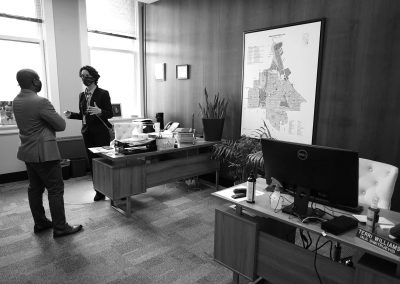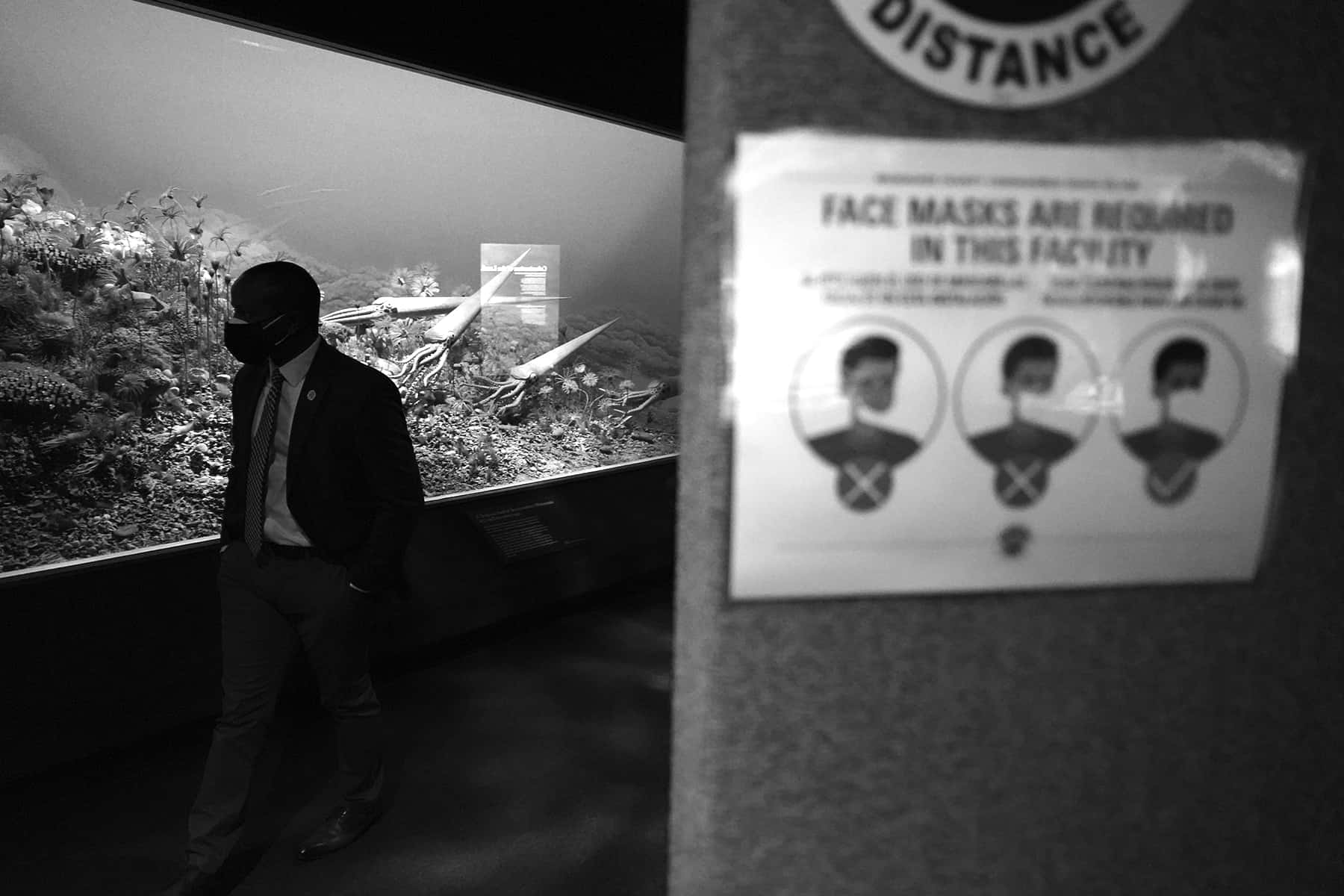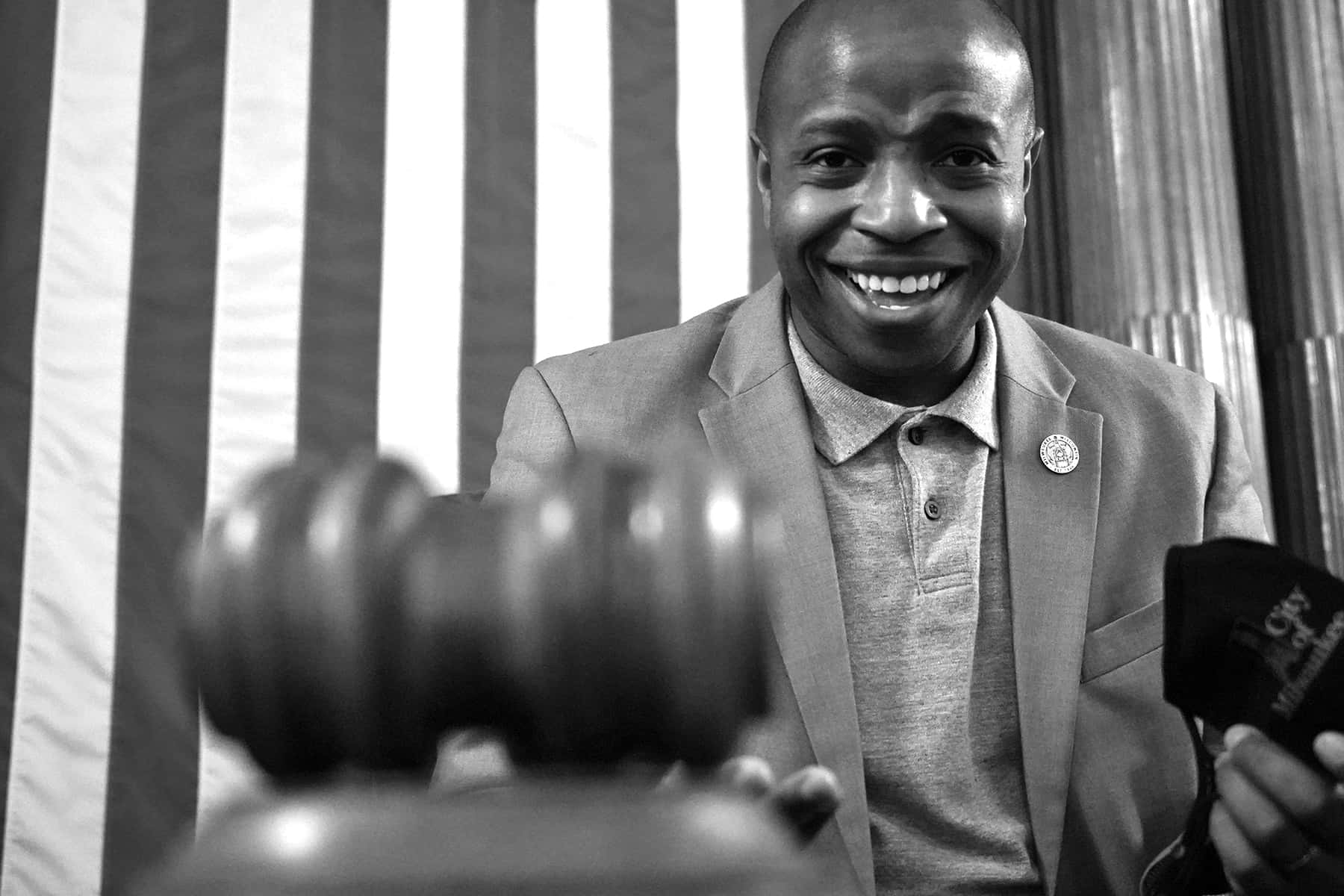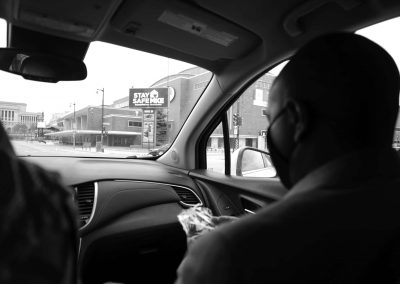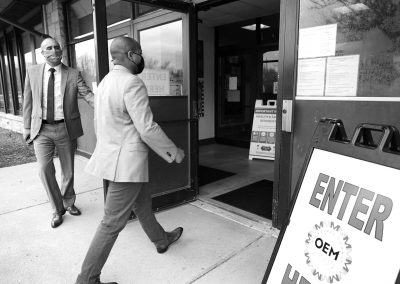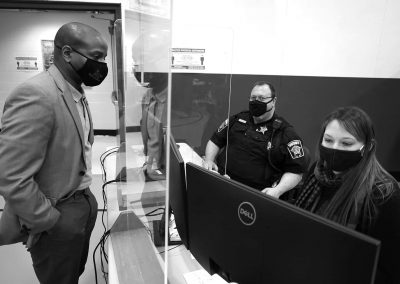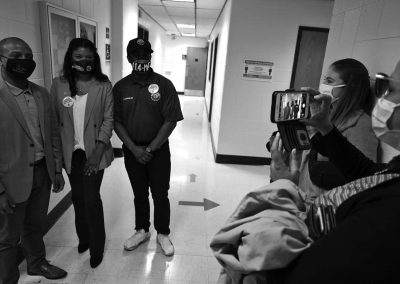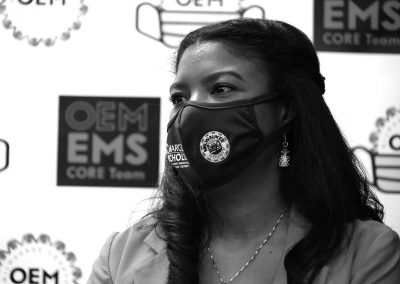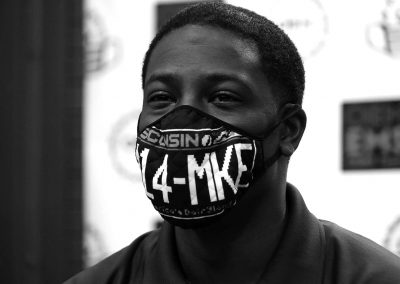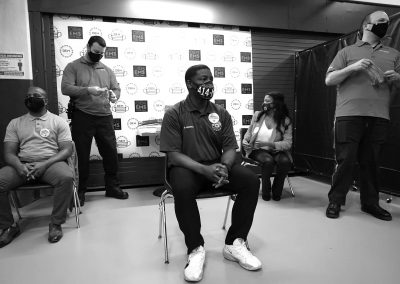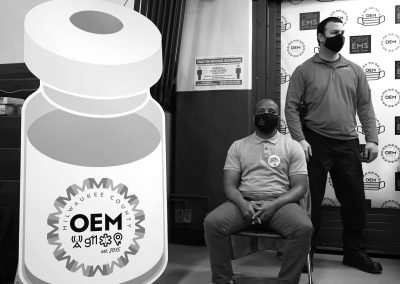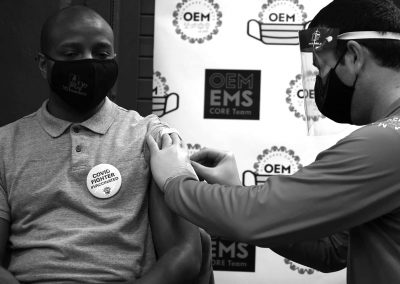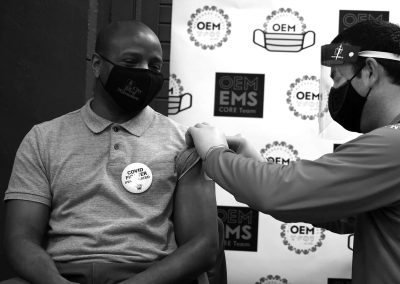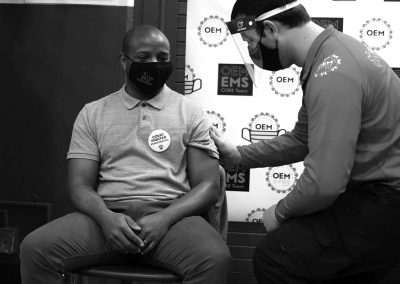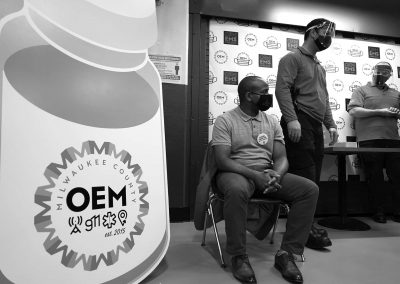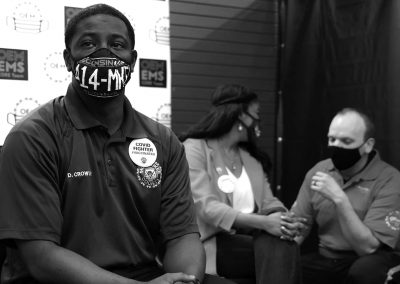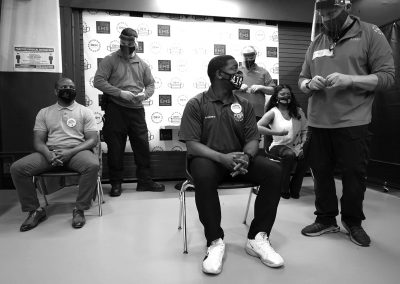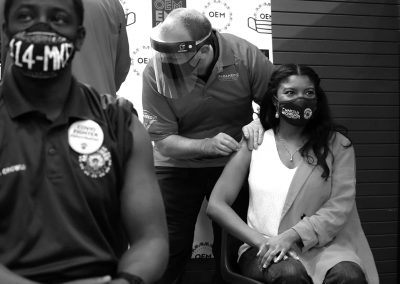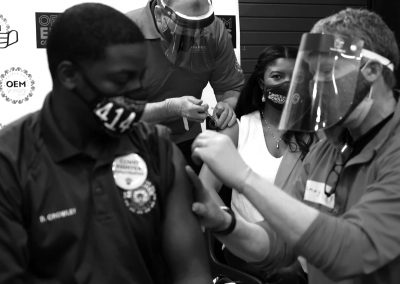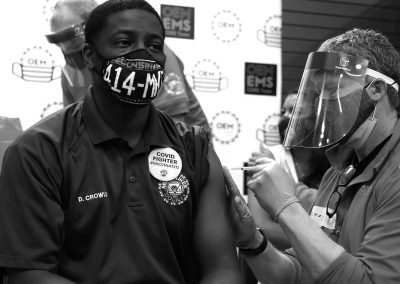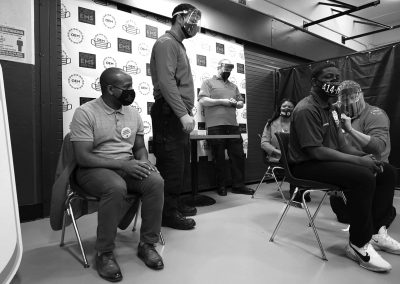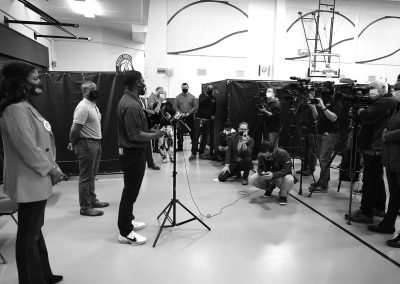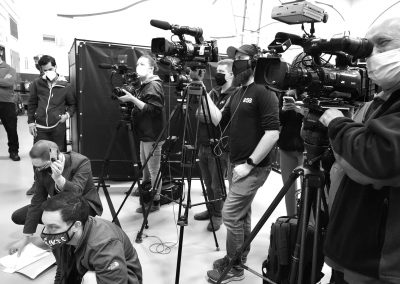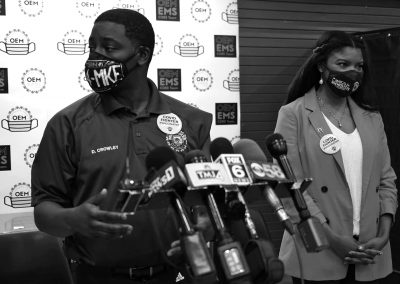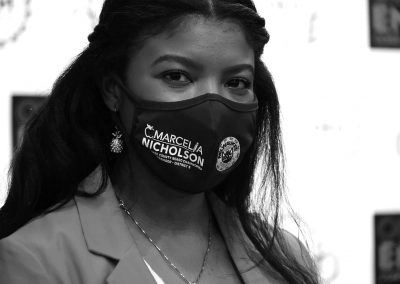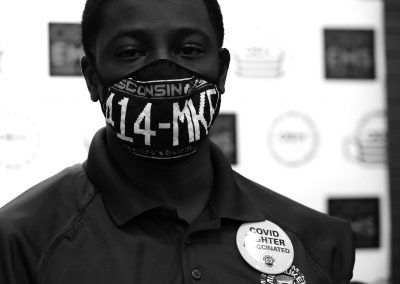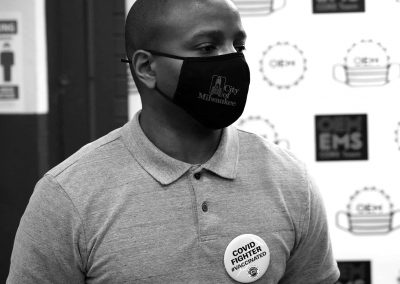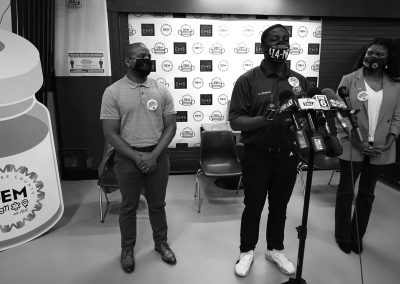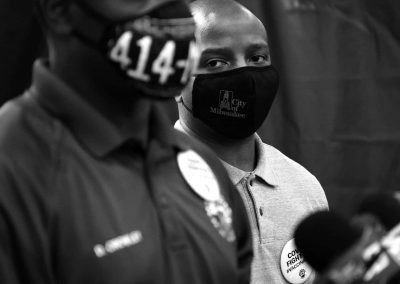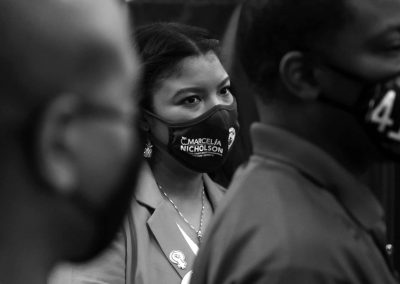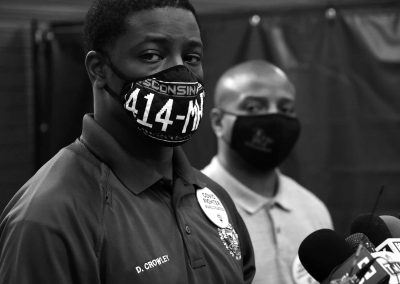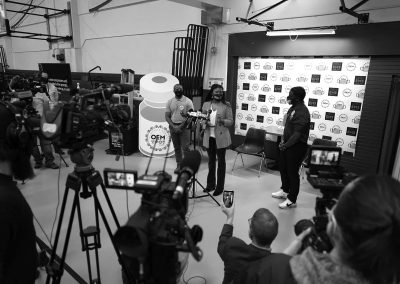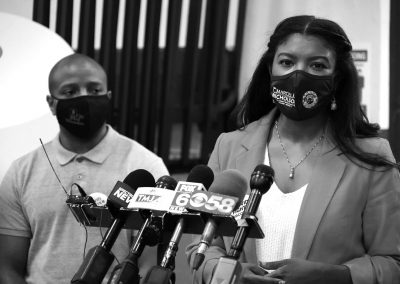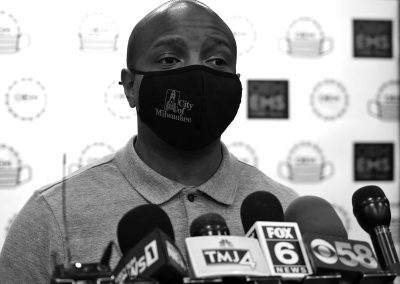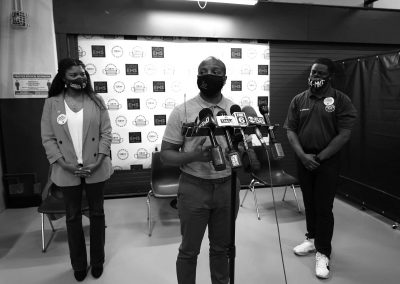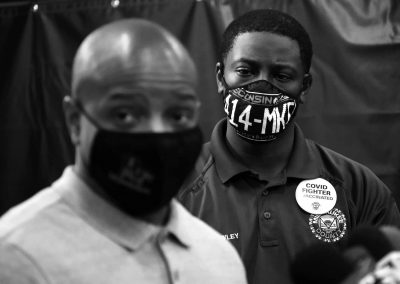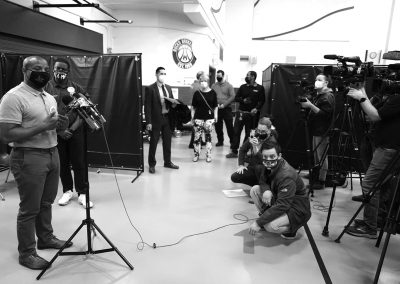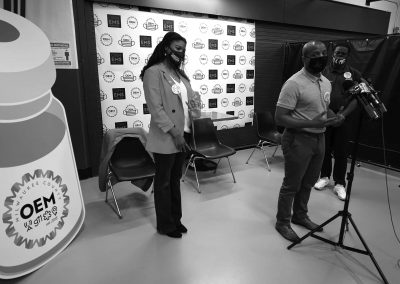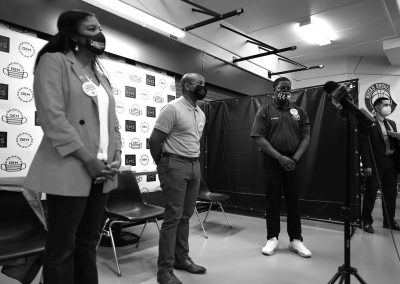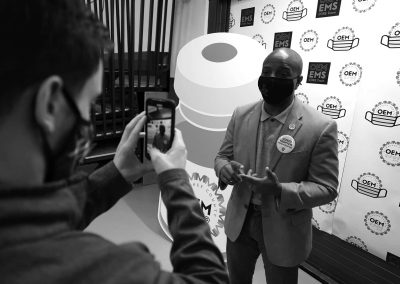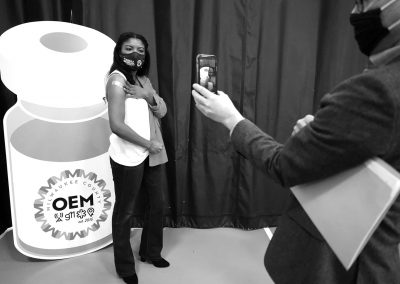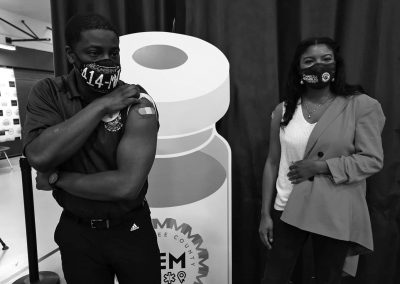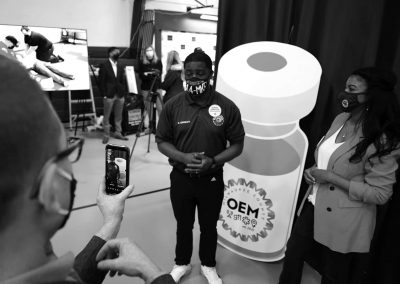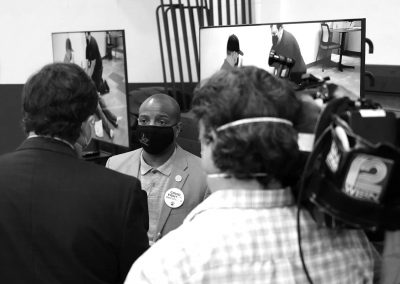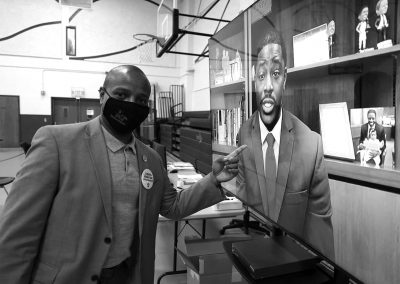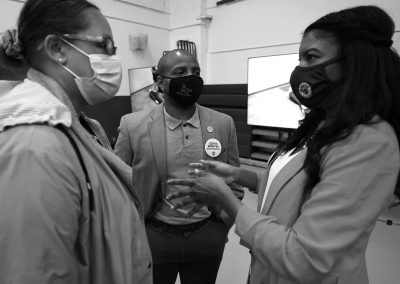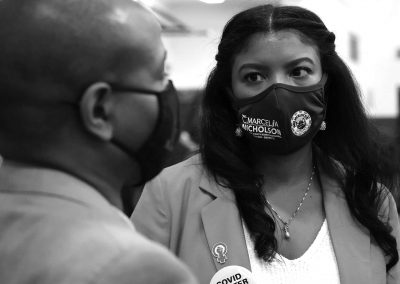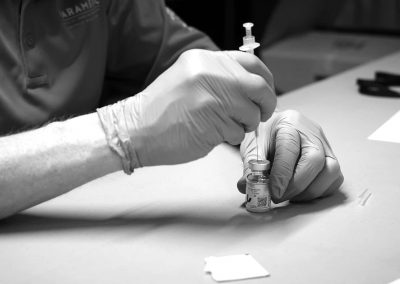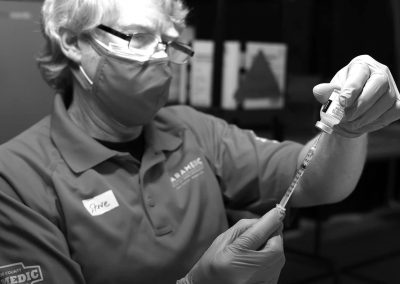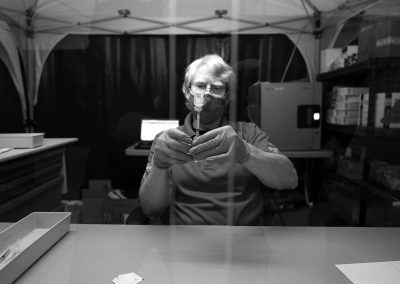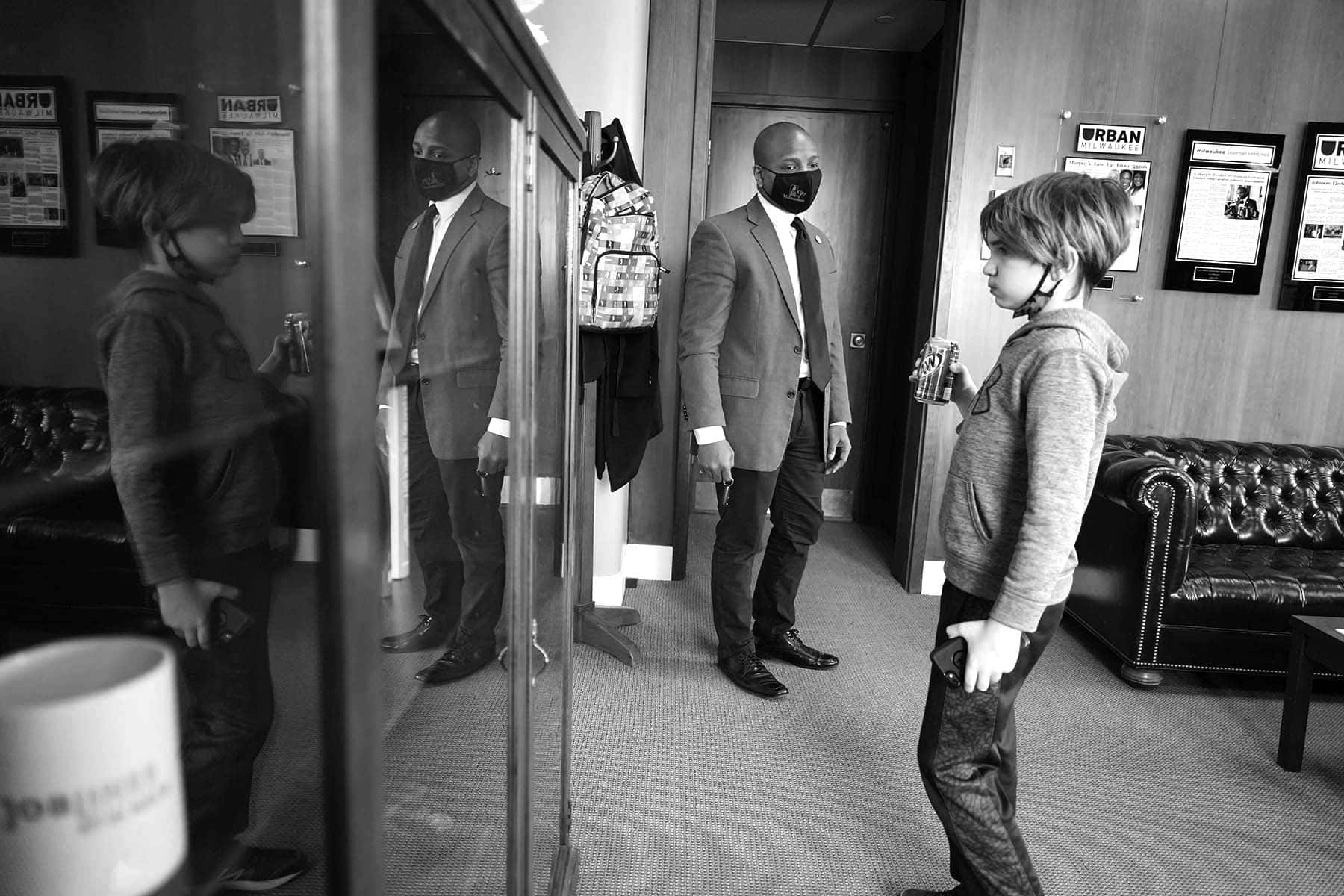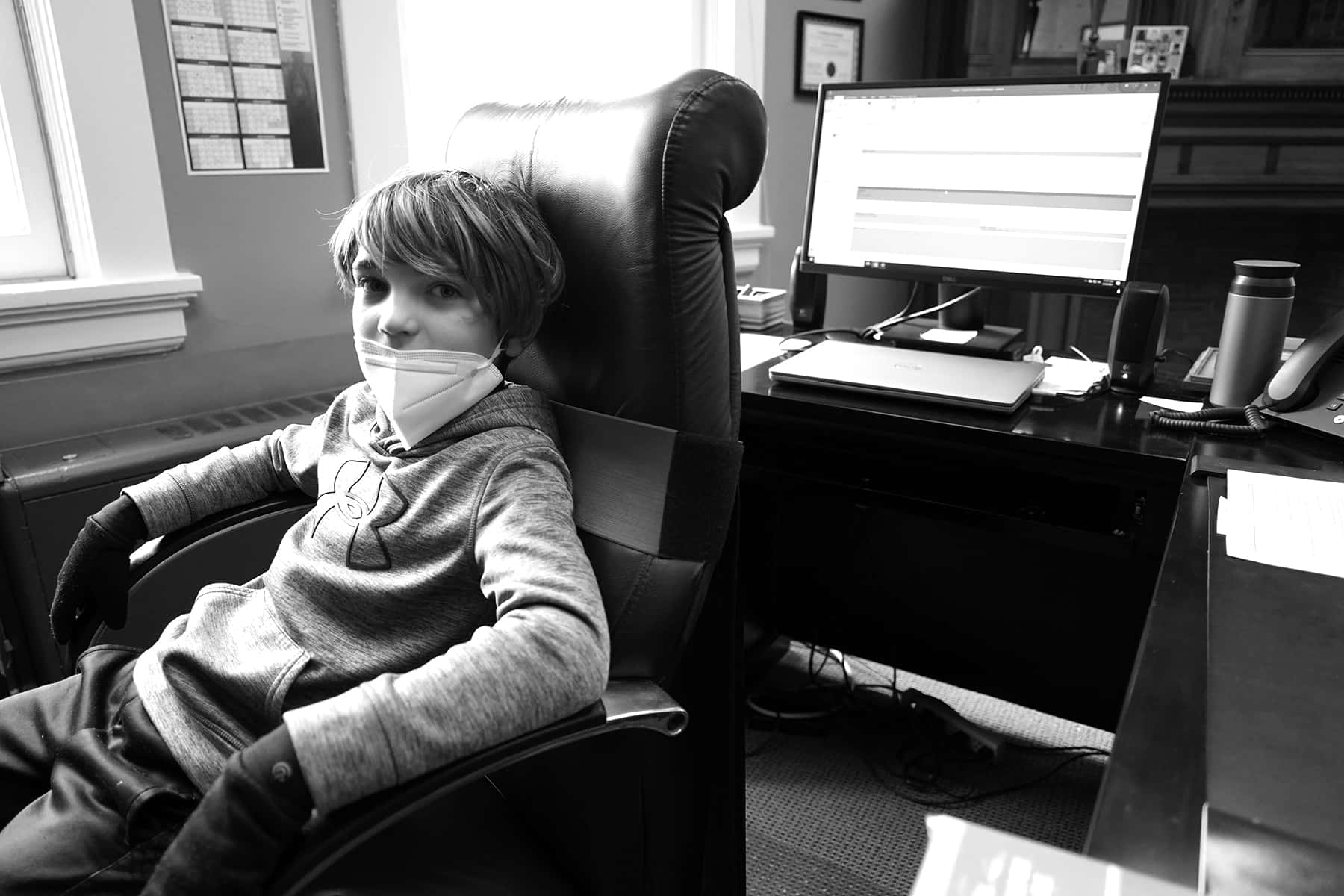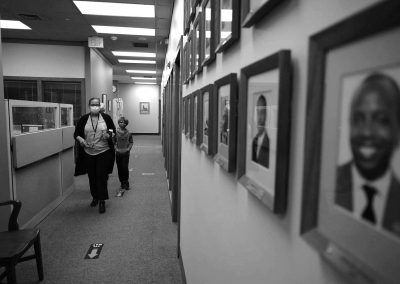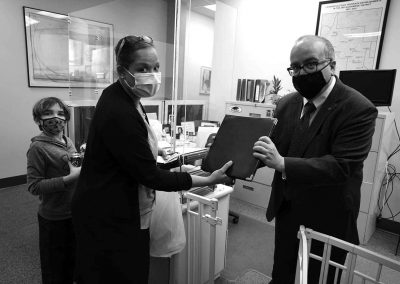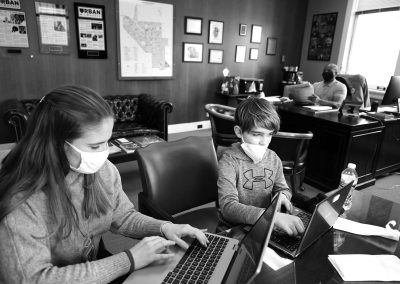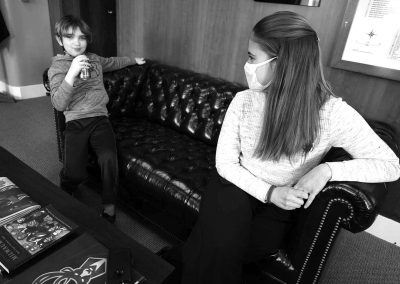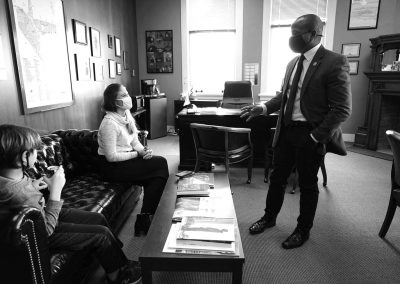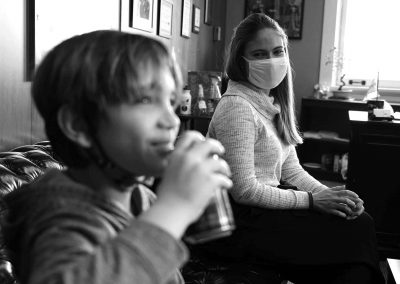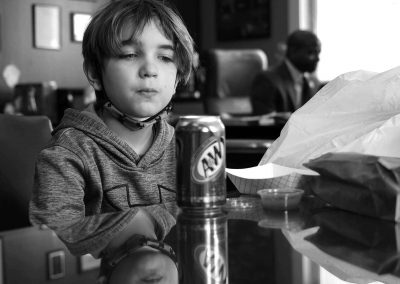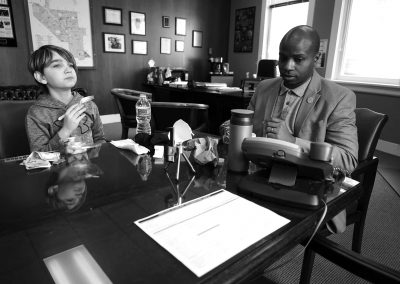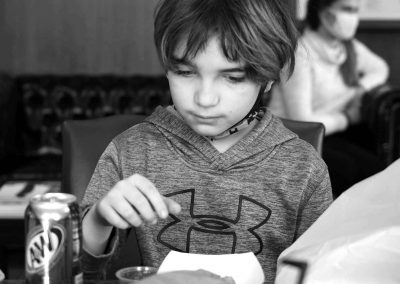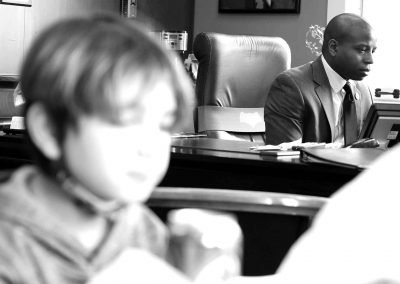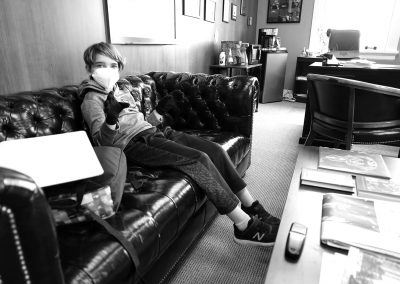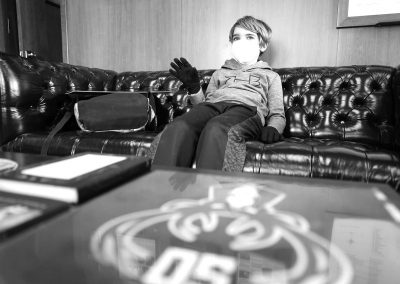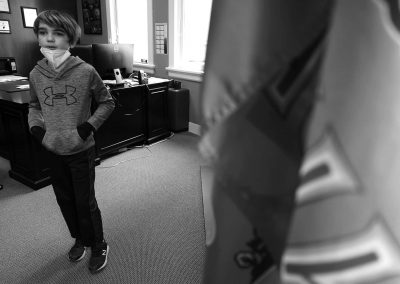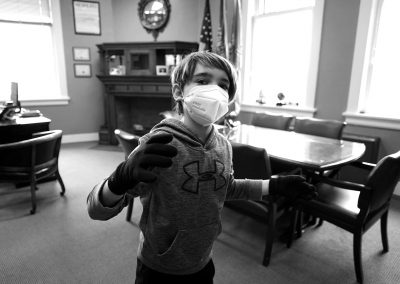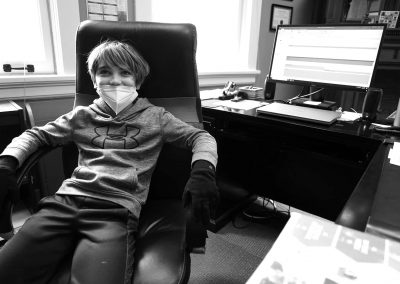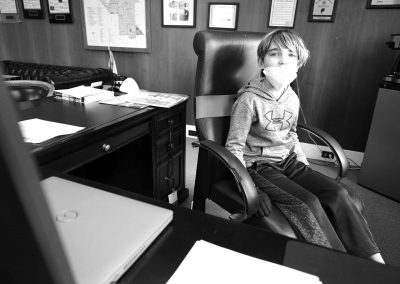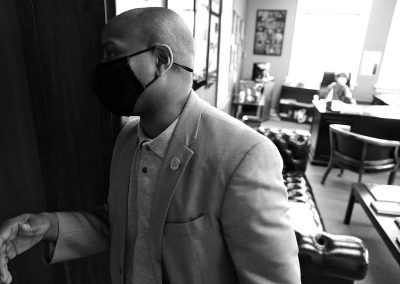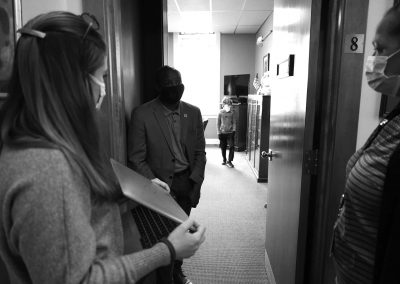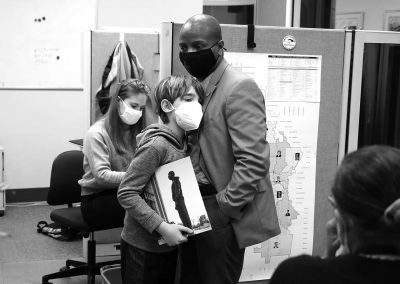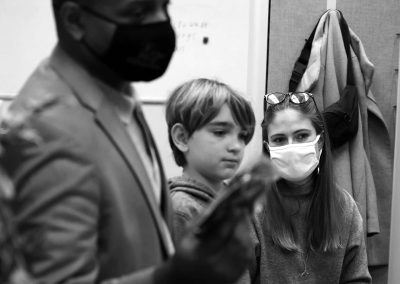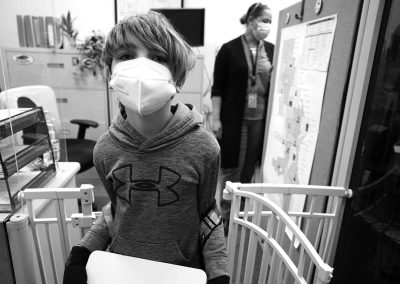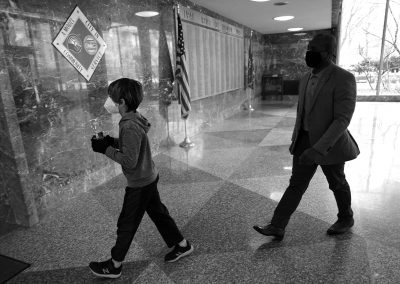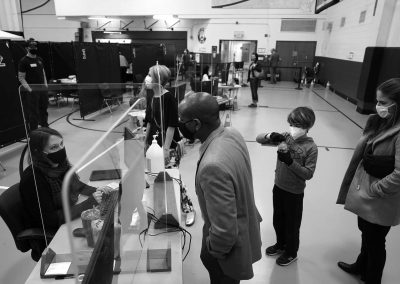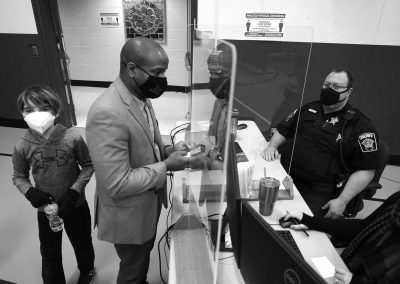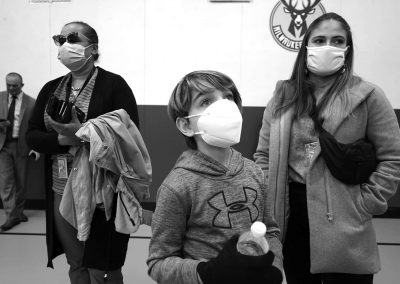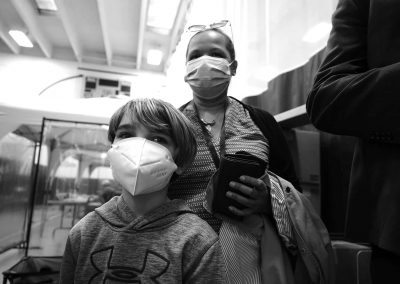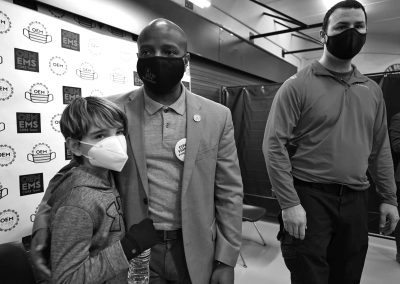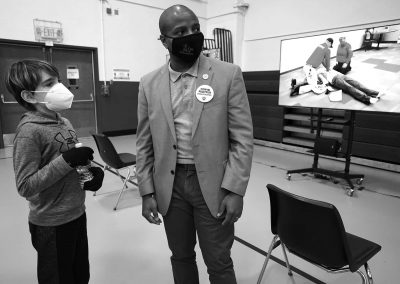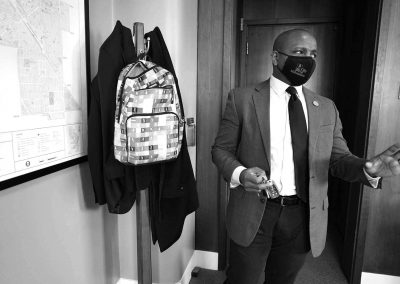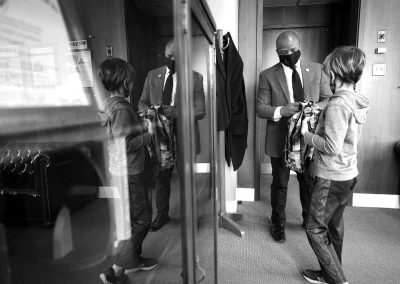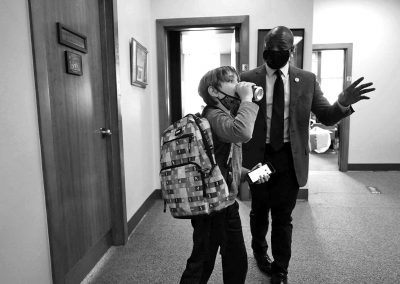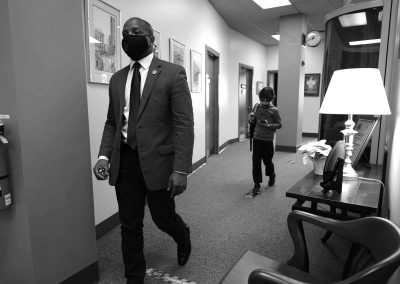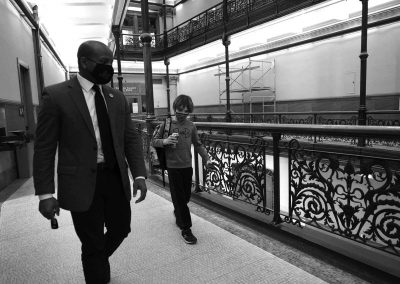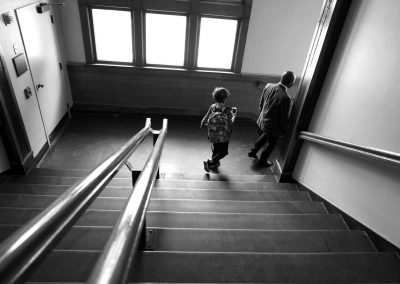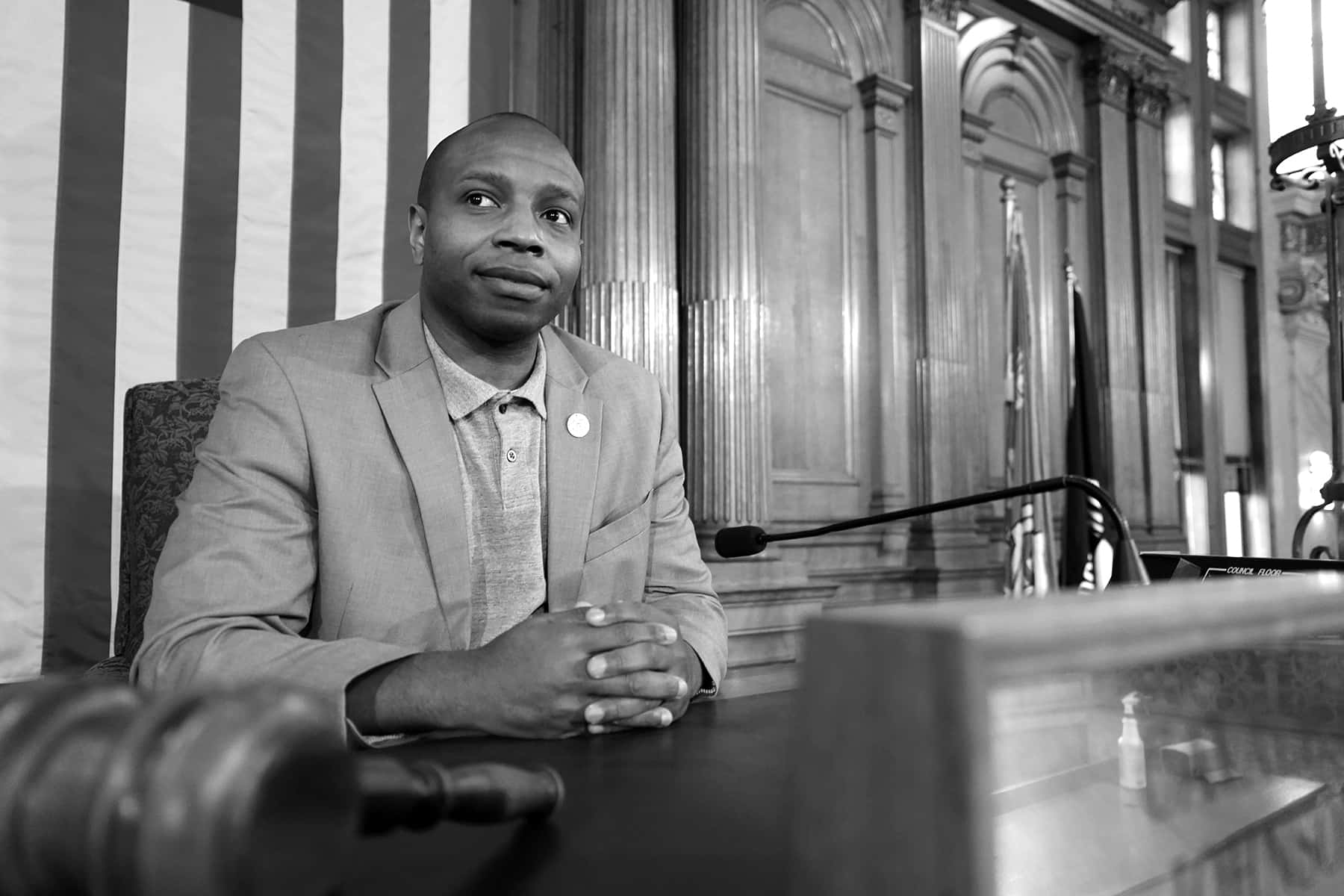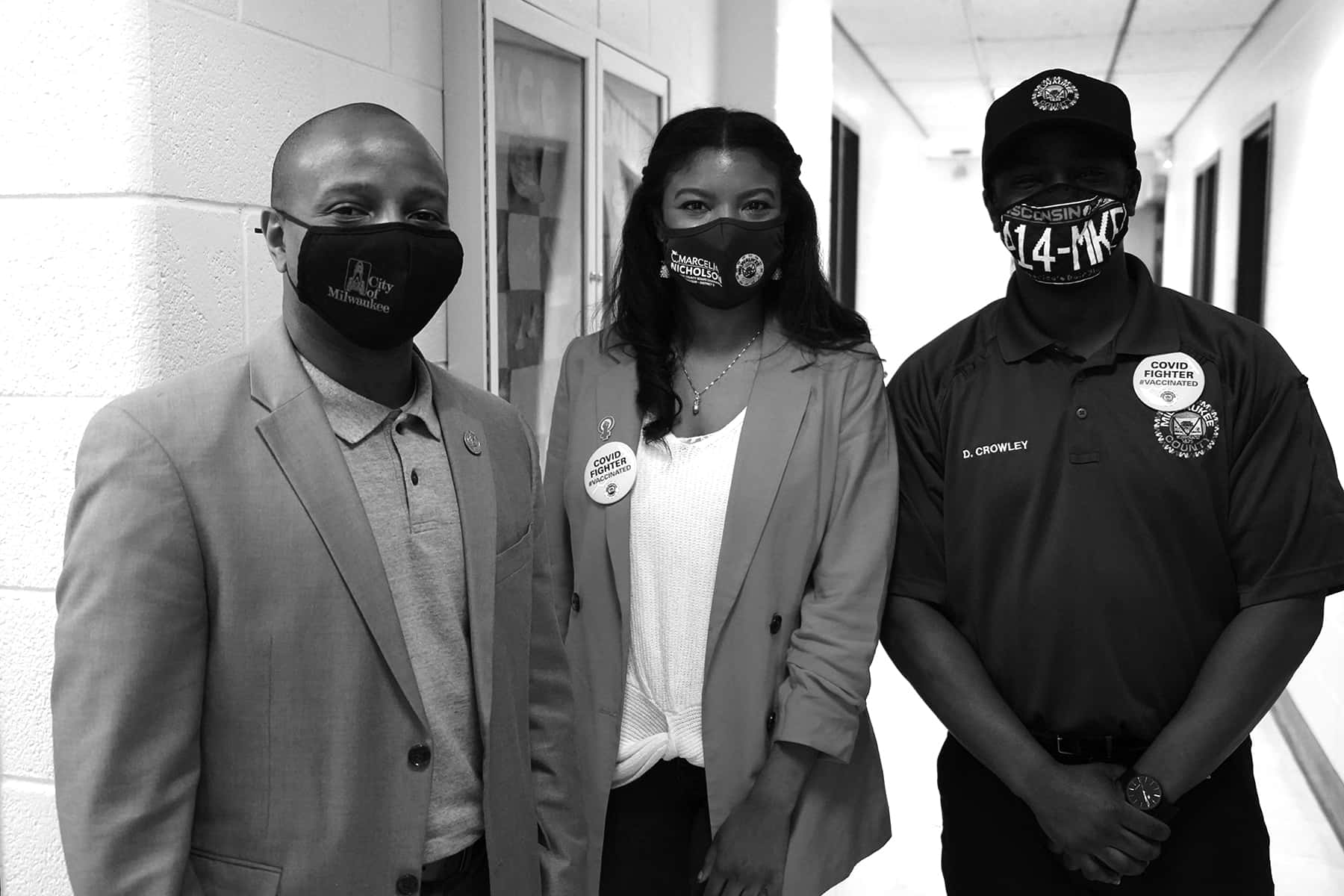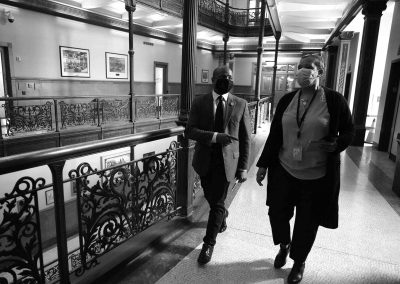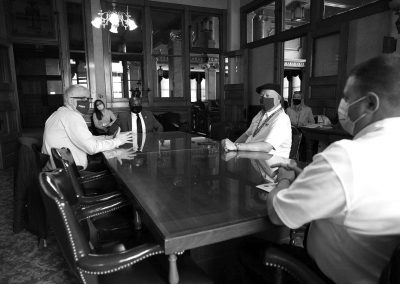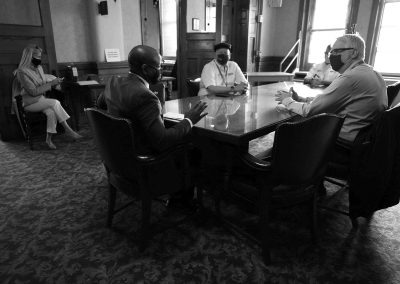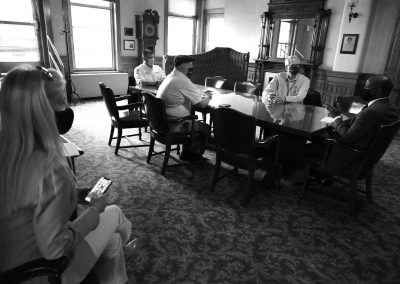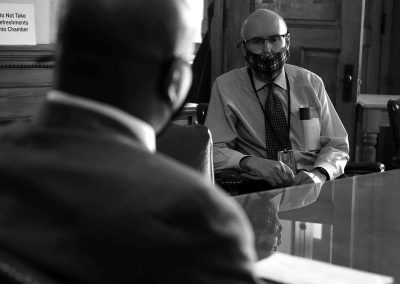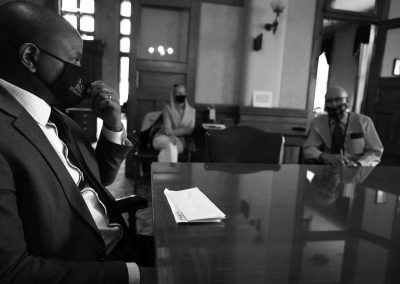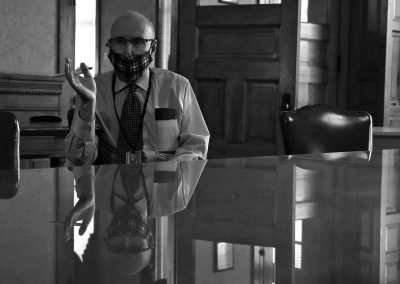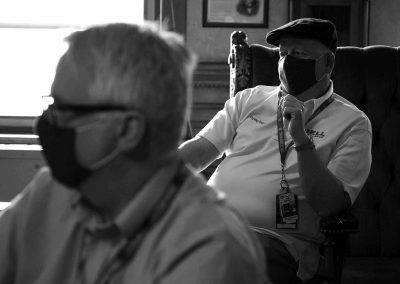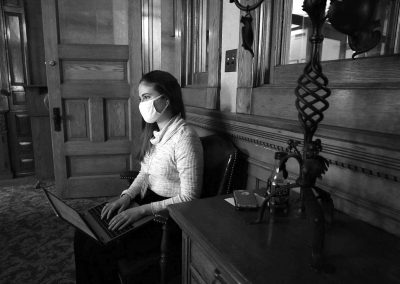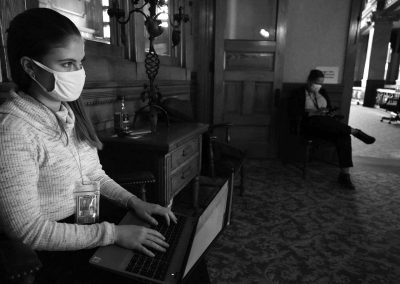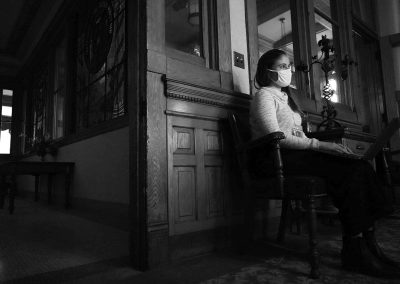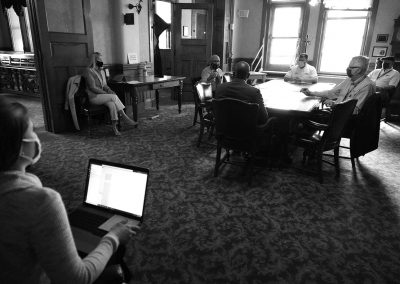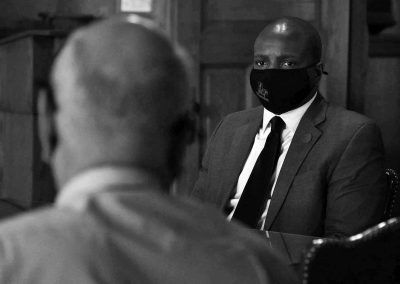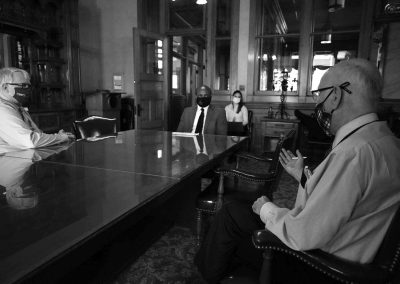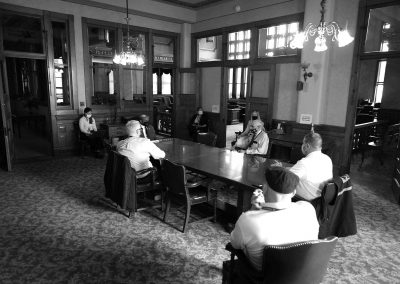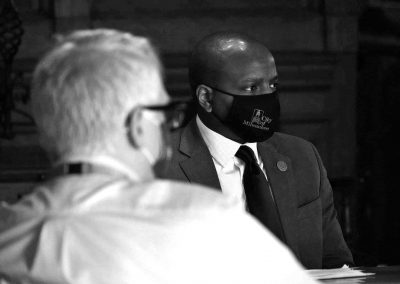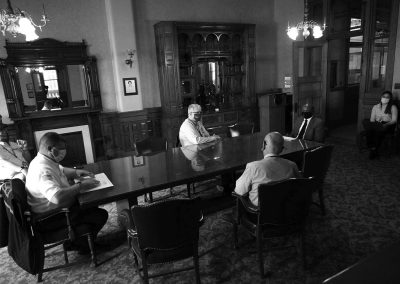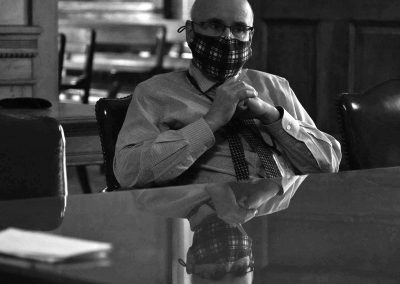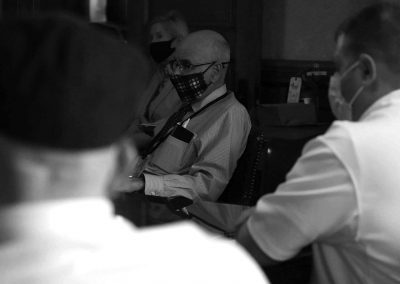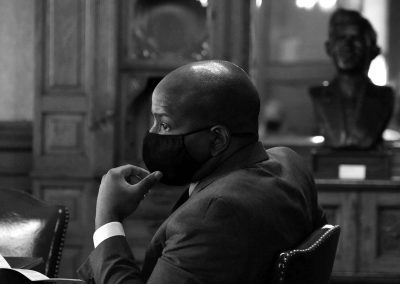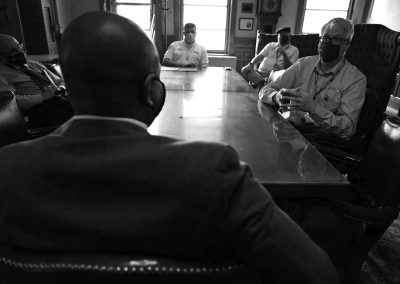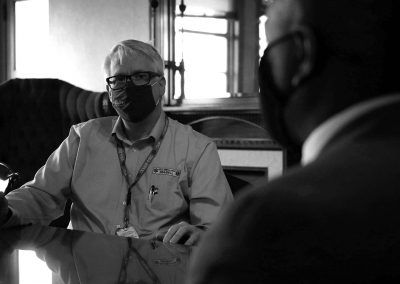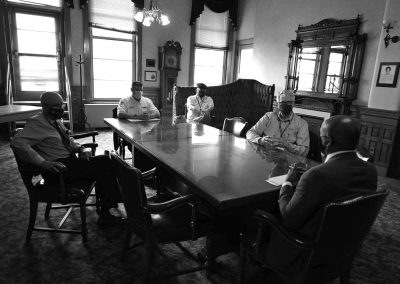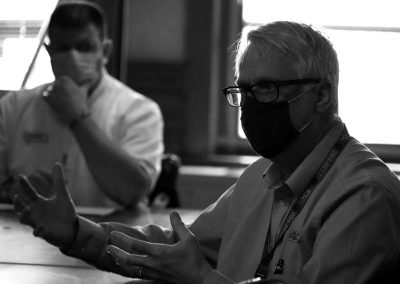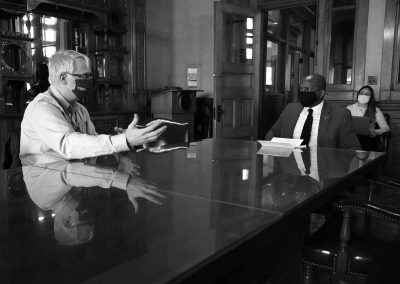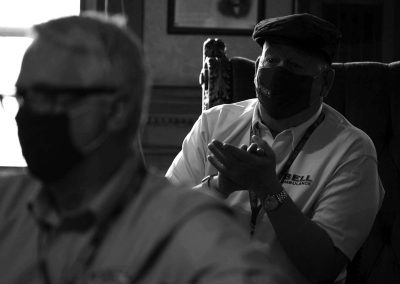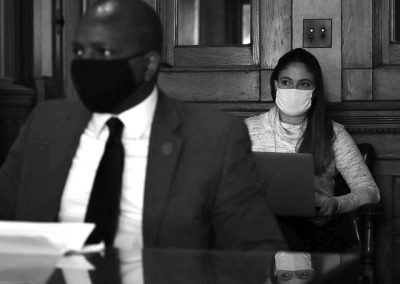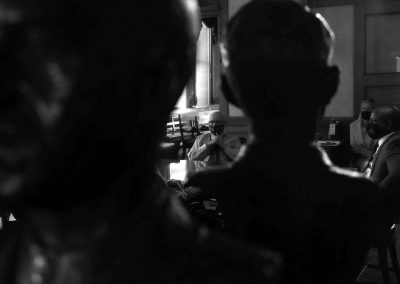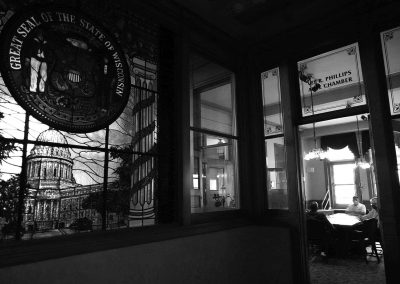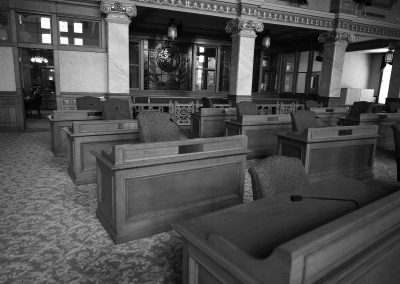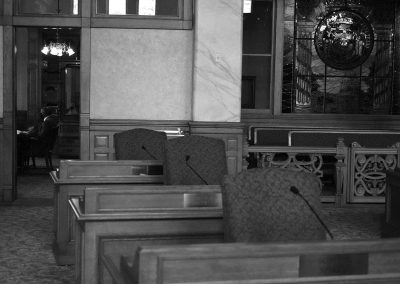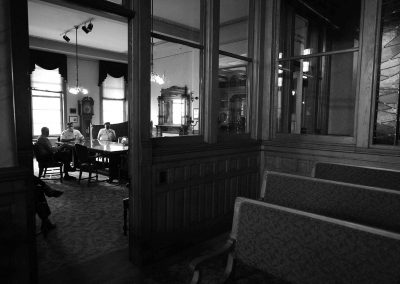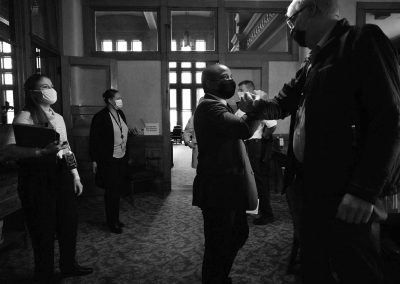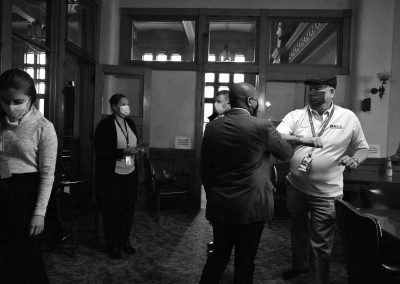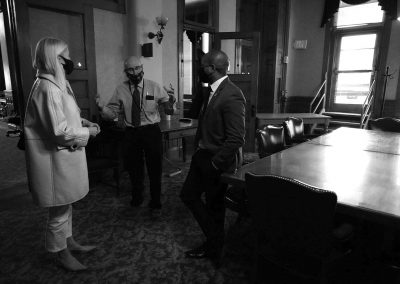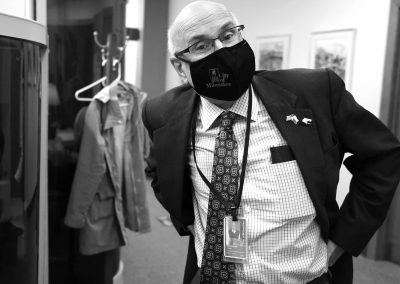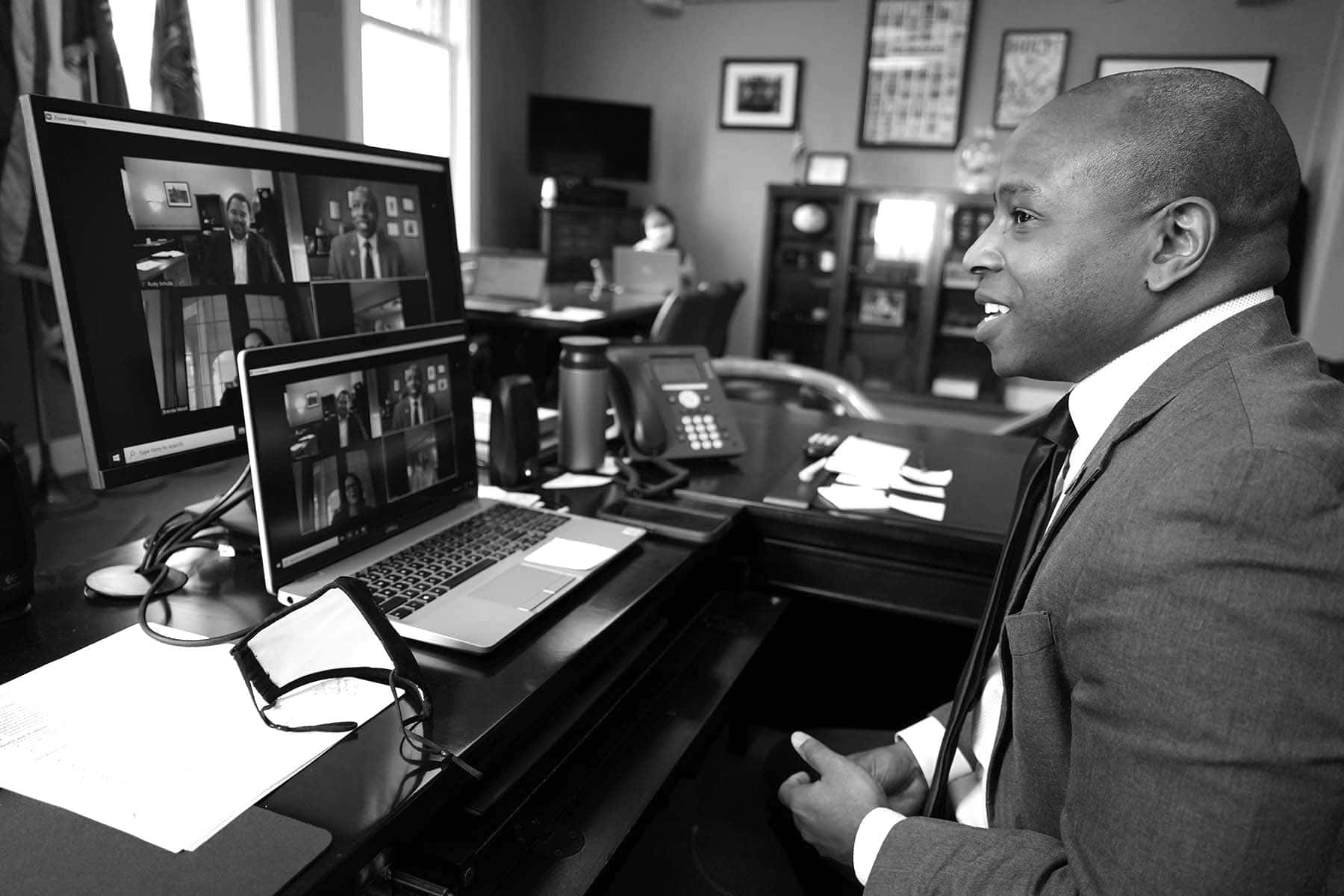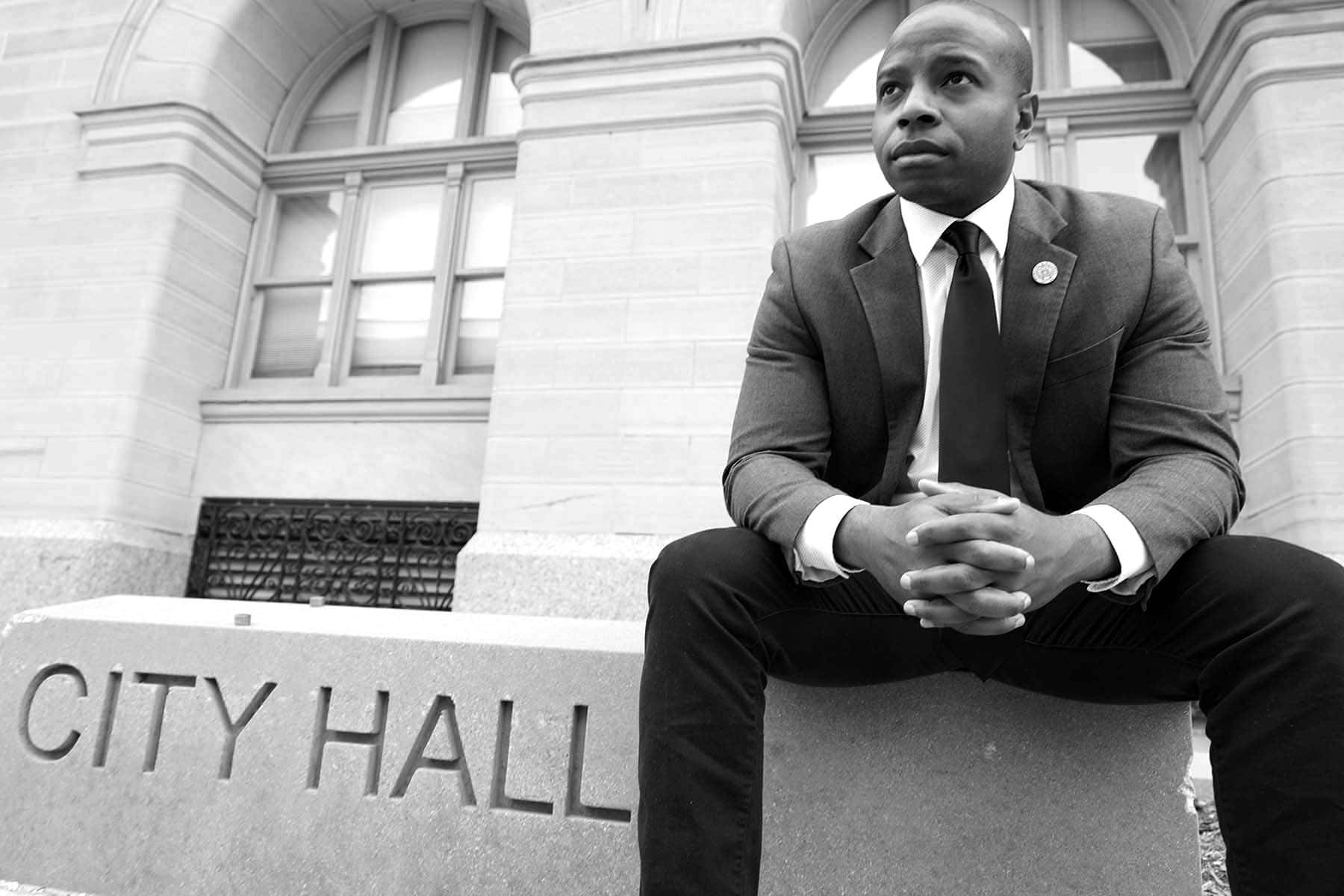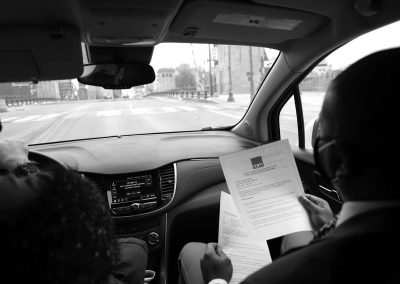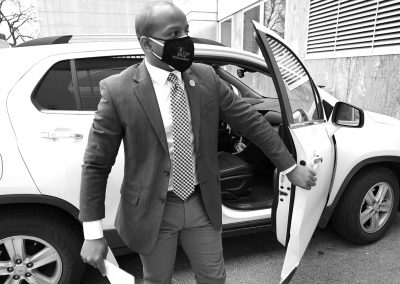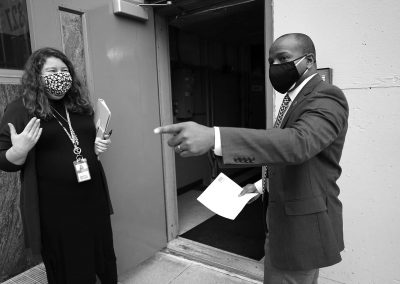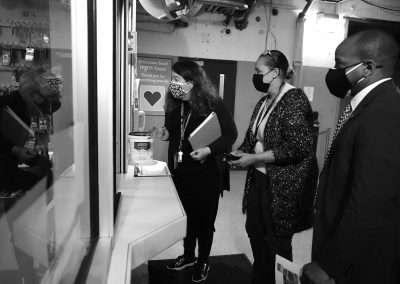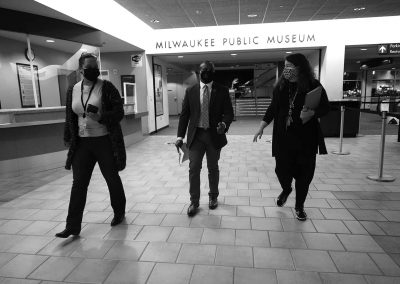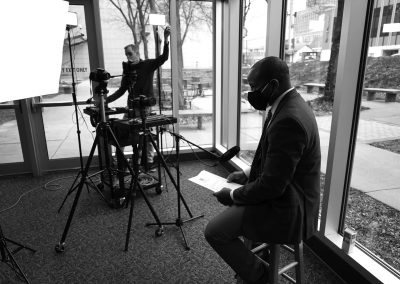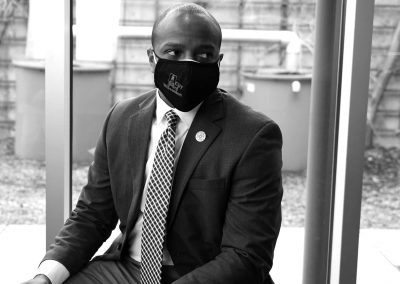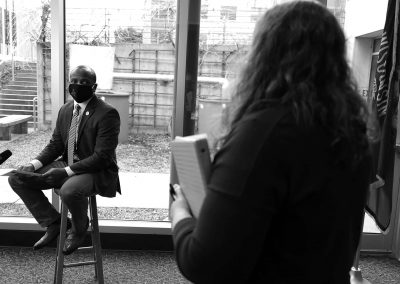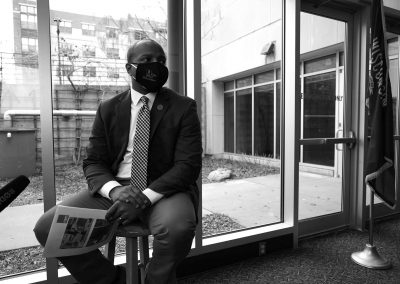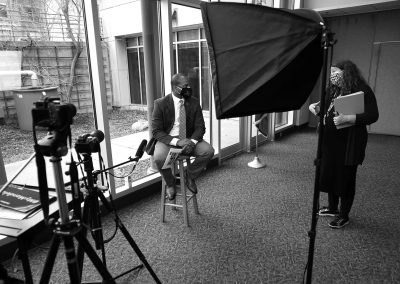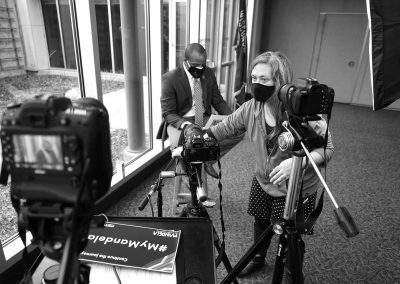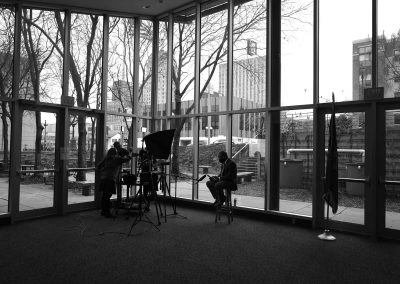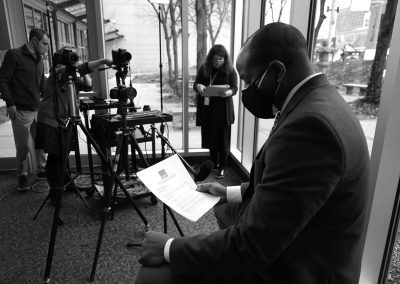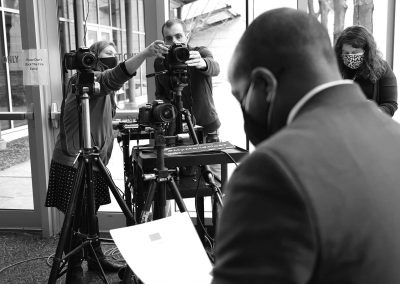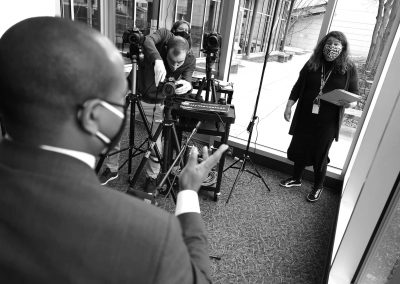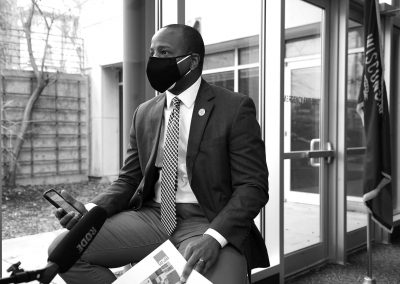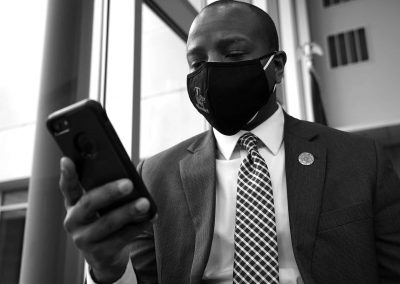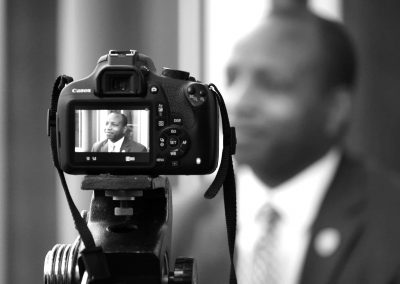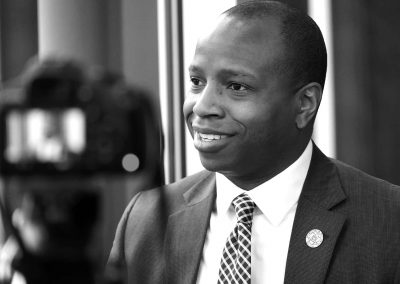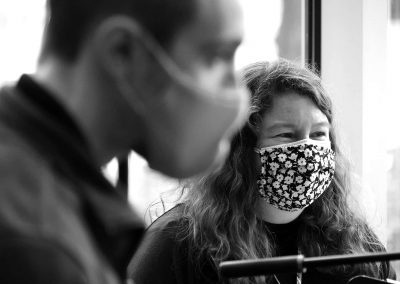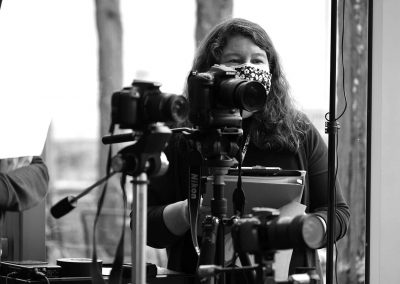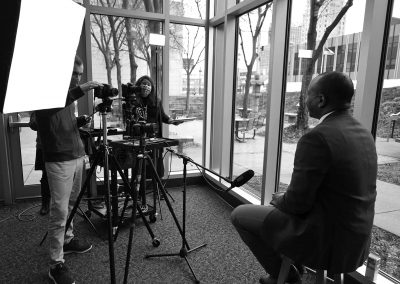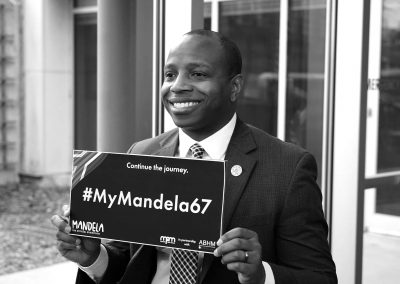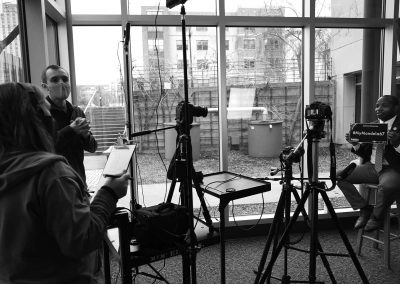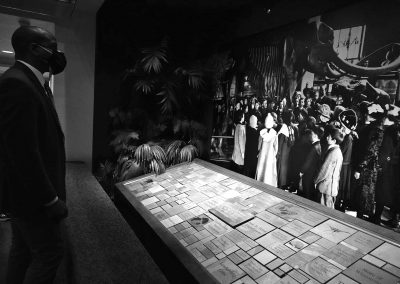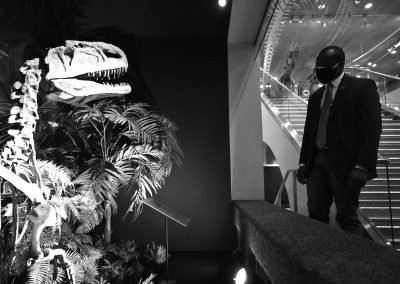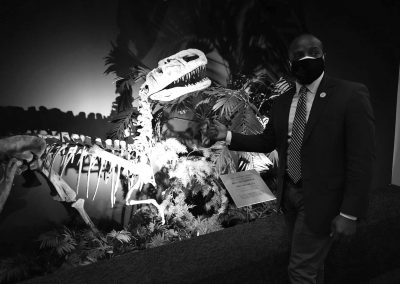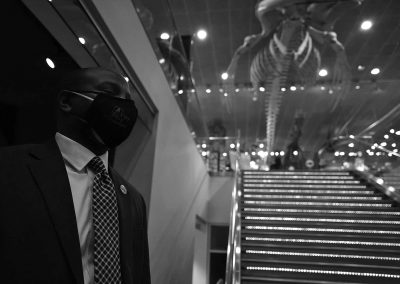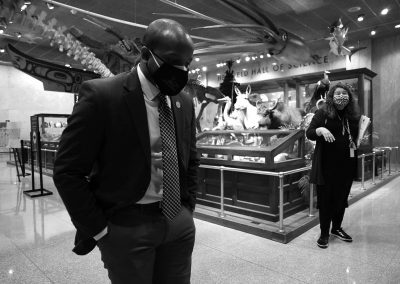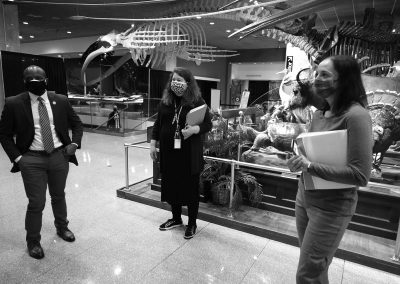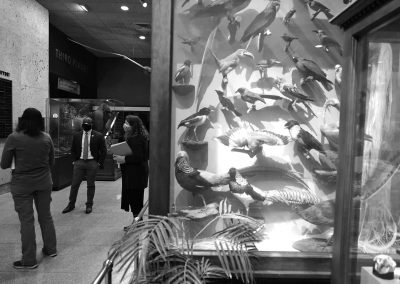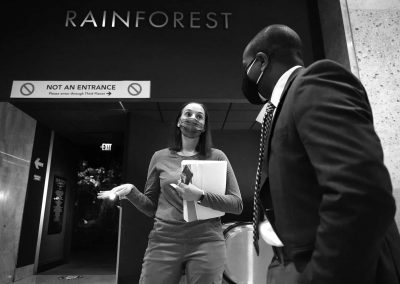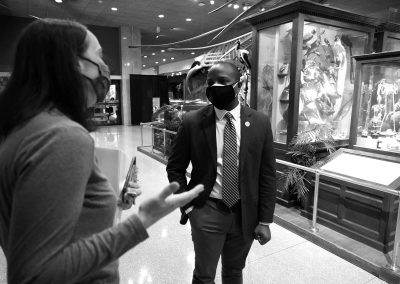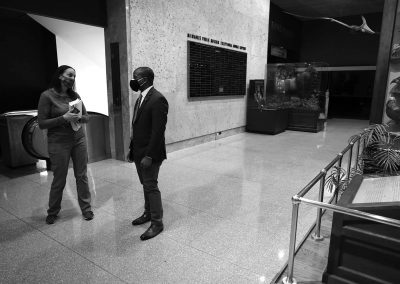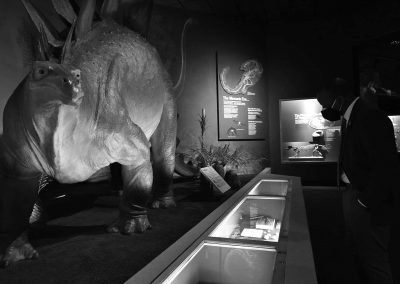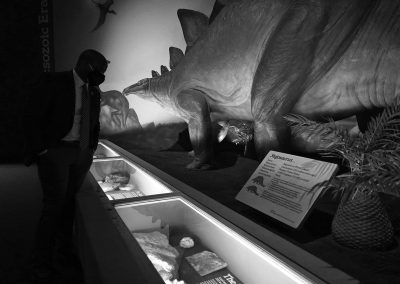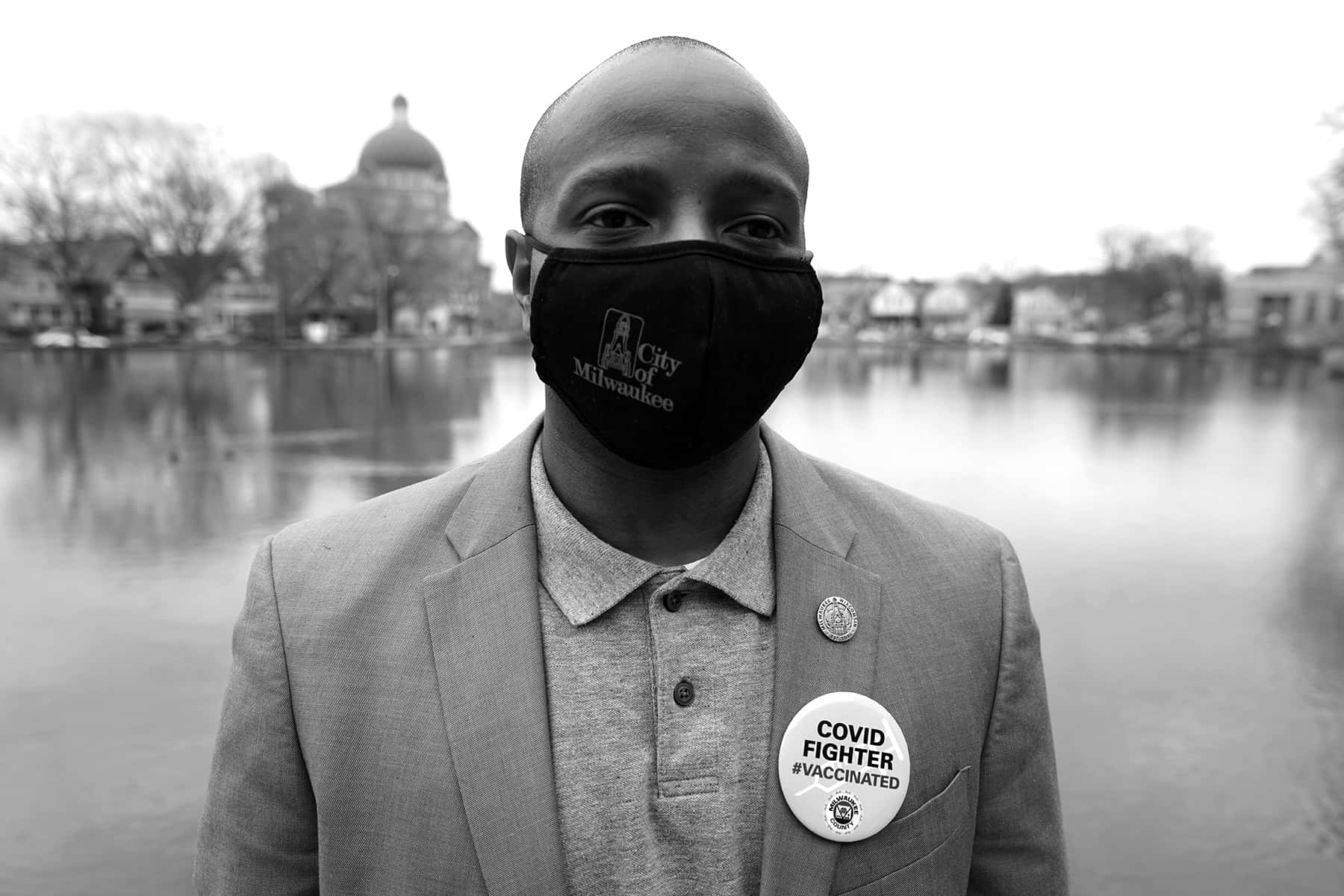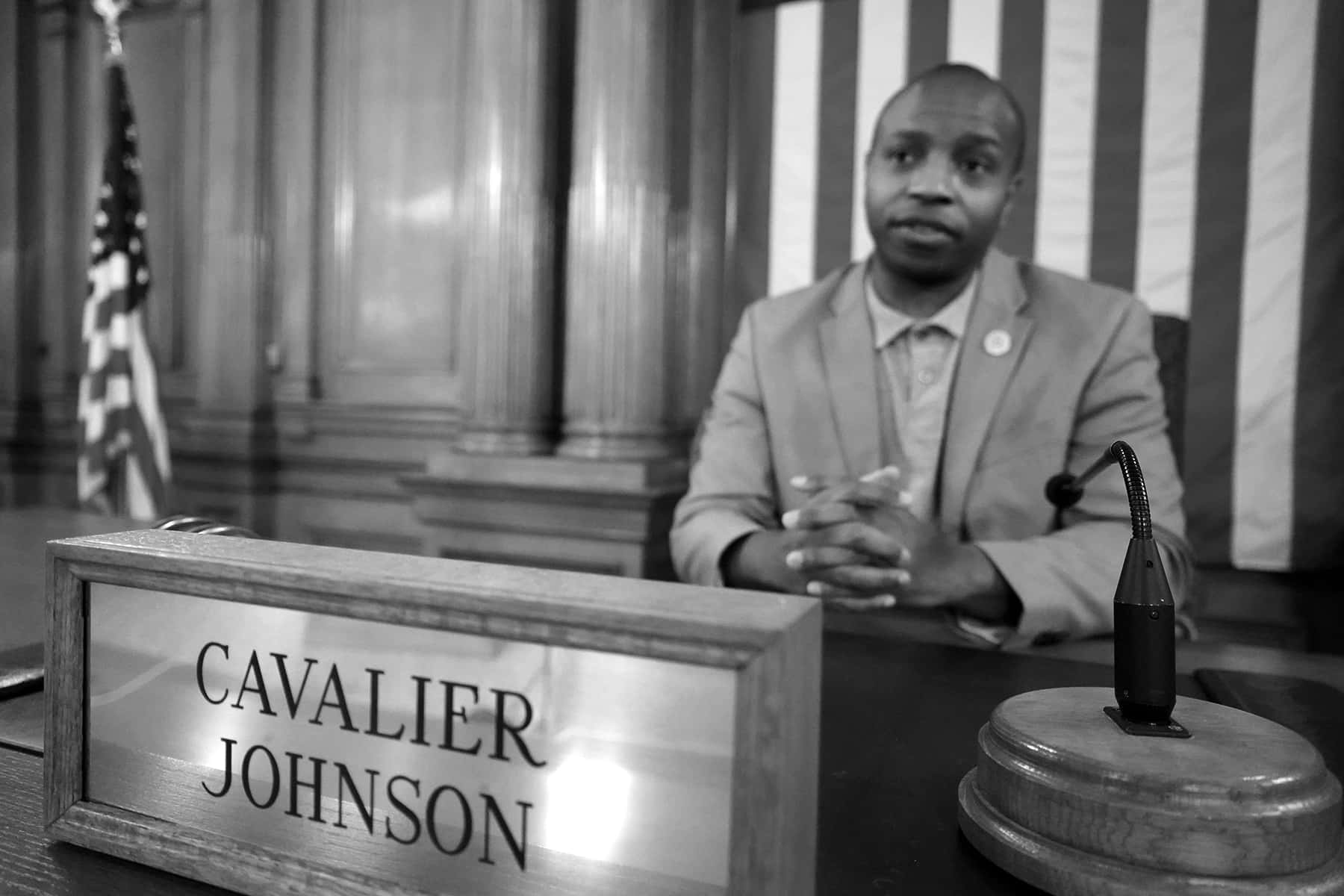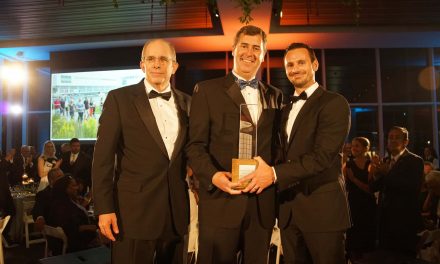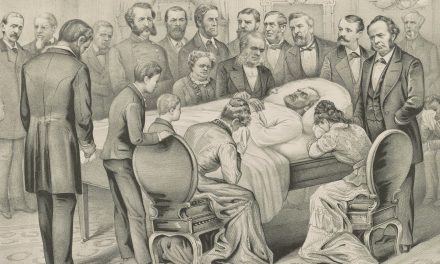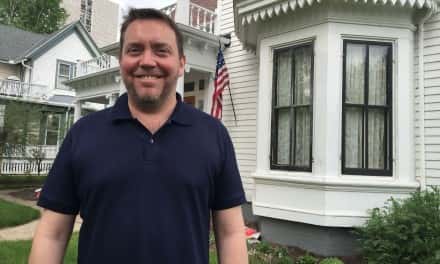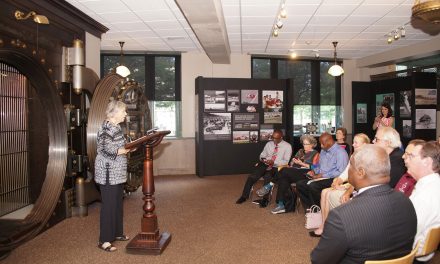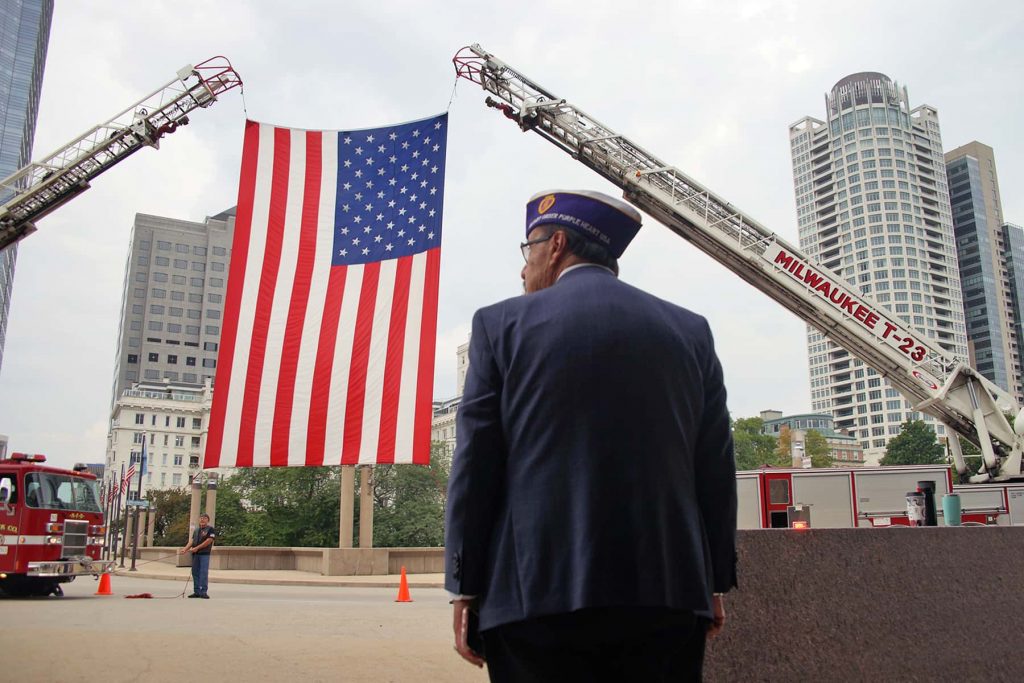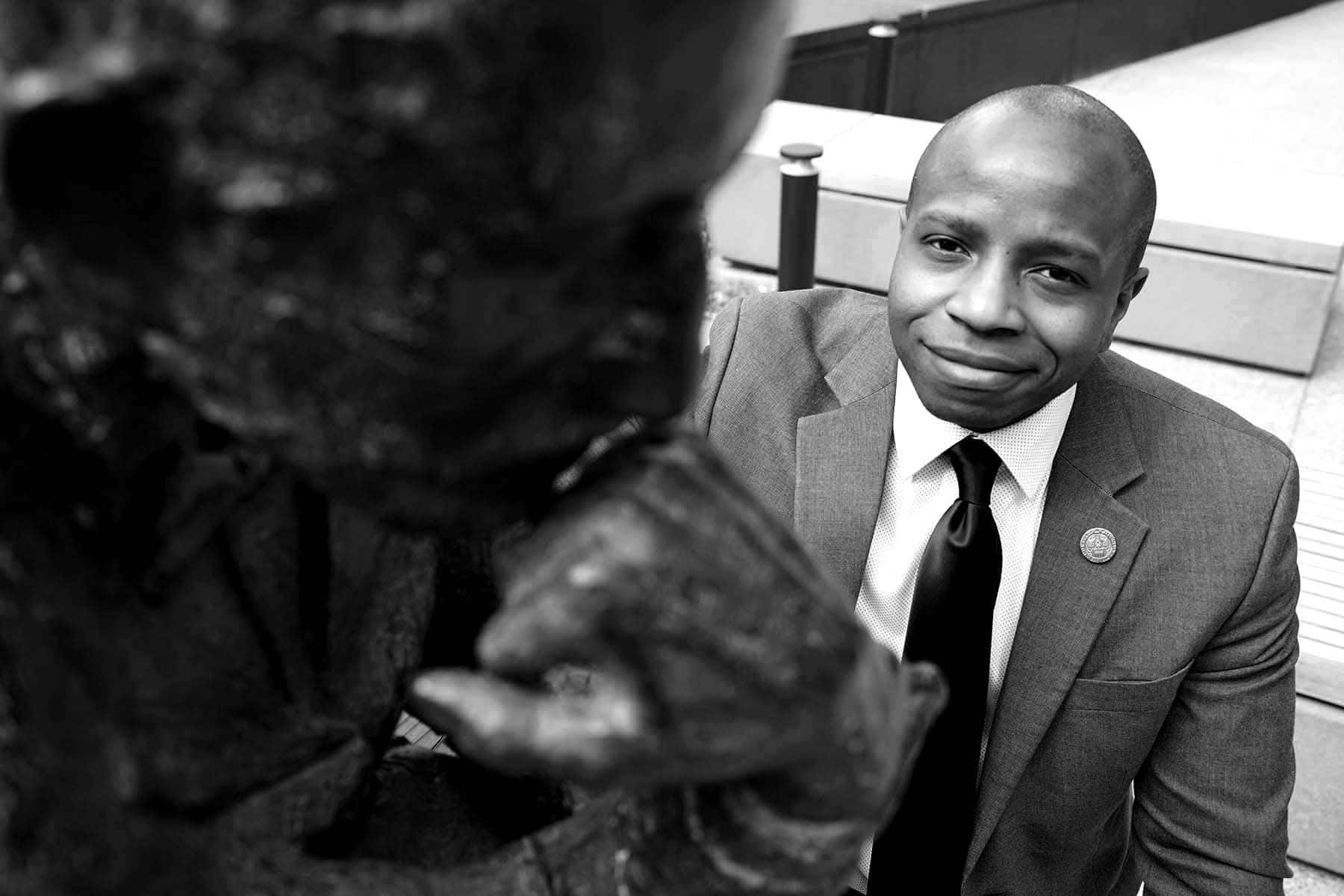
Doing good for others so that good things would happen in return has been a guiding philosophy in the life of Cavalier Johnson. That path of service to the community has been reflected in the journey that brought a kid from a low income environment to a paramount position of city leadership.
As Alderman of Milwaukee’s 2nd District, Johnson became President of the Common Council on April 21, 2020. He was the 5th African-American leader elected to that duty, but it came just as the COVID-19 pandemic began shutting down the world and throwing the habits of normal life into a tailspin.
Johnson immediately found himself having to navigate unprecedented political and economic uncertainties, and develop response plans to a public health emergency that had not been experienced in modern times. All while performing the expected responsibilities of his office, continuing his efforts to end economic trauma for people of color in Milwaukee, and raise a family with young children.
A year later, as vaccinations reduce the threat of the coronavirus, Johnson now faces the equally daunting task of managing the shift from a health crisis back to a more normal life for Milwaukee. His past experiences continue to provide him with the necessary tools for being a good steward, and adapting to whatever speed and direction that transition takes.
Q&A with Milwaukee Common Council President
Cavalier Johnson
Milwaukee Independent: Who had the biggest impact on your childhood, and do you still see that influence on your life today?
Cavalier Johnson: I wouldn’t say that it was just one person or one thing. There were so many influences in my everyday life as a child. My mom, Denise, exhibited strength and tenacity in the face of struggle, which I learned from. My stepdad, John, always cautioned my siblings and me to do good with the belief that those actions will lead to good things in return. My best friends, the Amayas, confirmed to me that no matter where people come from or the languages that we speak, we can all come together as family. The YMCA back in those days, pushed Milwaukee Public Schools kids from low income families like me into community service and into college which had a tremendous impact on my life. Coupled with what the Y gave me, my dad, Sherman, encouraged me to expand my horizons beyond what I saw on the block. He also pushed me to strive for more. He would say that somebody is going to do “it” whatever it happened to be. He would tell me that if I was passionate about something and if I was willing to put in the work, then I should go for it. These people, places, and influences are what has driven me at the root.
Milwaukee Independent: What is the most memorable experience from your youth growing up in Milwaukee? And what was your greatest fear from that time?
Cavalier Johnson: We moved around a lot when I was a kid. Middle school was the first time that I got to stay at one school from start until finish. Attending Carlton, Parkview, Honey Creek, Fairview, Dover, Lincoln, Webster Middle School, and Bay View High School allowed me to see a lot of Milwaukee. As I lived on the north side, when I went to south side MPS schools it really opened my eyes to the diversity of our city. Lincoln Avenue, Mitchell Street, and KK had new and different feels. Seeing the Esperanza Unida mural from the freeway was intriguing. These experiences also exposed to me the segregation that we deal with in this community too. This was magnified when as a kid, I first remembered going east on Locust pass Dr. Martin Luther King Jr. Drive. As I sat in the backseat and we drove over that hill, it was like another world. I knew the general geography and that Lake Michigan was near but I didn’t know between that hill and the lake that there was so much city east of MLK. Whole neighborhoods that I had never heard of, a large college campus, the bustle of Oakland and Locust, and the quiet of East Newberry – I never knew. A fear that I began to realize as a young man was that shrinking economic opportunity would lead to blight. As I walked North Avenue and observed shuttered businesses, busted windows, and saw few if any business owners who looked like me, I began to understand that these conditions seep into the psyche of our citizens. They begin to think that this is normal but it isn’t and that can be dangerous.
Milwaukee Independent: What role has the environment of trauma played in your life, and do you have hope that future generations will not face those conditions one day?
Cavalier Johnson: I think that Black people, myself included, have suffered from generations of economic trauma. I think that without a solid foundation in education and employment, we face great difficulty in building strong lives and strong communities. The absence of these things, I believe, leads to transient and porous neighborhoods, depressed neighborhood commercial corridors, lower educational attainment, and violence. I don’t wish for any child of any generation to have to deal with these conditions as we move Milwaukee forward.
Milwaukee Independent: What inspired your interest to become an elected official in Milwaukee, and how has the position transformed your life?
Cavalier Johnson: My interest to serve in public office came from two primary points of inspiration. The first was the YMCA. Starting in February 2001 when I was a 14 year old boy, I began volunteering in Milwaukee with peers in a YMCA pre-college program called Sponsor-A-Scholar. We would help seniors to rake leaves and shovel snow. We would pack food for the homeless and visit Easter Seals. We would put on dances to create a safe place for youth during the summer months. Doing things like these encouraged me to keep finding ways to be of service. In the years that followed, I’d expand my service into workforce development where I assisted Milwaukee’s youth in getting jobs for the first time to seniors looking to get back into the workforce for the last time. I also worked with at-risk youth in Milwaukee who had spent time at Lincoln Hills, worked with at-risk youth in London, refurbished a school for low income students in Chile, and traveled to New Orleans after Hurricane Katrina to help people on the gulf coast after that natural disaster. There was a great sense of pride in service. The other point of inspiration happened in the same year that I became linked up with the YMCA. On September 11th, 2001 I was a freshman at Bay View High School and when I learned what had occurred that day, I knew that I had to be more cognizant of what was happening in my city, state, country, and the world. When I saw President George W. Bush visit the rubble that remained of the World Trade Center and how he sought to comfort New Yorkers, I knew that public office was an avenue where I could make of career out of service – similar to what I had been doing in YMCA programs. Serving in elected office has been transformative in my life because it exposes the deep challenges that our community has faced for decades. Those challenges can be great and the work depleting. At times, you need to dig deeply to find the strength to address them. Even so, it is an absolute honor and a lifetime highlight to be able serve in elected office.
Milwaukee Independent: What are some of the particular difficulties of being a Black politician in Milwaukee that your White counterparts are not susceptible to?
Cavalier Johnson: When one researches the “worst of” lists, Milwaukee unfortunately, comes out on top time and time again. But, there is a common theme. It isn’t that Milwaukee’s opportunities for quality schools, access to family supporting jobs, and chances for wealth building through homeownership aren’t realized by White people – it’s our Black residents who have been sidelined from those opportunities for decades. When you’re an African American politician faced with these issues that have been festering for generations, there can be a sense of urgency from our constituency to create a solution very quickly where, I suspect, those same pressures are not placed on our White counterparts in government even though up until spring of 2020, no Black person had ever been duly elected to lead a local unit of government in executive office since Milwaukee was established as a city in 1846.
Milwaukee Independent: As the 5th African-American President of the Milwaukee Common Council, what role does your identity have in accomplishing your mission to heal the community and legislate as their elected representative?
Cavalier Johnson: As we all know, Milwaukee is a majority minority city with over sixty percent of our residents being people of color. I think that when our residents, whether they are young or old, have the chance to see a reflection of themselves in our leadership, that encourages them for the future and gives them faith that our community is progressing. With all of the pain that this community has endured over the last four decades – especially in economically depressed neighborhoods, I think that folks are yearning for a new direction and a new generation of leadership. I keep those things in mind as we seek to advance Milwaukee in a way that is forward thinking but also pragmatic.
Milwaukee Independent: What has been the biggest frustration or limitation that you have experienced in your first year as President of the Common Council?
Cavalier Johnson: I give much credit to the people who in the past, have sat where I currently do. Many people don’t see it but, serving as common council president is a difficult, complex, and time consuming job. Those adjectives connected to any job can lead to frustration or limitation and this one is no different in that respect. My experience serving as council president has taught me that this office is the glue that helps to advance the city. Whomever is fortunate enough to serve as council president has the duty to strive to build relationships, build coalitions, set goals, and get things done for Milwaukee. This must be done with the realization that while president, one isn’t the boss of the other 14 independently elected members to the common council who have their own issues and constituencies and, neither the chief executive who department heads serve at the pleasure of. It’s a delicate position with heavy responsibility.
Milwaukee Independent: The vote over you becoming President publicly exposed some divisions within the Common Council, so have those relationships been able heal over the past year?
Cavalier Johnson: That’s a fair question to ask because of how public the rift was in 2020. To answer the question directly, I would say yes, there has been healing over the course of the last year.
Milwaukee Independent: What advice would you offer children of color to pursue their dreams even when faced with setbacks?
Cavalier Johnson: There are very few people in this world who can pursue their dreams without some element of setback – I certainly have had my fair share of them. What I would encourage children of color to do is to set a goal, commit to working as hard as you can, find your mark, tuck your head and run as fast and as hard as you can towards it. Realize that undoubtedly, you will be knocked down. Sometimes, you will run into a brick wall. That’s okay. Get up and reassess. You might have to climb over it, go around it, or dig under it in order to get pass the obstacle. Do it. Then after you’re done, find your mark, tuck your head and run again.
Milwaukee Independent: What is the most common question you are asked, and what does no one ever ask you about that you wish they would?
Cavalier Johnson: The most common thing that I’m asked without question is, “When are you going to run for mayor?” The question that no one ever asks but I wish that they would is, “How difficult is it to juggle the responsibilities of being an alderman and council president while also being a husband with a working wife and three young children?”
Milwaukee Independent: If you could send a message forward in time to yourself at age 60-years-old, what would you ask?
Cavalier Johnson: What I would ask my future self at 60 years old is if I had lived up to the examples that were set for me that I mentioned in the first question. Did I persevere in the face of challenges like my mom taught me? Did I do good things like my stepdad taught me? Did I continue to build relationships like I learned from the Amayas? Did I continue to expand my horizons and continue to strive forward as my dad instilled in me? Did I positively impact my community and the people who live in it? Was I an attentive and loving husband and father? Those are the things that I would ask my 60 year old self and if the answer is yes to these questions, then I would have led a fulfilled life.
PHOTOJOURNALIST’S NOTE: This photo essay follows the artistic style used in previous “A Day in Photos” features. Monochrome images are timeless, and express emotion far better than color photographs – which communicate information. By removing the color spectrum, the images were equalized so that viewers could see them as part of the same narrative regardless of where they were taken. That visual aesthetic turned out to be especially useful, since this feature was produced during the pandemic.
“A Day in Photos” for previous features literally meant that a single day was set aside to document the life of an individual in images, and only what happened on that day was recorded. However, the disruption of COVID-19 has required a lot of changes and adaptations from what was normal or traditional, and that was true for this feature as well.
Instead of being photographed over a single day, one-third of a day was photographed over three days. This was mostly due to health safety protocols because of the pandemic, and how much time could be spent in the close proximity required to capture intimate photos. But there were also logistical issues that the pandemic created, which included how much could be scheduled in a day that was not virtual.
While everyone has learned how tedious it can be to participate in an endless stream of Zoom meetings, finding ways to take photos of a person at a desk all day and make the images not appear tedious was a creative challenge. It was originally intended to produce this in May or June of 2020, after Common Council President Johnson had settled into his new office. But the pandemic upended those plans for almost a year.
Finally, as the public health restrictions began to lift in Milwaukee, there was a window of opportunity. It should be understood that much of what the photos show were literally first-time events. Many rooms, meetings, or even the number of people together inside City Hall had not occurred for close to 12 months.
So these images document that early transitional period, as the COVID-19 lockdown eased with a minimal return to normal-ish situations, along with what some of those restrictions still looked like. The pictures from this “day” also serve as a historical record of what life was like during the pandemic, especially for city leadership with the responsibility of representing the interests of the public, and providing for the needs of their own families.

